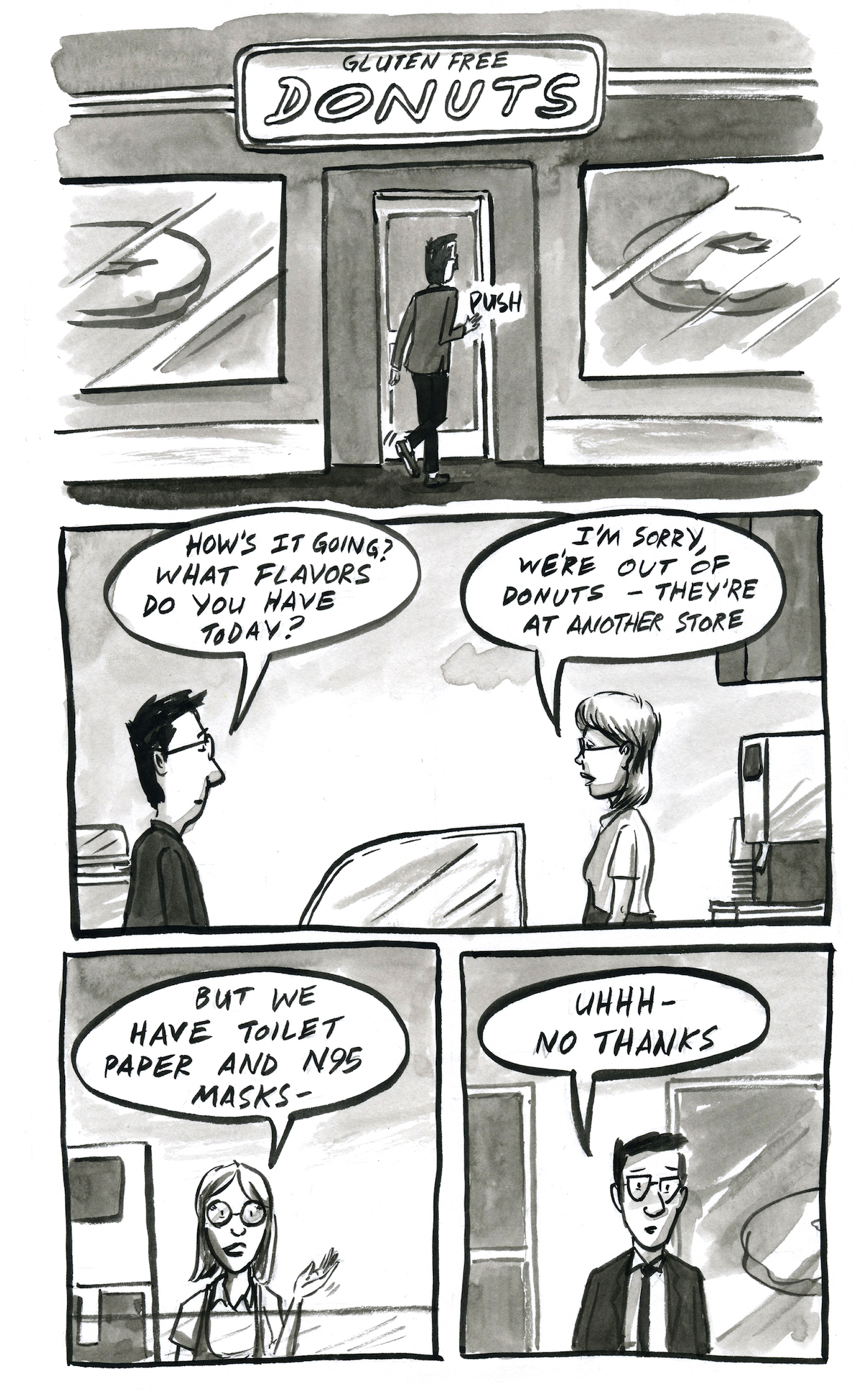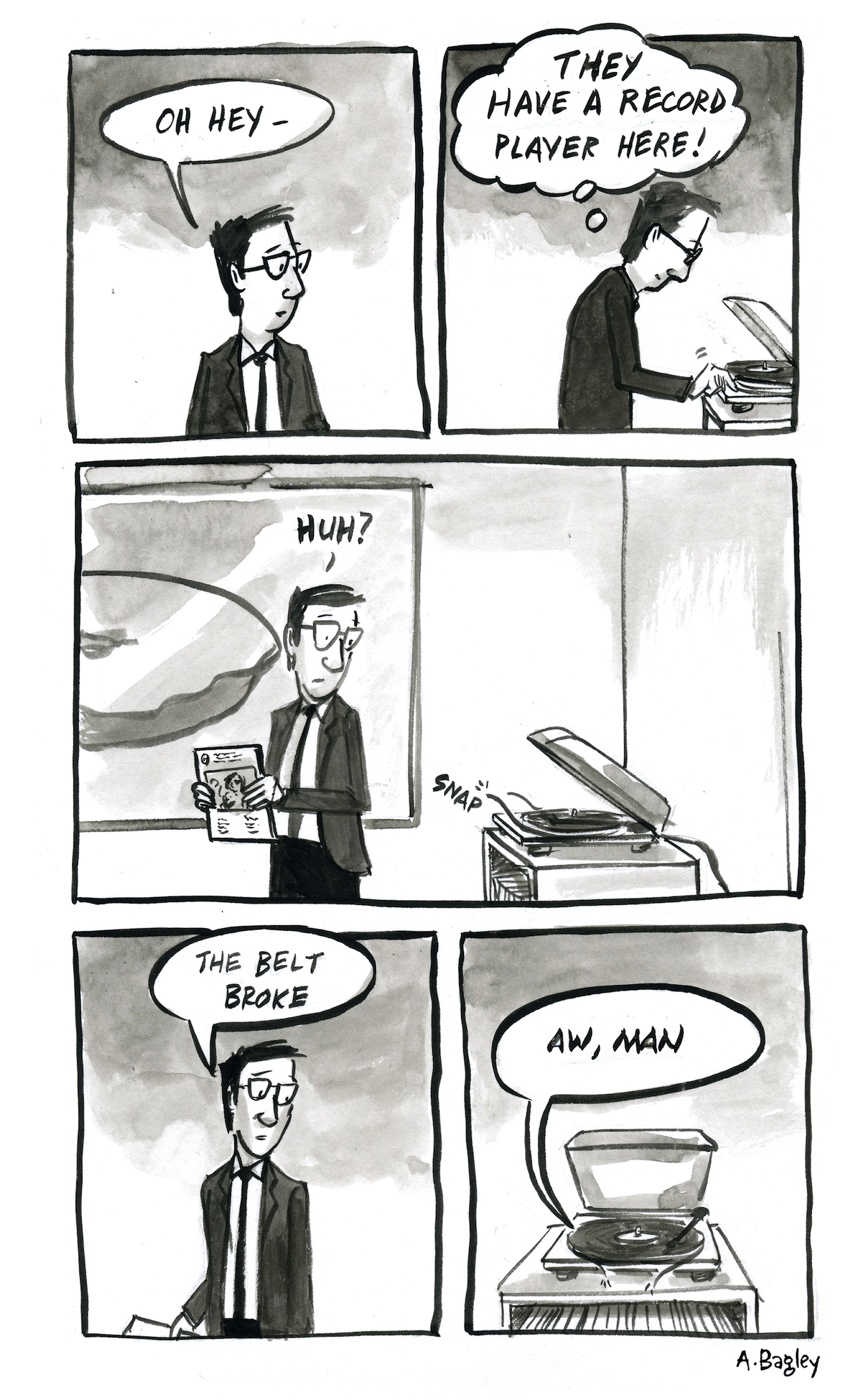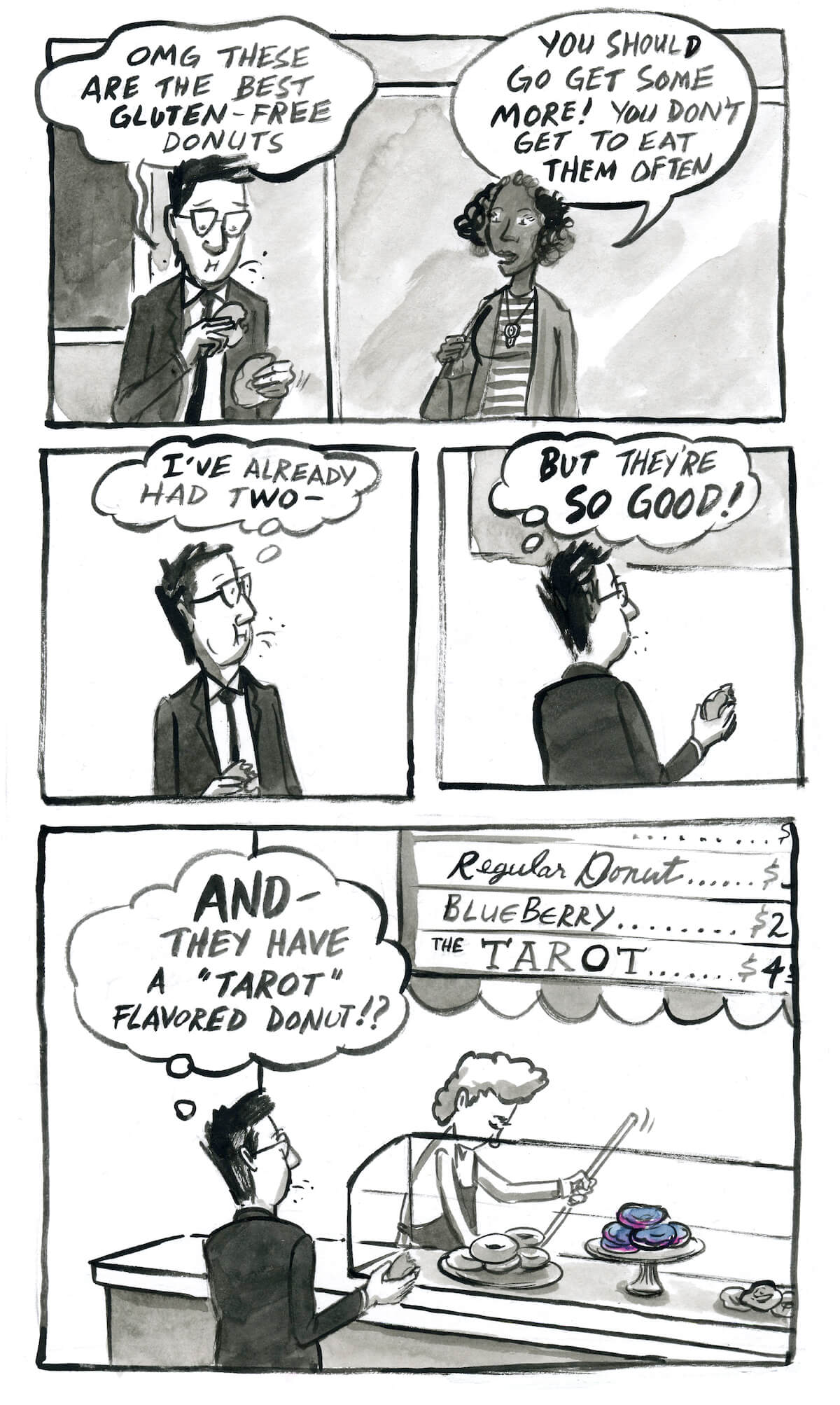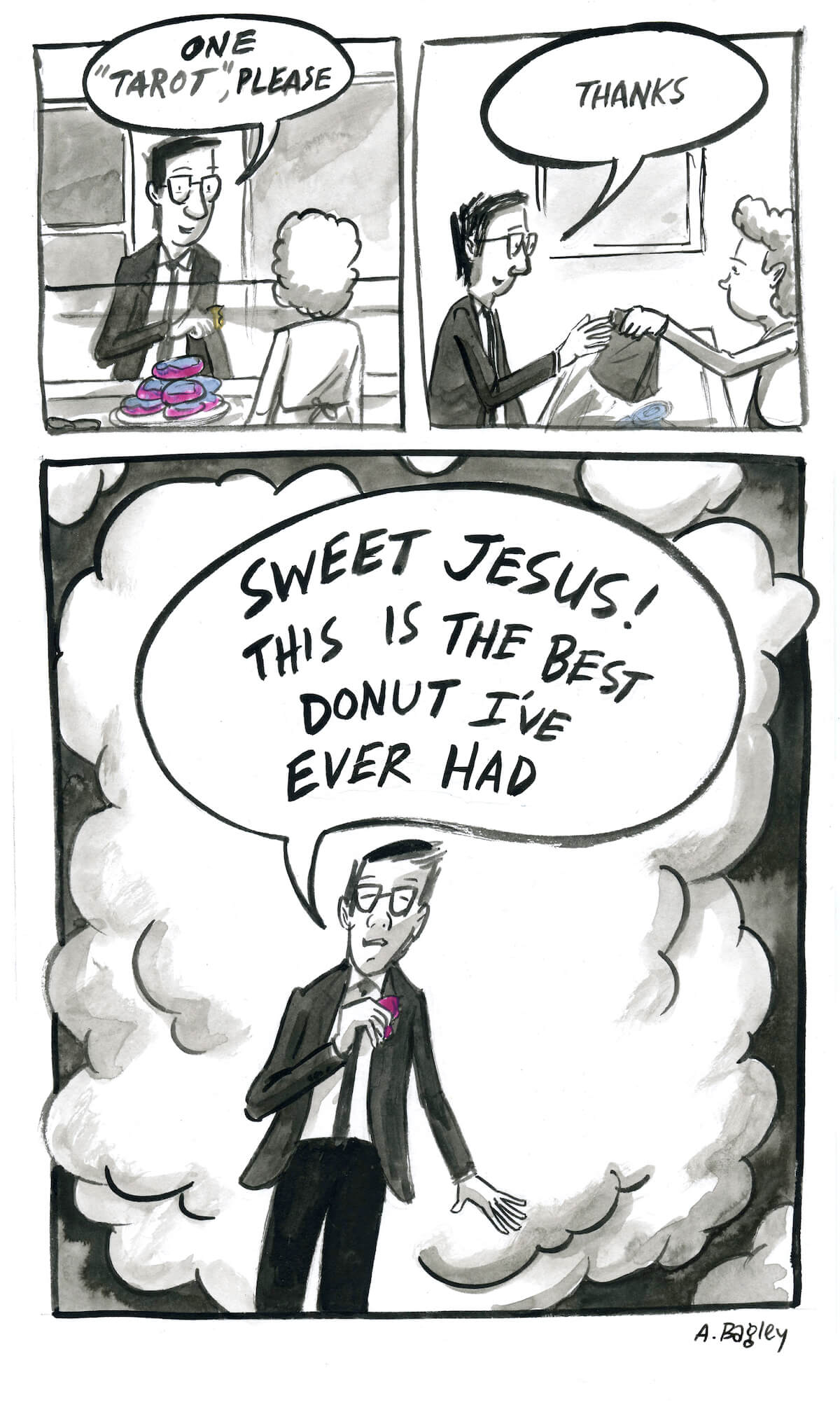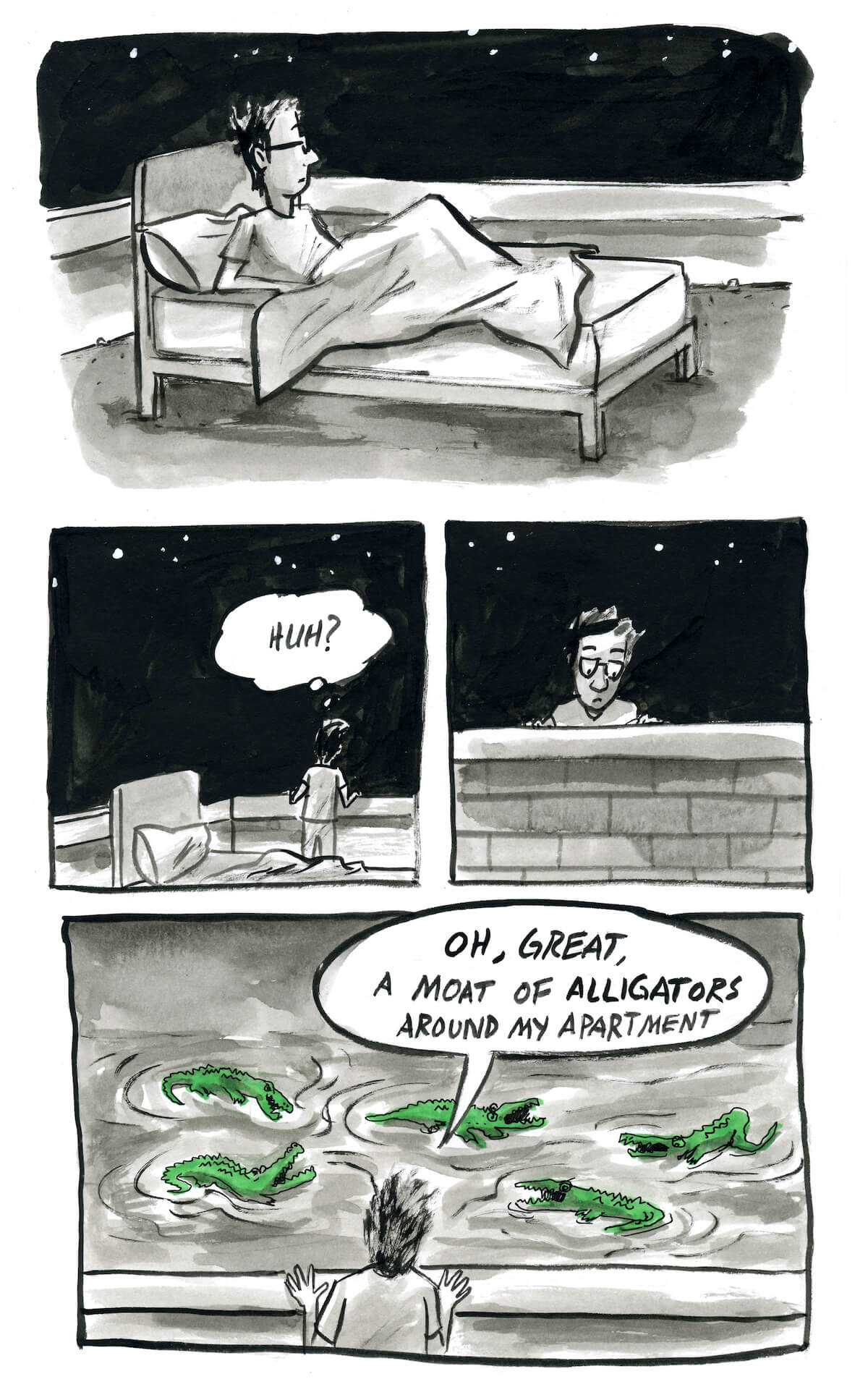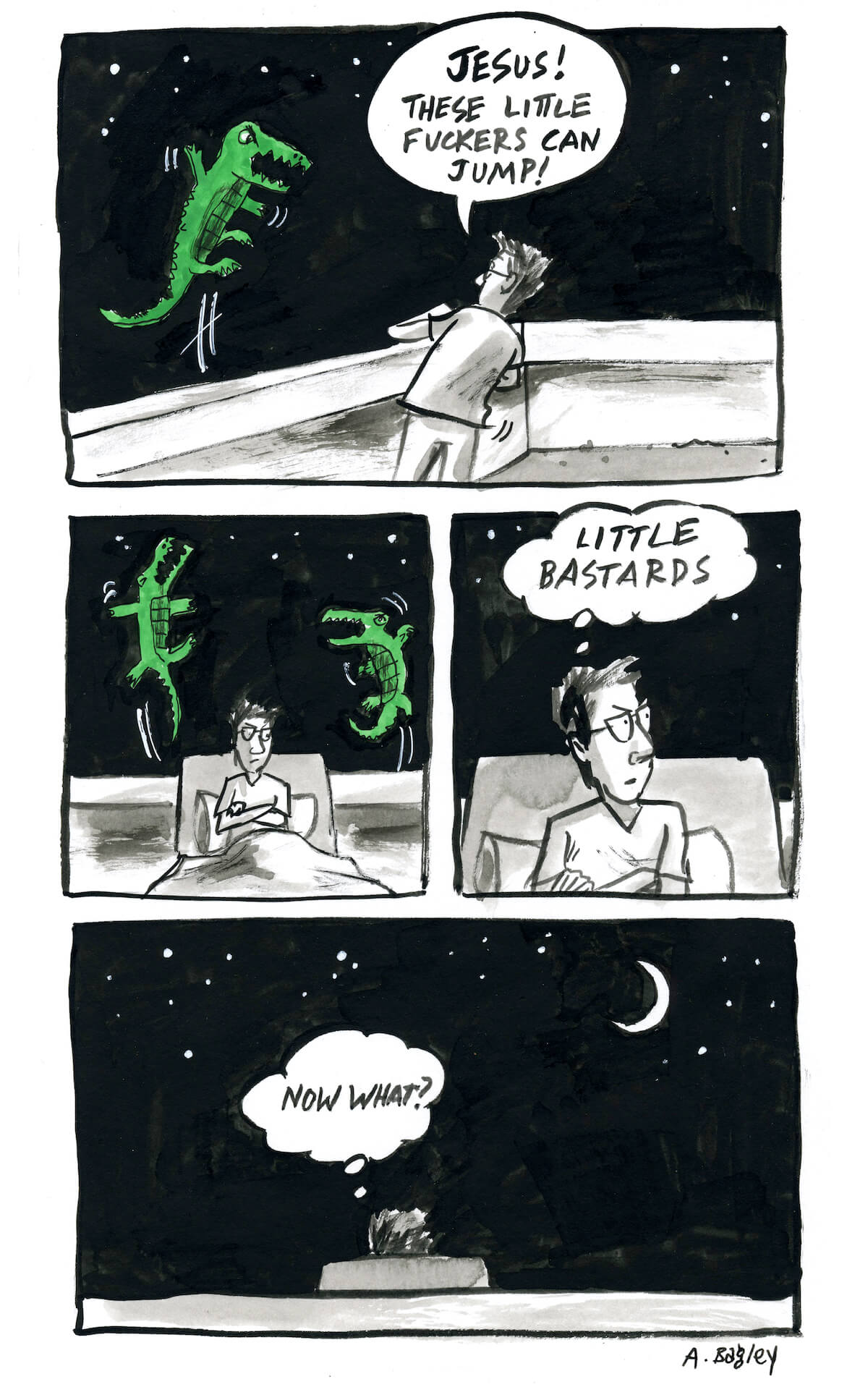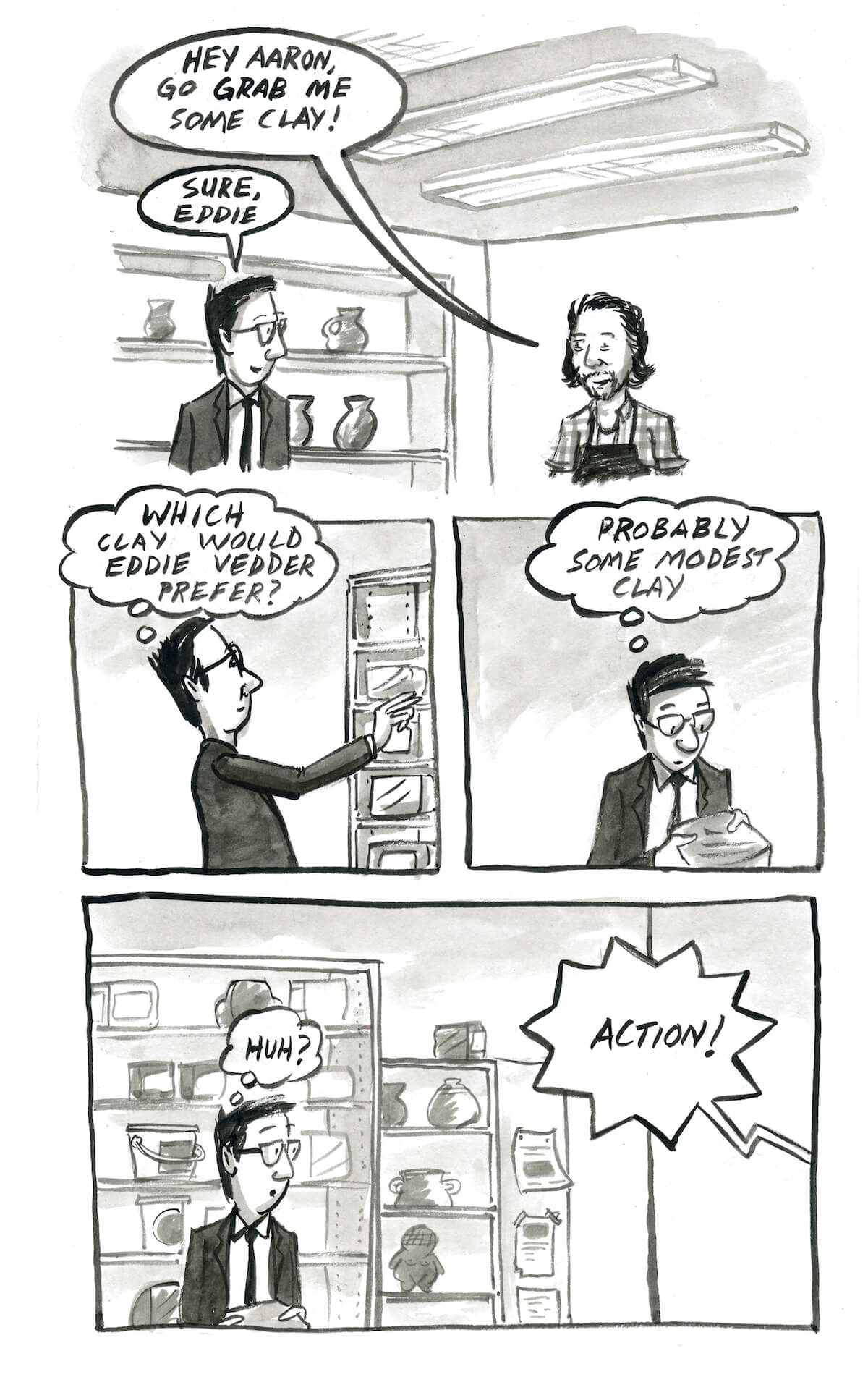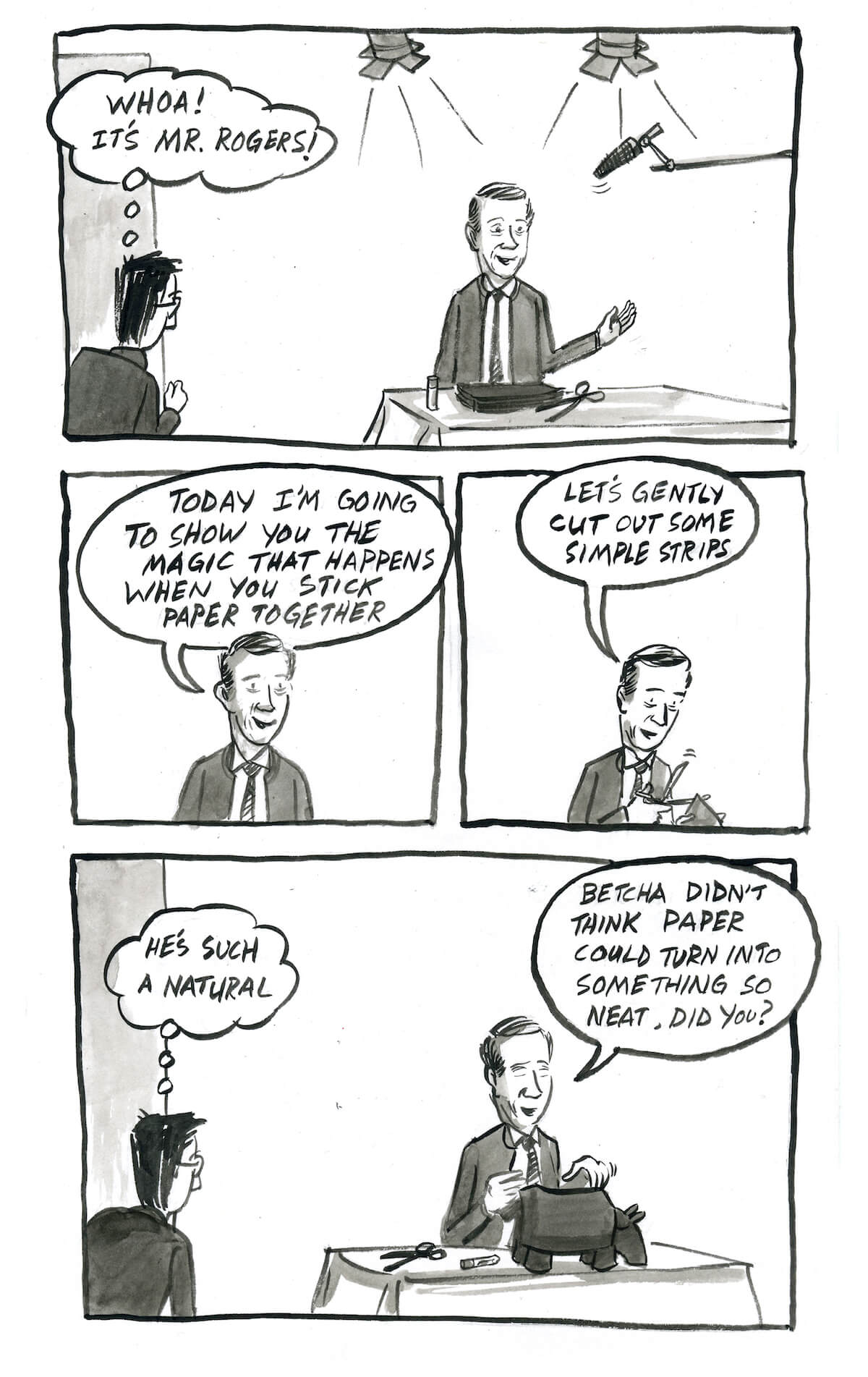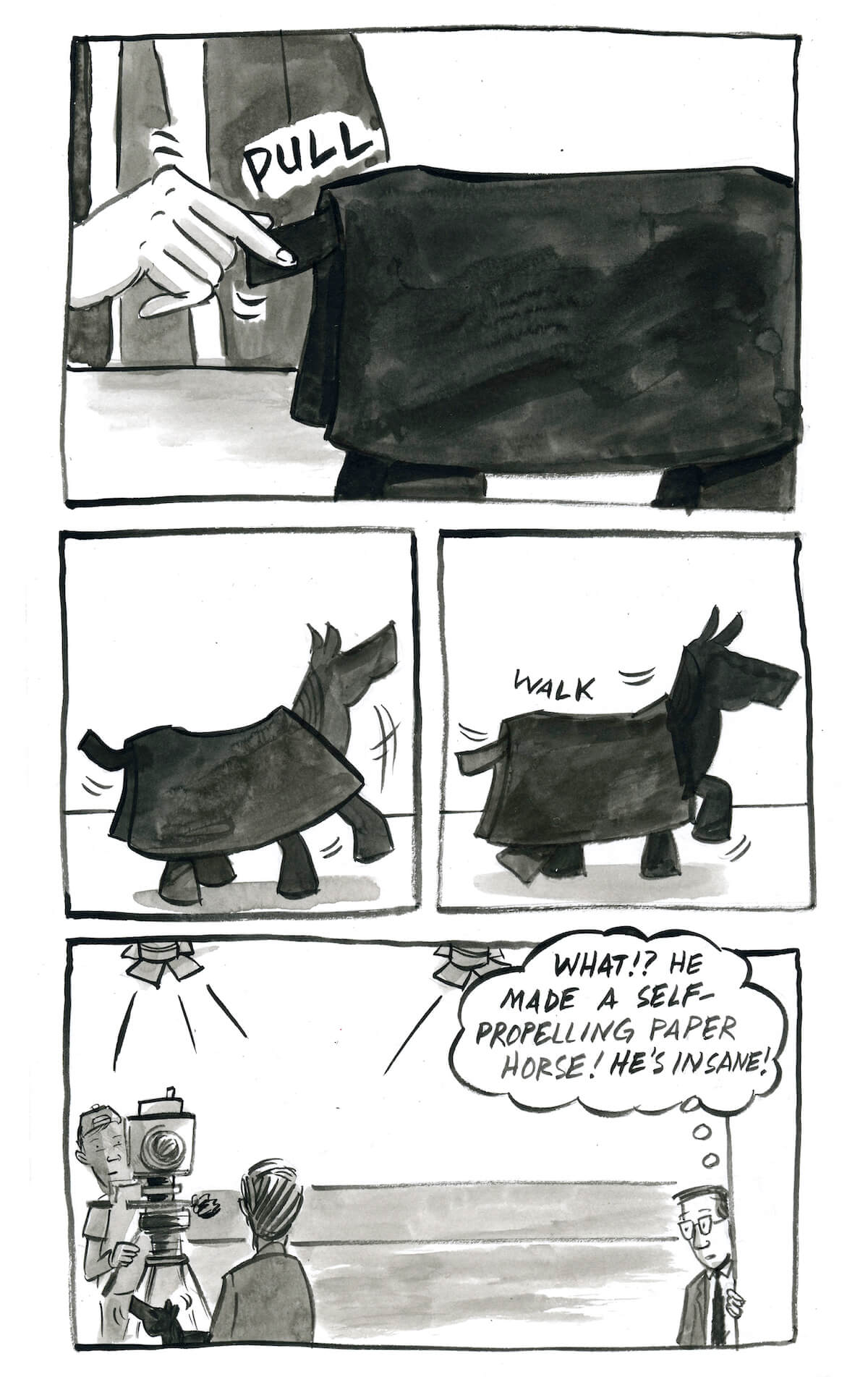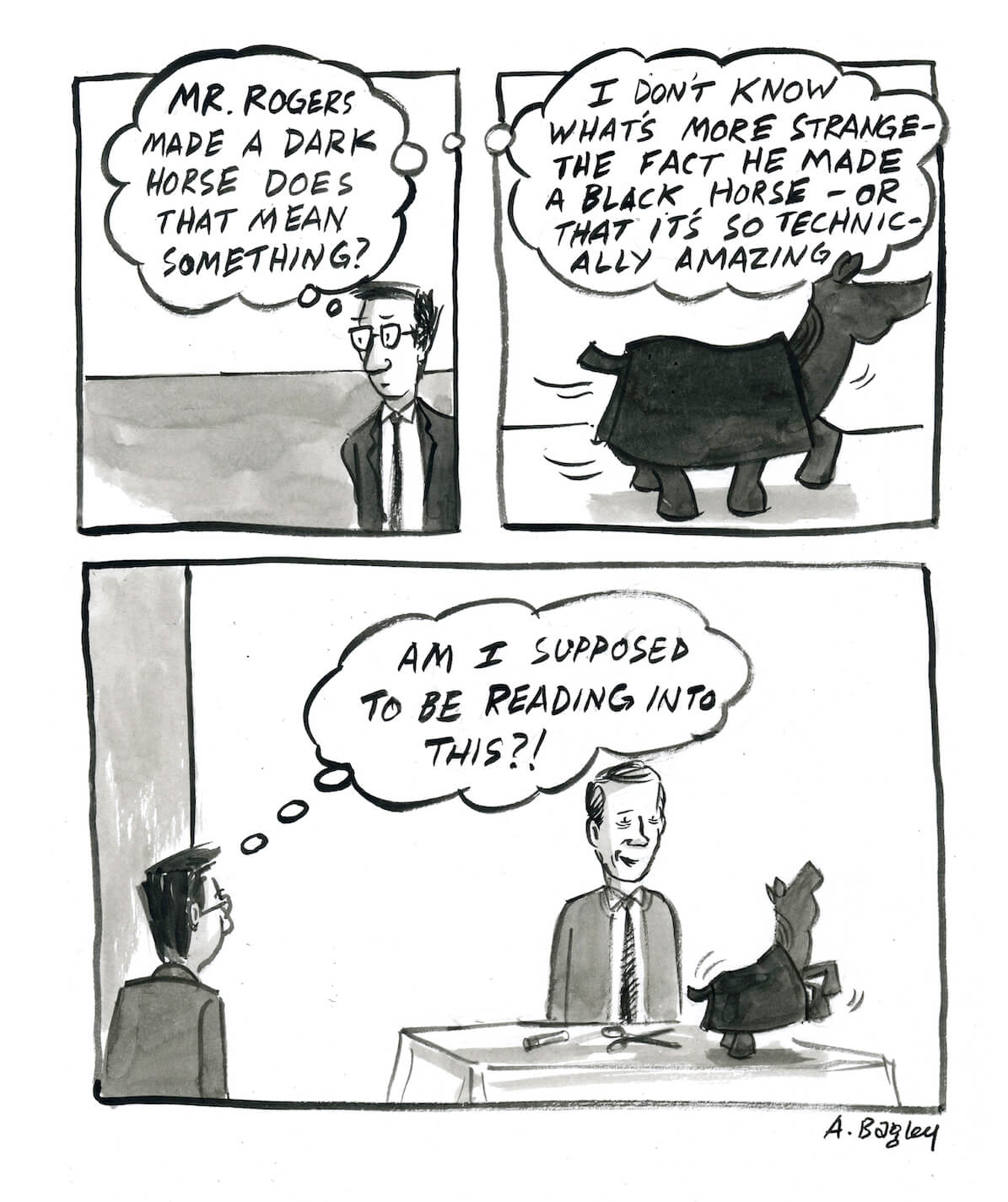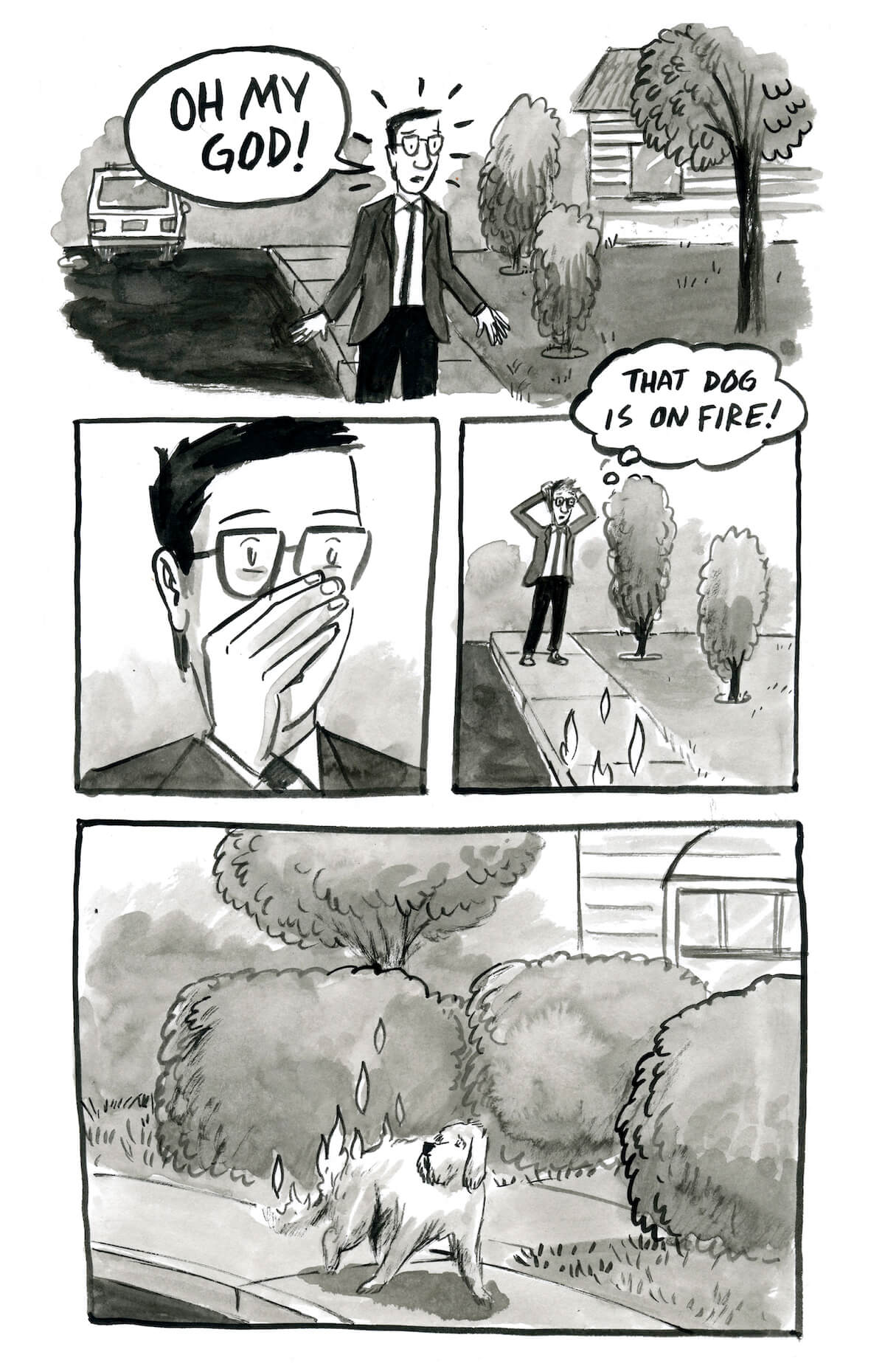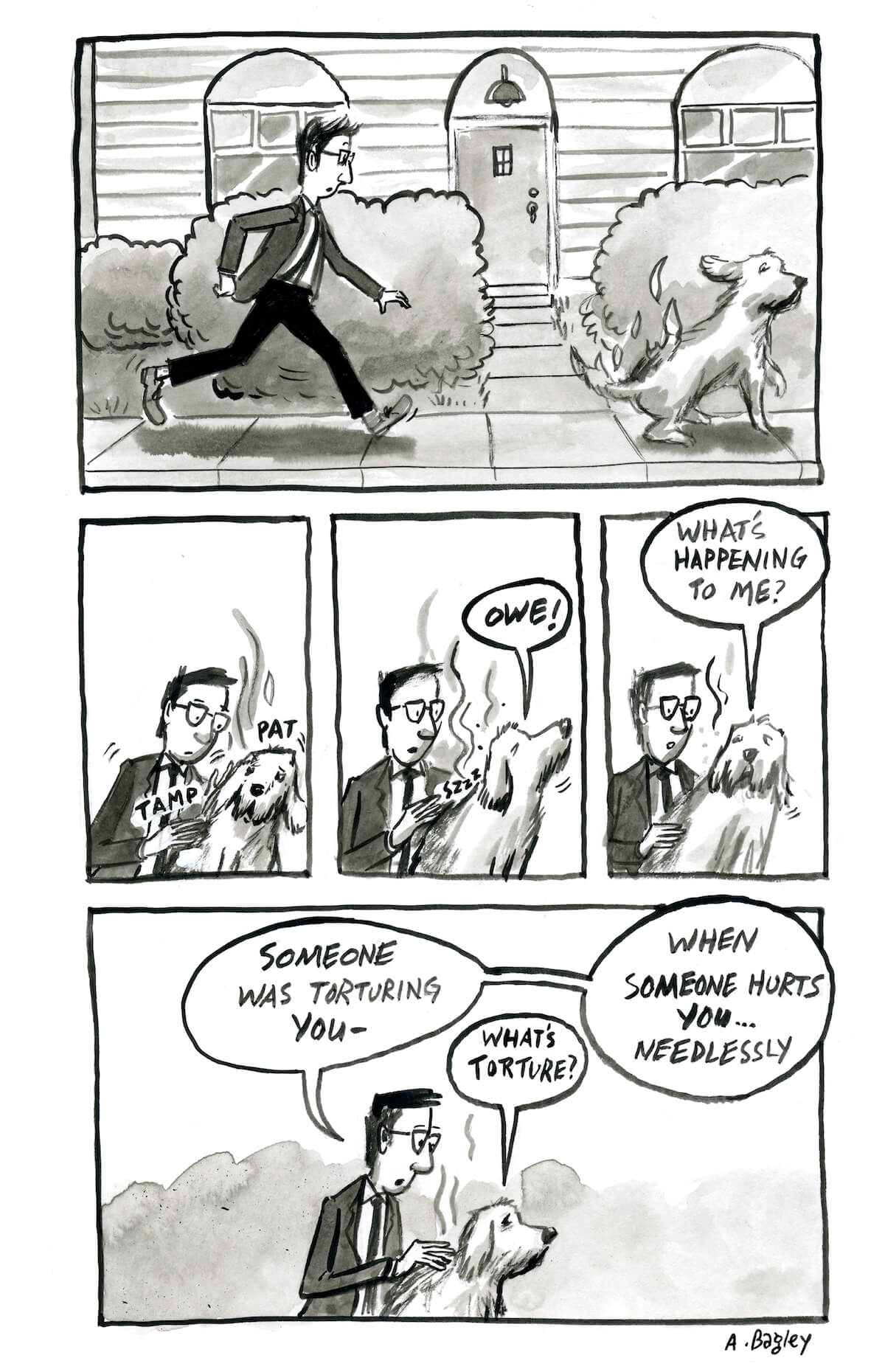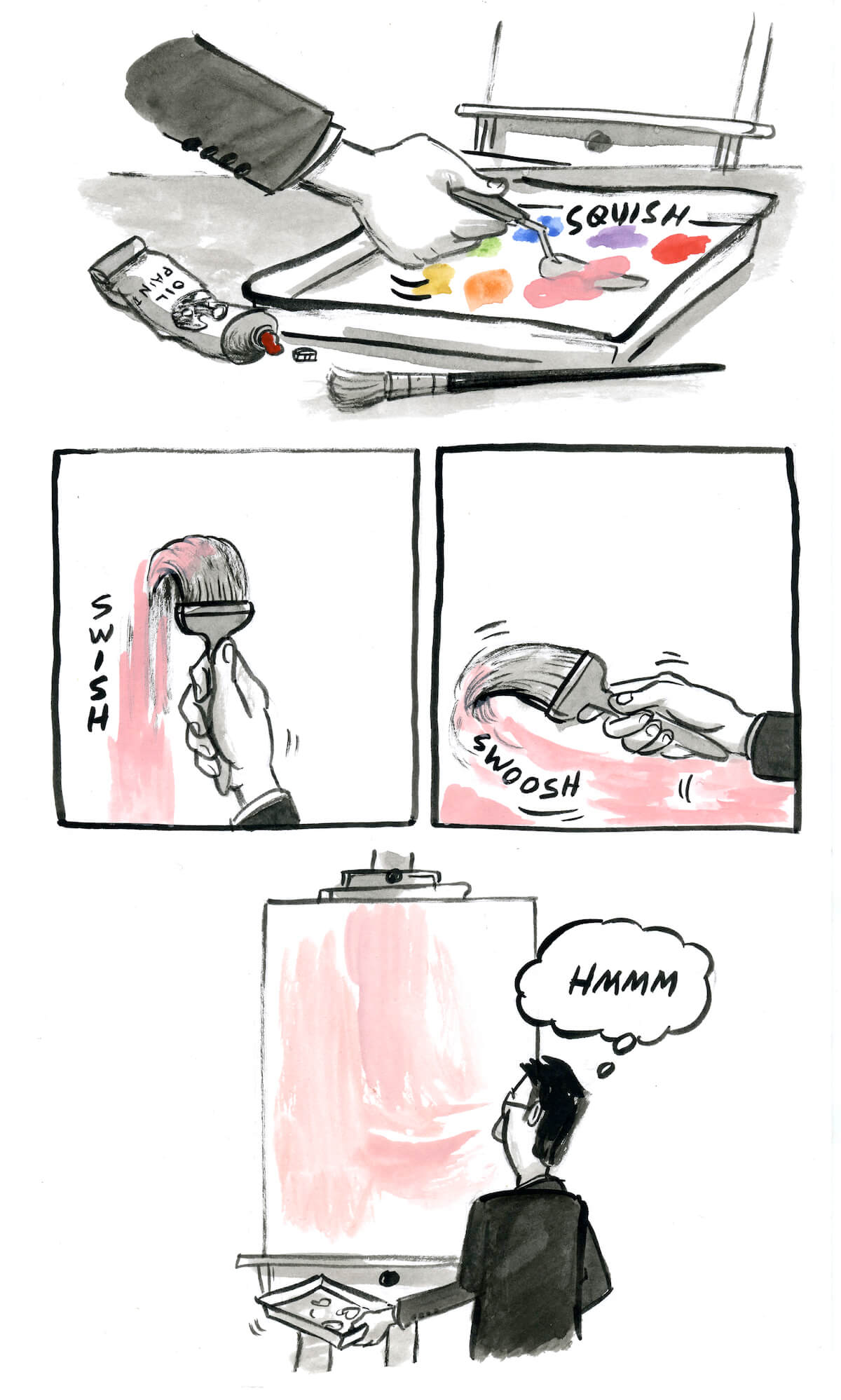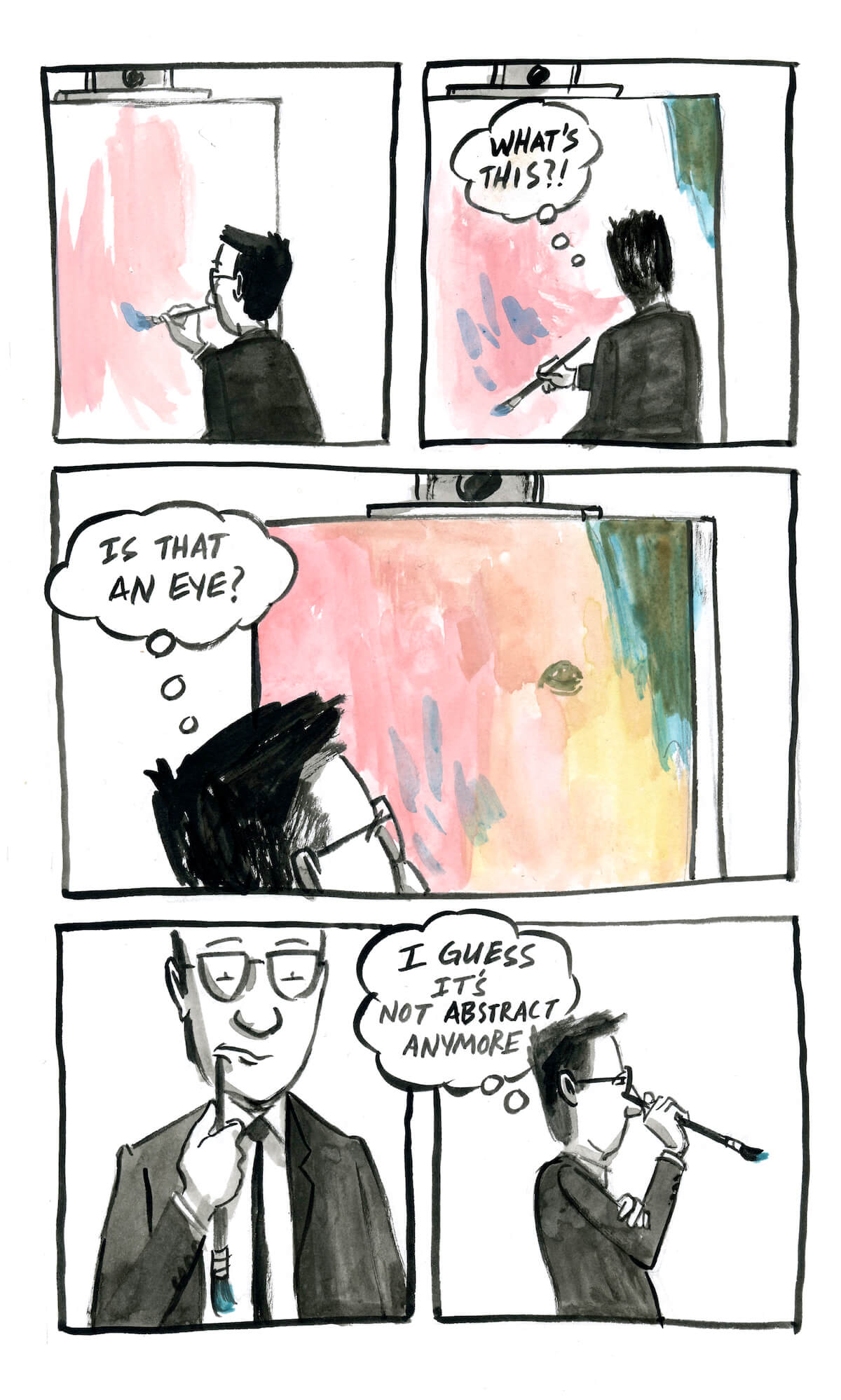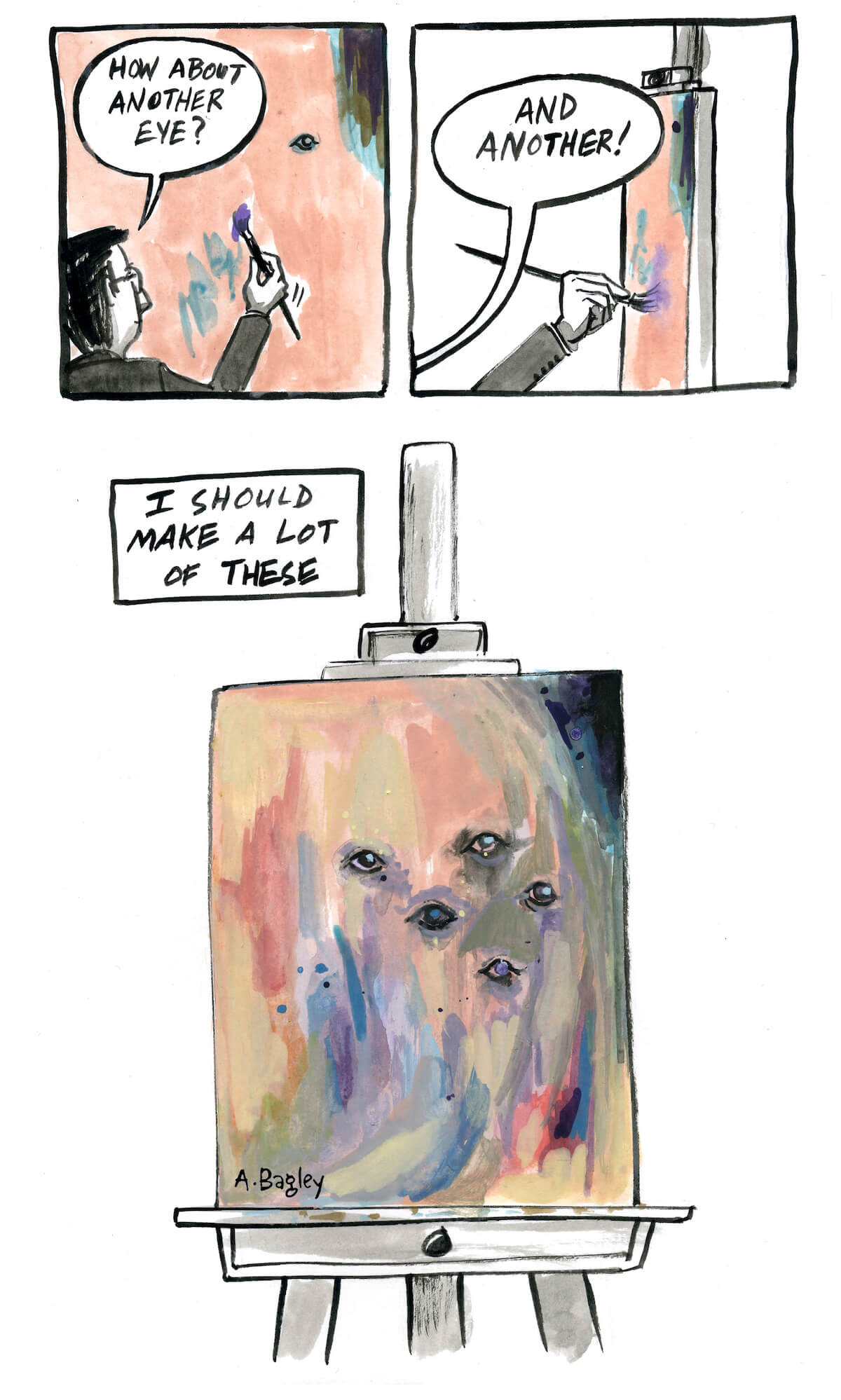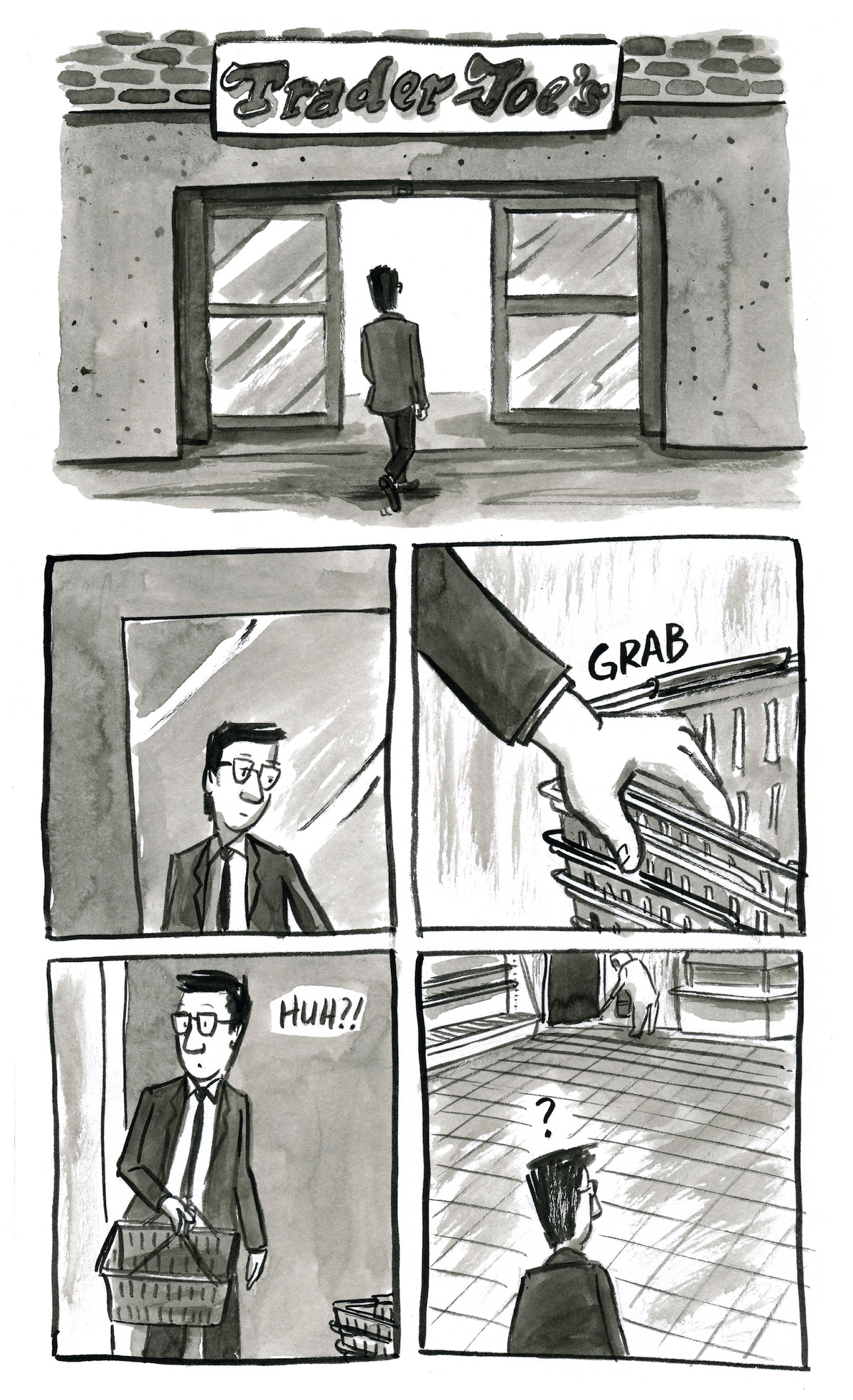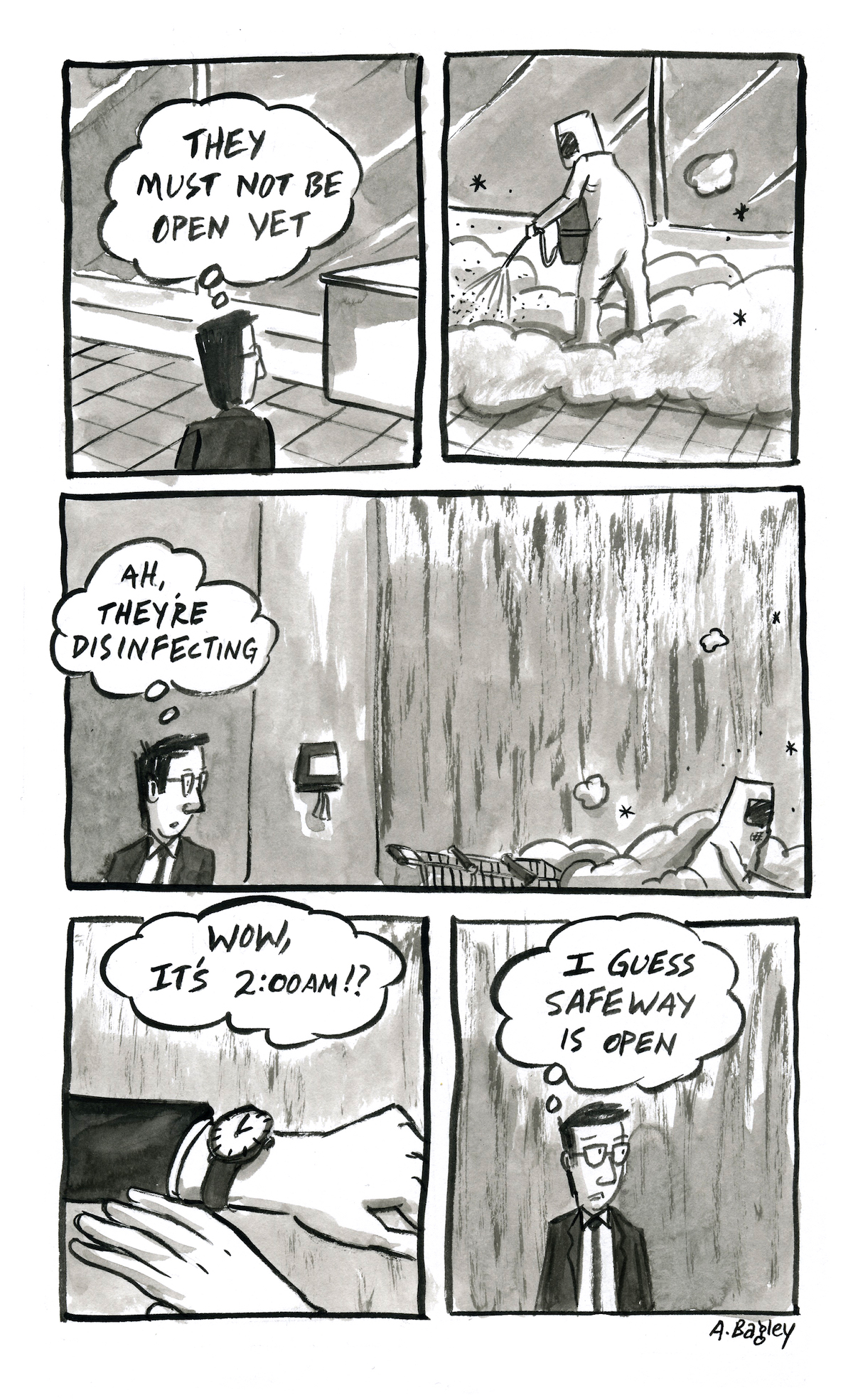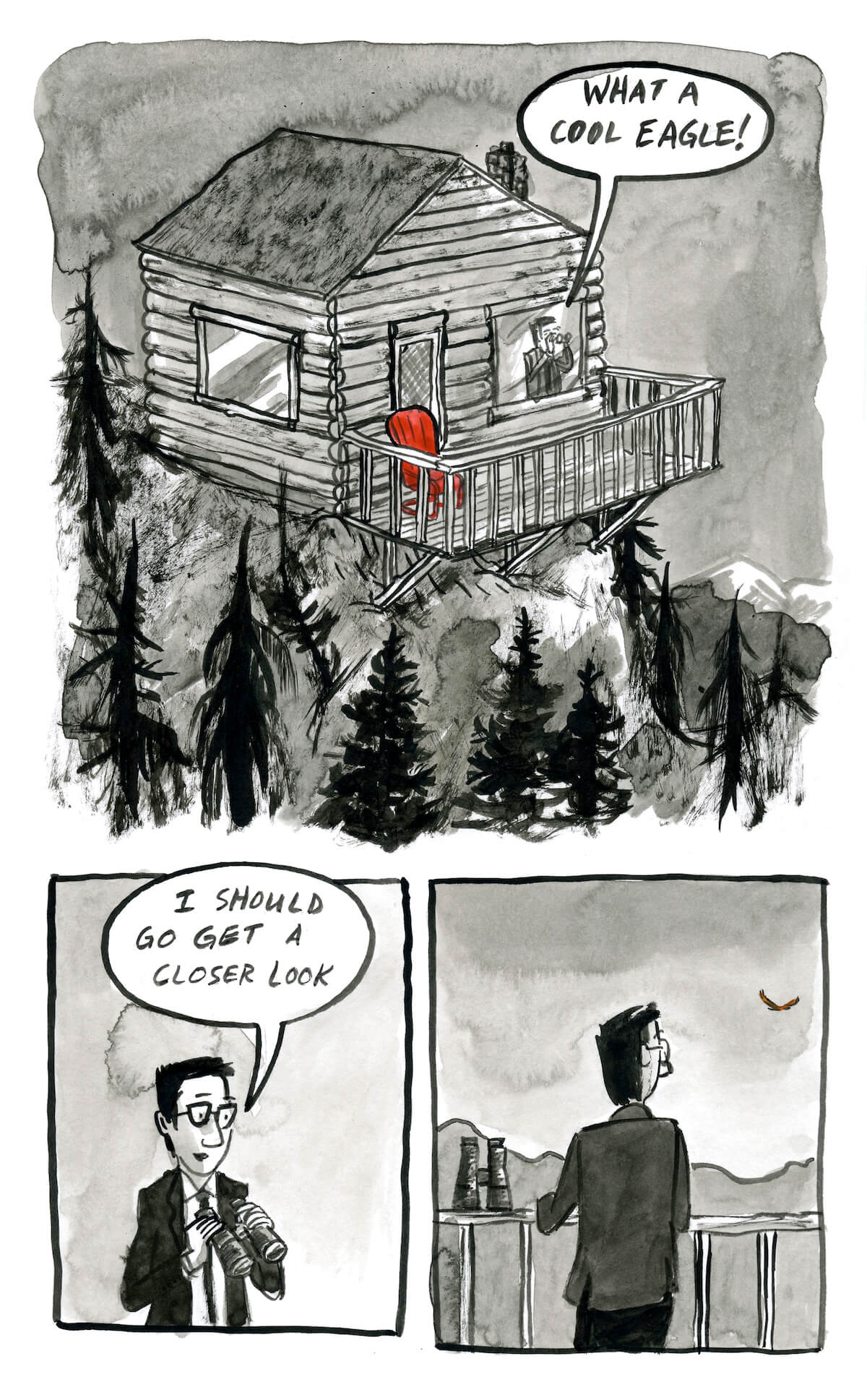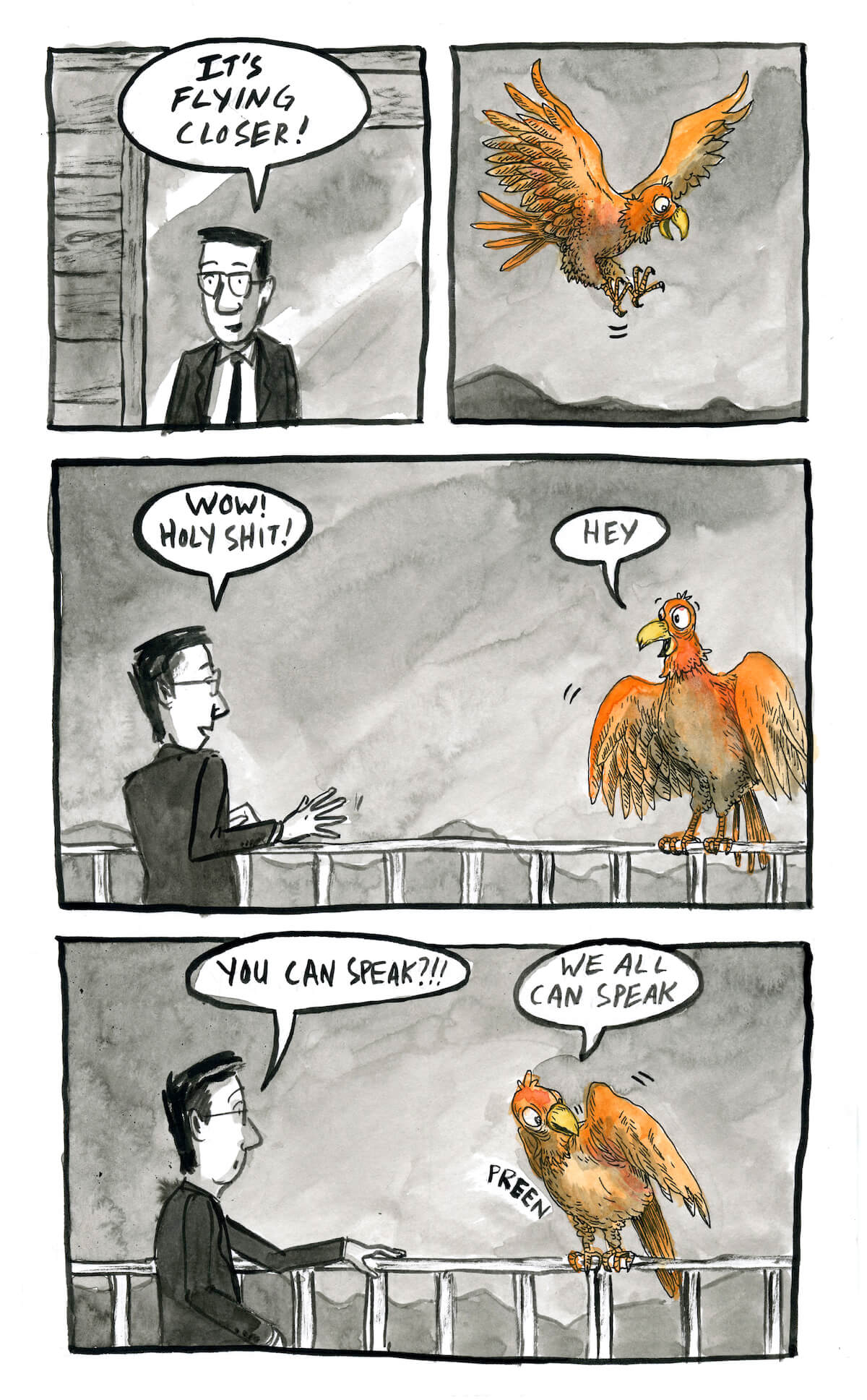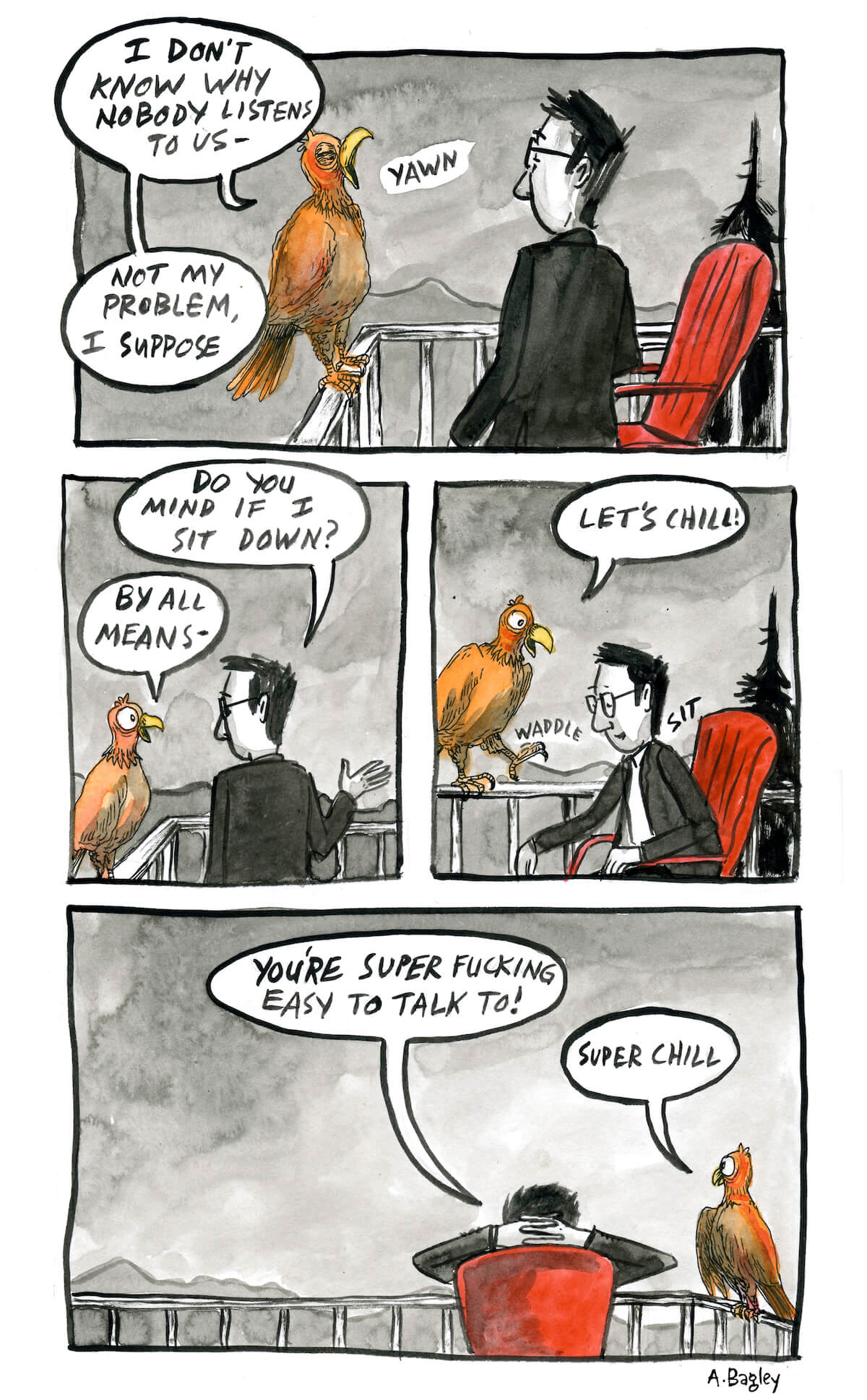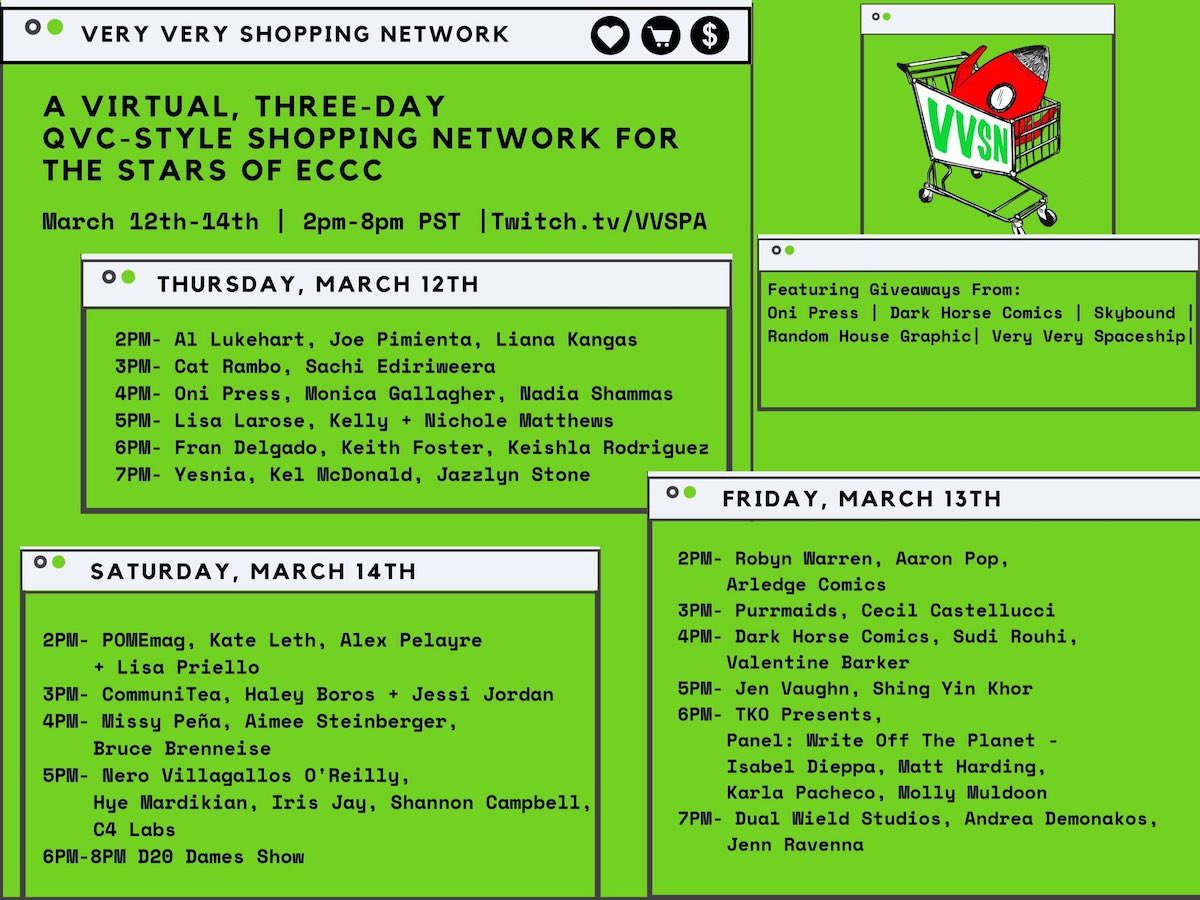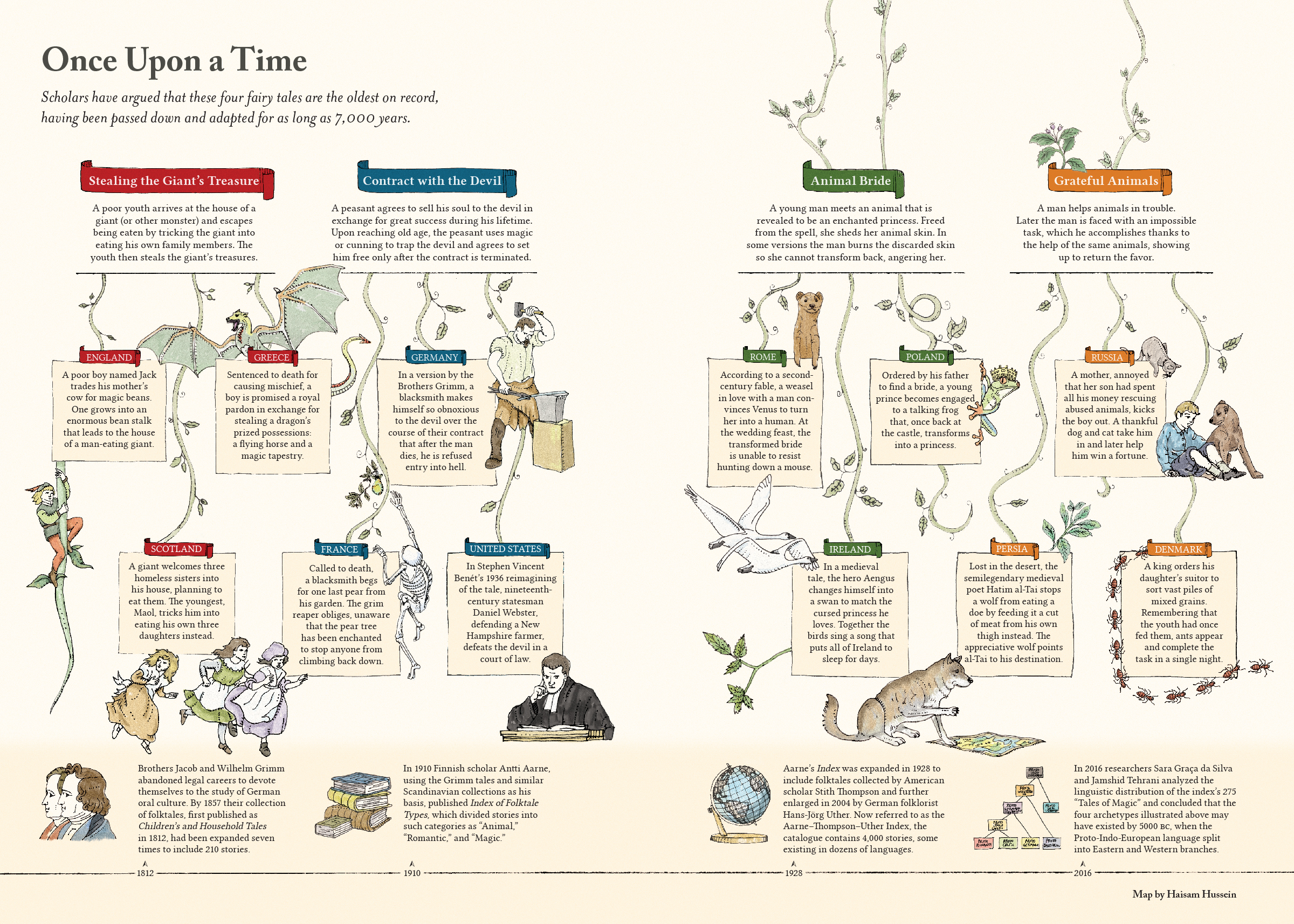Coronavirus poem 14: After Reading An Article Called “What the Coronavirus Does to Your Body”
Inside the virus there is a room. Inside the room,
a man. In the man’s hand, an ancient mace. But wait,
he’s not a man. He’s an instruction manual, a step —
by-step to illness. But you are sleepy and misread
Every coronavirus infection starts with a virus particle
as a virus parade, and in your mind, you see it,
a drill team holding a banner that reads COVID-19
and band of genetic material playing drums,
saxophones, flutes. There are floats of hand sanitizer,
baton twirlers in masks. And tonight, you feel somewhat
safe as you are at home watching from your window,
confetti falling down city streets where no one stands.
Coronavirus poem 13: Before sheltered in place
A new language being built —
it started with Prepare for Social Distancing
then the order, Shelter in Place, a quarantine
to protect others. The paint company rep
showed up with a mask, for my safety he said,
of course. Hands chapped from washing.Super aware of sneezes, coughs, sniffles
as never before. At the airport, in a crowded
waiting area, this new world burgeoning —
the man next to me moved because the man
next to him snored. The woman next to me
sniffled in regular intervals. All this suddenhyperawareness, the germs that might be
on the edge of the plastic cup I hold, coconut
milk I bought at the Mexican bar, it tastes
so good. I will not let my life be ruled by fear
of germs. Everyone obsessed with hand sanitizer,
making their own, buying alcohol, cleaning supplies,toilet paper, to excess. We are in a frenzy—red
states against blue states and someone will decide
who dies and only the rich get test results. And everyone
is going online, and yes, creativity is soaring, exploding,
but we forget the children who will die without
their parents. I walk on the plane seeing red.
Coronavirus poem 12: Social distances
During the first days of the Corona pandemic
I often sat in a chair near the road, smoking cigarettes,
half a mile south of a group home that had become
infested with the virus. Three, maybe five times
a week, the shiny blue ambulance that serves
those who live north of the lift-bridge hustled by, siren
wailing, red, white-and-amber lights awhirl, and turned
into the group home parking lot. It became the habit
of an elderly man from the rental cottages across the way
to stand on his side of the road, in a dark overcoat
and surgical mask, hand over his heart, waving
a small flag as the amulance raced back toward the bridge
and the ventilators that chuffed beyond.
One terrible day, after the ambulance made the last
of three deadly runs (it’s said that only two of ten
who went on the vents survived), I called over to him,
after he’d stepped all the way to the pavement
to watch the ambulance make the final curve and the ramp
that led to the south shore. He hesitated, then walked
back to his cottage. I haven’t seen him out since,
though from time-to-time I see what may be a hand waving
slowly, or a half-smile in the tiny window
cut in his cottage door.
Coronavirus poem 11: My Quarantine Project
I put up a Do Not Disturb Sign. I considered buying
a portable desktop scanner, confronting the phobias
in the basement. My project:I wasn’t sure, but likely it would not involve the art
of decluttering, the issue of whether the turquoise
t-shirt, its row of tiny songbirds, sparks joy,would not revolve around a bag of holey socks,
the portable sewing kit I purchased
at the Dollar Store.Maybe I would spend my days making a raised bed —
not for growing vegetables but an actual bed
with a flowery, bee-glutted duvet.Or, because sometimes being stuck at home
makes you want to climb the walls,
perhaps my quarantine projectwould require roof jugs, t-nuts, self-drilling screws.
Maybe there’s something to be made
from all these broken umbrellas:a wacky, wiry bouquet. Maybe my project
will become clear once I understandthe glass brain found at Herculaneum,
how it’s possible that inside Neptune
it’s raining diamonds.
Drawing out the witches
Published May 12, 2020, at 12:00pm
Another comic review from Seattle’s own Tatiana Gill, about another amazing Seattle writer, Lindy West. It’s a good day.
Coronavirus poem 10: Rule breakers
Yesterday in Lincoln Park,
fifteen or so rule-breakers
assembled under a picnic shelter,
coffee cups in hand, warming
by the wood-fire as if the world
had turned a page, erased
the statistics
on social distancing,not one of them wearing
a mask. I had to still my teacher voice,
which would have chided them
for this get-together.
All over sixty,
all high-risk.
As I passed, I heard one woman say,
Last week, I felt really angry.
Coronavirus poem 9: Job Opportunity in the Virus Age
Stars falter but the business of burglary
is good. Boarded-up shops—not a problem
with a crowbar. Wrench the nails. Make them
squeal like a baby in Mobile then blast
the glass and you’re inside with more pizazz
than a jazz rant.Grab the flat screens, the speakers and receivers
before the threadbare morning catches you
and cops pull on masks/gloves, run inside
guns drawn but you’re already gone
flickering through fog in a beater car.Live forever in the era of Corona. Cough
if you’re caught. Say you’re full-on contagious:
the ghost money to heaven. Blow your breath
until everyone’s infected. Watch them run
dizzy as a sermon litany and signing
the sign of the cross.It’s all in the attitude. Be the woodpecker
tap-tapping at the eves of the house
when the family’s gone.
So many good bugs to chew.
Coronavirus poem 8: This Is the Darkest Timeline
One that started with a roll of the dice,
an election gone awry, a time of fire and flood.
When we started to panic at every pandemic,
went into quarantine playing quarters.
We’ve all become the evil versions of ourselves
just trying to get back to the prime timeline,
the one where everything went right,
when our memories weren’t clouded by calamity.
That butterfly that flapped its wings,
the animal virus gone rogue. We couldn’t buy
butter or bullets. We waited with bated breath
underground. When we emerge anew
it will be with new eyes, our currency
changed from cash to cashews and cheese
sandwiches. You can’t remember the taste
of food without tin. You can’t remember
how to kiss. Your sense of time scrambled.
You learned to throw a knife and gut fish.
The darkest timeline has taken us
the way of apocalypse, earthquake,
supervolcanos, and tidal waves.
We can’t take any more disaster.
We’ve buried too many bodies
and sheltered in place too long to forget.
When we started this journey it was
“nothing left to lose,” now we’re too tired
to remember how fresh fruit used to smell,
the pale pink of cherry blossoms,
the days before the coyotes took over our streets.
Coronavirus poem 7: Always Another House
In the house, there was another house
and then another —
one made from a box used
to deliver her grandmother’s microwave,
the second to ship her
father’s poetry books, and a third
only she could see.
There was a little bed
where the little seal and little cat
took long restorative naps
and teacups that never failed
to fulfill their promise.
You see
the world where
she lived once?
Where she
lives now?
My phone slumps
in front of me
like an exhausted
cloud.
Aaron Bagley's Dream Comics: Goodnight
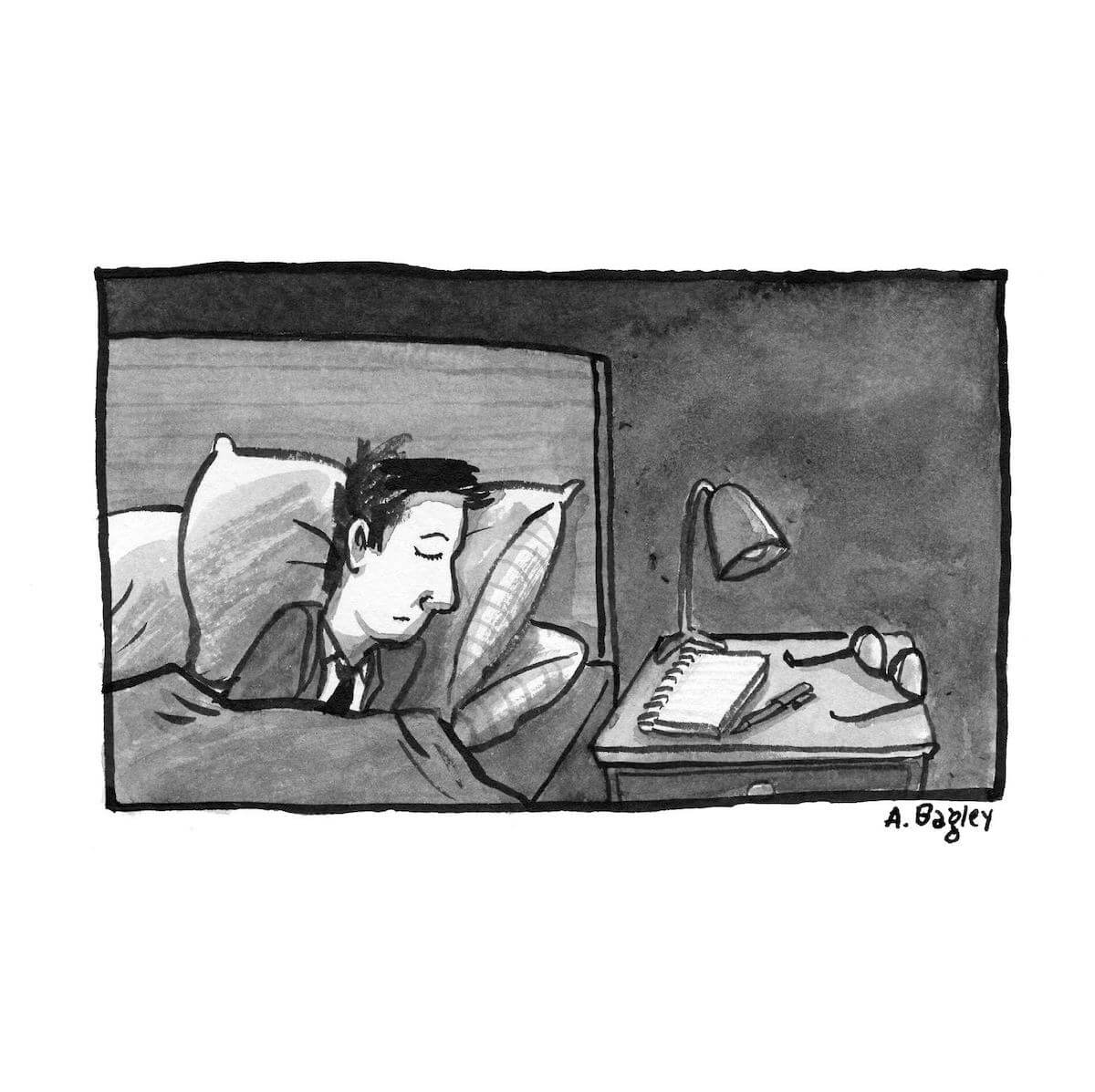
Type “vivid dreams during pandemic” into your favorite search engine and you’ll get countless articles related to an uptick in dreaming since the pandemic began. There are many theories that as to why there is a sudden increase in dreaming right now – but I’m not going to get into that. I’m here to say goodnight, for now. It’s been over two and a half years since I started posting weekly here at Seattle Review of Books! Since then I have been deep in my subconscious every week, creating work that served my sleeping self, and sleeping to serve my waking self. It’s a trippy thing. I have so much to say about it. Naturally, when the pandemic began I wasn’t shocked about my dreams because I have been dreaming since I can remember, and like I stated – spending a lot of my waking time in dreamland. So, I must say, it delights me to hear that people are currently dreaming more. Yes, there is pain, suffering, and confusion from the pandemic – but that doesn’t mean we can’t find some silver lining. Perhaps the world doesn’t need my dreams right now. Perhaps your own dreams are enough. I’m ok with that.
Thanks Martin and Paul for letting me sleep here for two and a half years. It’s been an honor to have my work on a site that is home to everything books. It has been an honor to tell people that I have a “web comic published by Seattle Review of Books”. If/when Seattle Review of Books rematerializes I will gladly return if Martin and Paul will have me.
Coronavirus poem 6: Quarantine Ceremony
I have brushed my hair. I have brushed my animal’s hair. I have swept all the hair from the floorboards and pulled it from the drains. I have rearranged my bookshelf. I’ve told myself I will get better at taking care of things, like house plants. I have fucked the person I love. The person I love has fucked me, there is a difference, and now is not the time to make love. That comes later. Now we are bored and we are angry. Worst of all we are powerless. We are sheltering in place. We are stuck inside and we are exchanging the small amount of power we do have by candlelight. We are fighting about what to do next. I have begged the person I love to stay, I have ordered him to go home. I have said things like, “Before it gets too bad,” and, “You need to do what’s best for you.” I have cried in the middle of the kitchen while holding a pink flower in one hand, and a drugstore thermometer in the other. I’ve said, “Don’t worry,” and, “I love you.” I have promised to get in my car and drive all the way to California if I have to. Sometimes it’s okay to lie. I have painted the trim along my window, a pale bloom. I have watched the neighborhood from the roof sit still. I have watched the construction of the new casino obstruct my view. I have seen it come to a halt, right there in the middle of the skyline. I have watched the whole world pause, but for some reason it feels more frozen on the reservation. I have told the person I love about our tribe’s Salmon ceremony, how we celebrated its arrival, but I have forgotten the details of ceremony. I have called my mother. I’ve asked for her frybread recipe. At least we have food, but this food feels defeated. Still, I have made it for him twice, and each time it didn’t come out quite right, but I’ll keep trying because there is no salmon, because I want to make something good, before he leaves, before I might not ever see him again.
Kissing Books: And so…
You’d think a romance author would be better with endings. But the end of a romance is really a beginning in disguise: it’s the start of a marriage, a relationship, a new way for the characters to exist in the world. We stop watching, but it’s implied the characters keep going beyond the limits of the reader’s sight. It’s less that romance authors wrap things up, and more that we set up the premise of an invisible sequel every reader has to imagine for themselves.
I don’t know how to write a happy ending for this one. The Seattle Review of Books and this column are going on hiatus — it’s the right decision for a lot of reasons and the archives will still be accessible. But I don’t know how to write the end because I don’t know what the next part is supposed to look like.
It’s been different doing criticism here rather than on my own site — just like it’s different to sing on stage rather than in your living room. Or to publish books rather than scribble in notebooks that never open for anyone else’s eyes. The public nature of the gig and the proximity to so many other writers from so many different genres has had a bit of a crucible effect, pressure and heat condensing my initial impressions into sharper, steelier, and altogether better ideas. It’s pushed me and I’ll miss it dreadfully.
Lately it feels like everyone is trapped in their own separate crucible. We don’t know how the heat and pressure are reshaping us inside and out. We have to get through each day one year at a time. Those of us who are not essential workers have had to retreat from the world. From one another. We have separated ourselves from ourselves, and the break is severe. (Essential workers are having a vastly different experience of this pandemic, and someday we will shudder at the telling.) The times have changed the way I read some of the books reviewed below; context has cast unexpected shades on certain scenes and premises.
The world is transforming before us, its shape going fluid and ungraspable no matter how tightly we clench our hands.
People have channeled their need to reach out: we are collectively baking and knitting and practicing instruments, learning languages, making films, talking about finishing that novel we’ve been noodling with. We are trying as best we can to take refuge in Art, because we cannot take refuge in each other.
Art is another way of connecting and that absolutely includes romance.
Because the great promise of romance is: the central characters never end up alone. It’s a simple, powerful fact, the one constant of the entire genre. You won’t be alone.
We’re not there yet. We’re in the bleak moment, the rough patch, the stormy night full of misunderstandings and third-act twists and the resurgence of old fears we thought we’d left in the past. The time when the villain’s triumph seems almost complete.
I don’t know how long we’ll be here. Everyone jokes that This season of America has jumped the shark and Someone tell the writers room to cut the murder hornets subplot because stories are how we decide what the world around us means. It’s worth thinking about what stories we tell over and over, what stories we keep close to our hearts. Because those stories are the maps we use to find our way forward.
We talk about the HEA meaning happily ever after — but that’s shorthand. The full unabbreviated line is: And they lived happily ever after. Lately I’m really taking note of how it starts with And they lived.
We’ve got to focus on the living part for now. But we can’t entirely forget what we’re living for.
There is a persistent myth that happiness is a frivolous thing to want. That hoping a protagonist — or a person — will succeed and thrive is simplistic, unrealistic, or unsophisticated. Shameful, almost. Because pain builds character, or shows strength, or some such. Lines about the nobility of suffering seem to fall so easily from the lips of the comfortable. Meanwhile we see queer people in every generation fight for their love to be legal and celebrated, and disabled activists fight against the systems that dehumanize us all. We see people of color find joy together in a world that would erase their existence. We see women in prisons revolt against Shakespeare himself and refuse to perform the suicide scene in Romeo and Juliet. Because those women felt those kids deserve better than what Shakespeare wrote for them. How is this not strength?
When the world wants you miserable, invisible, or dead, it is brave to reach for happiness.
Happiness is about more than comfort. More than basic needs. Food, shelter, and safety must be assumed as a starting point, not as an end goal. Happiness seeks fulfillment, passion, growth, and joy. Happiness doesn’t eat: it feasts.
Happiness is the name we give to the richest, most unconstrained expression of our humanity. We have to value it even when — especially when — it feels most out of our reach.
Until the bleak moment is passed, you can find me on my website, Twitter, or my newsletter. I thank every author whose work has appeared in this column, and every reader who has used it for recommendations or reached out to talk more about their experience with the books featured here. It has been an honor and a privilege and the best gig I’ve ever had.
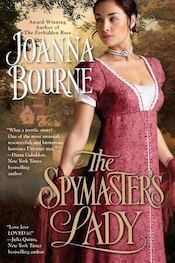
The Spymaster’s Lady by Joanna Bourne (Berkley: historical m/f):
There is a long and glorious history of romance novels that feature spies during the Napoleonic Wars. If Austen and Brontë are first-generation romance forebears, then Heyer and Orczy are the second, and both loved to send English aristocrats into revolutionary France. Baroness Orczy’s The Scarlet Pimpernel has been perennially popular in various media for almost a century (stage play, novels, various miniseries and movies, a Blackadder episode, a Tony-winning Broadway show with Terence Stamp as the chilly French villain Chauvelin…). Orczy’s novel is light and charming and romantic and lets all its characters keep their idealism mostly intact.
Joanna Bourne takes things in an entirely different direction. Our spymaster and his future lady meet in prison, starved and tortured and frighteningly close to death. You’re going to need all the content notes for this one: sexual assault of the heroine happens right there on the page, though it is short and deeply empathetic as such scenes go. This one of those romances where even though you know they’ll be safe in the long run nobody feels particularly safe at any given moment. It is incredibly dark and for a romance shockingly cynical about the nature of espionage and the personal/moral cost of lying for a cause. There’s a bleak edge to it that would make even Le Carré proud.
Somehow it was exactly what I needed. It has been a month of personal loss and worldwide upheaval. For four weeks I couldn’t read anything more lengthy than a knitting pattern. I kept picking up books and then putting them back down again, unable to react to the words on the page. Then I started Chapter One of this and could not stop until I’d read the whole thing straight through. It was a minor miracle, and one I’ll be grateful for til the end of my days.
Grey lifted her half out of her chair to kiss her, passionately and possessively, hard upon her mouth. It surprised her, but she was more immediately concerned with receiving and hiding the knife he passed to her. As a declaration of affection, the knife did as well as any number of kisses.
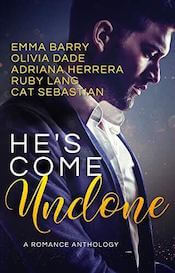
He’s Come Undone by Emma Barry, Olivia Dade, Adriana Herrera, Ruby Lang, and Cat Sebastian (self-published: various settings and pairings):
Someday someone is going to publish something very incisive and scholarly about the history of anthologies in romance: publishers have long used them as a vehicle for discovery, putting bestselling names alongside newer or debut authors to cast lures across multiple reader bases. Self-published anthologies and boxed sets have a shorter, wilder existence. But my favorites are the anthologies put together for the passion of the idea — things like Hamilton’s Battalion or the Rogue anthology series. He’s Come Undone is a whole set of stories where stern, starchy heroes are thoroughly unraveled by love and it is a goddamn delight the whole way through.
This is a deep dive into the grumpy one is soft for the sunshine one, but the mix of time periods and pairings kept things fresh and fascinating. I suspect every reader will have their personal favorites (I reveled in Ruby Lang’s “Yes, And…” and Olivia Dade’s murder dioramas and the Secret History-but-queerer-and-happier vibe of “Tommy Cabot Was Here”) but they’re all great short works by authors who know what they’re about. You’re unlikely to find more bang for your romance buck in any other book this spring. Highly, highly recommend.
“Can we agree that we were both idiots —”
“Yes.”
“— And just let bygones be bygones.”
Tommy hated that phrase. He wished he could let one single solitary stupid thing actually be a bygone. Instead he was dredging up every one of his ancient misdeeds and spending days turning it over and looking at it from every angle like a jeweler examining a gemstone. But he nodded anyway.

Chaos Reigning by Jesse Mihalik (Harper Voyager: sci-fi m/f):
The third and final volume in this blaster-filled space adventure romance series lands with a bang. Stakes are high, communications are down, and one well-timed betrayal could bring down an empire. Jumping into this before reading the other books would be like sitting a Star Wars innocent down to watch Return of the Jedi (“Who’s this Darth Vader guy and what’s his deal?”) — especially since these books are intensely heroine-centric. This is very much Catarina’s story, which is fine because she’s wonderfully fun, but readers looking for more of the hero’s side of things might find that Alex’s appearance in the previous volume adds heft to the experience. It’s a neat trick to spend two books introducing the von Hasenberg siblings and then to put them all so thoroughly in peril: we feel Cat’s motivation more strongly because we know these people, and we want them to be safe as much as she does. And unfortunately, the one pivotal scene I most want to talk about is at the end and so spoilery I don’t even dare mention which one it is — so slide into my DMs on Twitter because I have Questions and Feelings and I want to know I’m not the only one.
I threw in Star Wars as a joke and a reference I trusted people to get — but now that I think about it, I have a lot of the same questions about that franchise as well. How do we reconcile superpowers with political powers? How do we balance desire and duty? How much does the public deserve to know about the lives and loves of its leaders — especially a public accustomed to living in a decadent, corrupt, and violent empire? These questions do not feel entirely academic at the moment.
I felt his gaze like a physical weight and fought the prickling awareness trickling through my system. He focused on me intently, but I’d bet half my fortune that he also remained aware of everything else happening in the room and could react in a heartbeat.
What would it take to capture all of his attention?
I shoved the question away. He wasn’t for me. Someday, I would marry for the good of the House, and until then, I preferred my men more manageable.
This Month’s In Case of Emergency, Break Glass Book
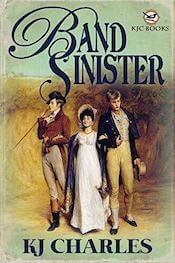
Band Sinister by KJ Charles (self-published: historical m/m):
Sometimes you’re so excited by a book, and the reviews make it sound so good, that you end up not reading it. I think of these books as emergency books, things I know I’ll love and can save until a rough time when I need a guaranteed winner of a read.
If these aren’t rough times, what are they?
The pandemic lens actually worked for me here, considering how much of the plot deals with historical medical care and a main character’s fears for his much-loved sister’s survival. Guy’s deep love and his profound fears for Amanda’s health seared the opening chapters of this book. Often rake-seduces-an-innocent pairings can fetishize the innocence in a way that feels squicky: Ah, someone pure and untouched, right here in my lecherous grasp. And our rake, Philip, does find Guy’s innocence charming — but what truly drives Philip into infatuation is seeing how nakedly, painfully caring Guy is. Guy is a sleepless, unshaven, unbalanced, terrified, hopeless mess until his sister is out of danger; Philip, seeing this, wonders what it must feel like to be the object of such forceful affection. Philip might know eighteen different ways to fuck or be fucked and the Latin terms for all of them — as a lapsed classical scholar who has in fact used Catullus’ filthier works to seduce someone I can assure you that the Latin in this book is impeccable — but he doesn’t feel he’s been deeply, truly loved in the way Guy loves. He’s as allured by that promise as Guy is by pleasure, and the results are spectacular.
“It isn’t complicated, in the end,” Philip said. “We eat, drink, and are merry, for tomorrow we die. Be merry with me?”
In place of a fifth book, and as a final farewell, I’d like instead mention the many other books I’m looking forward to in 2020. May these stories fulfill every reader’s highest expectation and bring us solace and sweet release in the months to come.
- The Boyfriend Project by Farah Rochon
- The Spare by Miranda Dubner
- Two Rogues Make a Right by Cat Sebastian
- Recipe for Persuasion by Sonali Dev
- Girl Gone Viral by Alisha Rai
- Starcrossed by Allie Therin
- Her Lady’s Honor by Renée Dahlia
- Deal with the Devil by Kit Rocha
- Something to Talk About by Meryl Wilsner
- Would I Lie to the Duke by Eva Leigh
- How to Catch a Queen by Alyssa Cole
- Slippery Creatures by KJ Charles
- A Duke, the Lady, and a Baby by Vanessa Riley
- Boyfriend Material by Alexis Hall
- If the Boot Fits by Rebekah Weatherspoon
- The Sea May Burn by Rose Lerner
Coronavirus poem 5: The Year of the Plague: A Letter
Isolation: cold word, with ice in its veins,
not to mention that other sound, “shun,”
at the end. I think of all those rhymed
relatives: nation, duration, desolation,
ovulation, creation—dozens
of cousins, those blood relations
bound to us by skeins of sound.Alone, cut off from you, loves,
there’s not much to do but study
a patch of jonquils, seven in all,
half-hidden by an upturned wheelbarrow
at the corner of the toolshed,
their white sockets frilled, rain-spotted,
splashed by in-and-out sun.Why have I, after all these years,
only now noticed them? Who,
before we came on the scene,
planted them in this out-of-the-way spot?
In isolation, there can be solace,
even as the dying die alone,
even as the dead have no placeto rest, exhausted by their tribulation.
Then there are the other dead,
the red-caps crammed in the town square
howling approval when the king
waves his rubbery arms, shrugs and grins,
ripping sense from every ruined sentence,
spitting back nonsense to wild applause.I’m thankful for a certain kind
of solitary confinement, the kind
where we’re close by being far.
Here, then, are seven jonquils.
Here’s sunlight on their flared skirts.
I give you their stillness, their brief lives.
When they nod, I give you the wind.
Criminal Fiction: Darling buds and all
Every month, Daneet Steffens uncovers the latest goings on in mystery, suspense, and crime fiction. See previous columns on the Criminal Fiction archive page
I fell in love with mysteries for the first time as a kid, reading Nancy Drews, Encyclopedia Brown, The Great Brain, Enid Blyton’s Famous Five and Secret Seven, and my mom’s collection of Agatha Christies, Dashiell Hammetts, Raymond Chandlers, and Georges Simenons. I fell in love for the second time as an adult, hoovering my way through character-fuelled literary riches: Maj Sjöwall and Per Wahlöö’s’s Martin Beck, Janwillem van de Wetering’s Grijpstra and de Gier, Sue Grafton’s Kinsey Millhone, Dennis Lehane’s Angela Gennaro and Patrick Kenzie, and Walter Mosley’s Easy Rawlins. At the same time, the comic-suspense stylings of Lauren Henderson and her intrepid private investigator Sam Jones led me into the wild worlds of Tart and Tartan Noir. And don’t even get me started on Josephine Tey.
Well-executed crime fiction is compelling on many levels, whether it’s a police procedural, a noirish private-eye vehicle, an adventurous comic heist, or a standalone thriller driven by an extraordinary Everywoman. These stories also serve as engaging investigations into our own world: while keeping us turning those suspense-filled pages, crime fiction often directs us to look unflinchingly at some of the most unrelenting gaps in our societal safety nets, shining an insistent light on political and corporate corruption, sexual violence, racism, xenophobia, bigotry, inequality, and injustice. It examines their root causes, while giving voice to those who are normally silenced.
In our time of toxic politics, overt corruption, a pandemic, and deafening calls to destroy science, education, refugees’, migrants’, women’s and workers’ rights – civilized life, really – these crime-fiction writers’ work can be, if not a balm, then a heartening reminder that the investigative light in fiction still shines bright.
Take, for example, the four books covered by the capsule reviews below: two novels are by long-established and consistently excellent writers; the others are by two of the most exciting voices to emerge in the mystery-suspense arena in recent years. Individually and collectively they cover not just the darkest of contemporary crimes and abuses of power, but the ongoing underlying fear of difference, all too easily exacerbated and exploited, that drives some to terrible actions and others to work to redress those actions.
With the shuttering of the Seattle Review of Books, this will be my sign-off, for now, after three and a half truly enjoyable years of penning monthly columns. Please consider this – along with the ones before it – respectfully submitted.
Reading around: new titles on the crime fiction scene
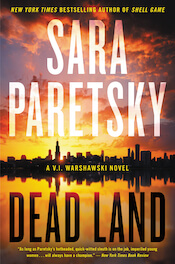
A new novel featuring VI Warshawski, Chicago’s kickass – not to mention ass-kicking – private investigator, is always cause for celebration. Dead Land by Sara Paretsky (William Morrow) kicks off with Paretsky’s trademark string of mystery-fireworks: who is the single-monikered Coop who appears to have a homeless musician’s best interests at heart but is confrontationally perverse? Is the aforementioned musician really a once-famous artist? And what does any of this have to do with a four-year-old mass shooting deep in the heart of Kansas prairieland? Part of the pleasure of going along on Victoria Iphigenia’s crime-fighting ride – as she gets inevitably and relentlessly pummeled emotionally, mentally, and physically – is to appreciate her all-too-human responses to oddities – from fellow humans to surprise circumstances – that life throws in front of her. Her tough exterior and no-nonsense approach to tackling the conundrum at hand does not protect her soft-hearted, deeply empathetic interior as she wins life-saving loyalty from her dogs, uncovers some of the deeper-seated avarices of her city’s leadership, struggles with our country’s bad behavior, and, with her actions, earns the trust of (nearly) everyone around her, from edgy lawyers to people-shy recluses.
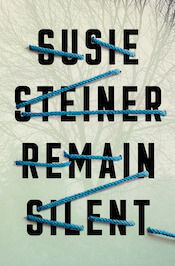
A body hanging from a tree more than disrupts police detective Manon Bradshaw’s visit to a park with her young son, Teddy: it also marks the start of a broader investigation into whether the cause was suicide or murder, and an even bigger investigation into a possible human-slavery racket. With Remain Silent (Random House), the third Bradshaw thriller, Susie Steiner flexes her authorial muscles, deftly painting a comprehensive portrait of the dismal lives of migrant workers whose presence is so crucial to the host country’s economy. At the same time, she eloquently captures the savage, ravaging fear that underlies everything from xenophobia and sexism, to plain-old, soul-destroying bitterness. But there’s a softer light shining here too in Bradshaw’s musings on middle-age, the gentle teasing that goes on between her and her colleagues, and even a dose of the tough love that’s sometimes required when it comes to lasting friendship. I read this book in a single sitting, pushed to both tears and laughter.
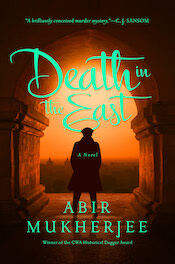
Death in the East by Abir Mukherjee (Pegasus Crime) interweaves two murder mysteries. One unfolds in India where, in 1922, Captain Sam Wyndham of the Imperial Police Force in Calcutta has retreated to an ashram in the lush Assam hills where he plans to throw off his opium addiction once and for all. The other investigation is set in 1905 London where, as an 18-year-old constable with the Metropolitan Police, Wyndham worked one of his earliest cases: the murder of a young woman in the poverty-stricken East End. The way that Mukherjee evokes that part of early 20th-century London – rife with anti-Semitism, xenophobia, bigotry, and that all-too-easy tendency to blame the other – feels downright contemporary, a grim reminder of the importance of learning history. But he also draws his curtain back to reveal a changing world: in India, we don’t get to see as much as usual of Wyndham’s sidekick and partner-in-solving-crimes Sergeant Surendranath Banerjee, but when we do see him, we see a man whose eyes have been opened, irrevocably inspired by Gandhi’s activism and resistance to British rule.
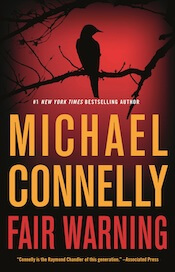
Murder most foul (no, really – wait until you read the baddie’s vicious killer-action of choice) collides explosively with the current threat to our independent and local newspapers in Michael Connelly’s Fair Warning (Little, Brown). When an old one-night-stand catches up to veteran reporter Jack McEvoy in an alarming way – the woman turns up dead, the cops come to question him – it sets him off on the trail of a potential digital-stalker story, a race-against-the-clock investigation that may also involve DNA analytics companies and some nefarious dark-web action. Rich in its exploration of the reporter-editor-publisher roles – Jack’s conversations with his editor, Myron, are pure newsroom gold – Fair Warning is an engaging and terrific reminder of the critical importance of a free press, showcasing the resilience, integrity, and transparency that proper journalism contributes to a functioning community.
Coronavirus poem 4: In the Fourth Week of the New Era
Sometimes we pretended to know nothing
and it was easy. To sing a requiem of luxury
found by a fireplace, a Moroccan rug, a Norwegian Forest cat.We could afford to stand six feet away.
We knew the rapture of the microwave,
the infusion of grapefruits with gin.If this life were drawn in charcoal,
the brushstrokes would connect like strangler figs,
unusual and bold. Not a fiasco exactly. Something worse.No falling chandeliers and circus ropes
but there was a rumbling heard each night at eight,
the crashing of copper-bottomed potsand pans across the avenues. This is what we did
to show communion. A homegrown trundling
towards new humanness, the blue mason jarslined up in extra clean cabinets holding nothing
except the gift of nothing, the clear, runway
fandom of being, a fusion without expectationor outcome, only the pulse of the air, the promise
of another way to hold nothing, to become nothing,
to satisfy ourselves with pure nothing.
The Future Alternative Past: I’m the Fat Lady. And I’m singing.
The current run of the Seattle Review of Books is ending soon. For me, it’s over now, with this column.
Yes, our cessation of publication is COVID-19 related, though probably not as directly related as you think. Neither of the founders have died or are ill. The connection between the pandemic and our closure is complicated. Which is a thing SFFH teaches us about changes and their implications: they stack up oddly, they link laterally, they branch. “It’s after the end of the world; don’t you know that yet?” Sun Ra’s Arkestraasked back in the day. I’ve quoted that song here before, when discussing trends in apocalypses. It’s pertinent now, too, when we’re experiencing one.
Yep. hat’s what this is. An apocalypse.
I teach this online course on writing alternate histories, “Turning the World.” One exercise involves querying the ways everyday objects are transformed by the students’ chosen points of divergence. If a cure for equine malaria is introduced into Equatorial Africa in the 9th century, what does that mean for the region’s clothing? Do the newly created riders wear boots? Kilts? Chaps? And do non-riders assume riding costumes as marks of prestige? So forth. So on.
Pacifist that I am, at one stage during its drafting I wanted to write World War I out of my alternate history novel Everfair. But a bit of research revealed that if I did I’d lose one of the primary causes of the Harlem Renaissance, a period crucial to the rest of the plot. What a tangled web life weaves. Reproducing it even partially in fiction is hard work. Extrapolating from it is much harder.
That’s a lot of what we SFFH authors do: extrapolate. Actually, extrapolation is something the whole SFFH community is interested in. Improbable though the current situation seems, we expect to see it develop further. Question is, along what lines? What happens when the status quo stops? After the fat lady sings?
Every apocalypse is also a potential point of divergence in the histories we write simply by existing in the world. From where we are now we can make our way to times and places like those in the Cory Doctorow’s Walkaway or NK Jemisin’s “The Ones Who Stay and Fight.” Or we can wind up in quite different sorts of scenarios. Bad ones. It’s worth studying. It’s worth trying to do properly. Trying to create exactly the effects we most deeply desire, note by note.
And that’s it from me. Thank you for listening all these months. I hope my songs have moved you, and also that they’ve given you ideas for how to go on after their end.
Road Runner Chapter 46: I have seen good things sprout from darkness (just not today)
May 5, 2020, at 11am
"There’s a crowd gathered at the gates when I arrive – military personnel, a few people I recognize from the medic unit, as well as a handful of curious cadets."
Coronavirus poem 3: Virus
Scroll sideways to see full lines
The first bars I recognized — fever and sweats, the thorn-caged skull. Then a desperate animal burrowed into my chest, whose breathing had always been sickle-smooth through grass.
Lights on, I could register this as datum for slipshod mortality, entered in a faux spreadsheet if not into bed in the cacophonous hospital off Lexington.
Many were being turned away in their homemade masks as if they wore no emblem of extremity maybe a forehead marked by clay or were instead transparently flaunting their prized secrets and so at last to recede submissively into dust.
I could register it as a kind of untouchability when a mosquito bites me and dies. The authenticity of fever: my Sunday revelation. Phone calls commiserate in a variety of keys.
Also the twin bruises inside my knees as if the clenching of willpower were absolute to the bone.
It's that time when the body is most confiding, most indoors and discrete, its membranes swelling to a tympanic throb, needing a certain humidity to linger and cool.
Body will be one day's statistic, belonging to other people for an hour, pouting with surprised cerise lips. The rest will prove the loveliest of expositions.
Alone, I discover this breathing music that is called pattern, tracing it through the steam peeling paint from the raddled bathroom wall. The little animal nuzzling my ribs, its hungry sigh a diminished chord.
We're going on indefinite hiatus
There's no easy way to say it: The Seattle Review of Books is going on indefinite hiatus. We'll be publishing a few more columns, reviews, and will have two weeks of daily poems about the novel coronavirus, but that will be it for for the foreseeable future.
This was a painful decision. We believe in Seattle's literary community just as much now as we did on the day we launched the site, if not more. But after five years of daily publication, we find ourselves taxed on a number of levels: the digital infrastructure requires intense and comprehensive work; our staff requires more resources to grow the site and keep it from turning fallow at a moment when resources are less available than ever; and, quite frankly, some of us are exhausted.
The greatest joy of working on the Seattle Review of Books has been reading and publishing all this new work by so many talented writers. We have paid for and published the work of dozens of local poets and reviews by dozens of local authors. We've worked hard to be a home worthy of our amazing stable of genre columnists: thanks to Daneet Steffens, Olivia Waite, and Nisi Shawl for their boundless enthusiasm. We've loved being a regular home for Seattle artists Clare Johnson and Aaron Bagley, who never failed to delight us with their latest work.
We owe a great debt of gratitude to our editorial staff: Mariya Bashkatova, Julie Yue, and — especially — Dawn McCarra Bass, who helped expand the site from a two-hander into an ensemble piece. And Portrait Gallery artist Christine Marie Larsen and Help Desk columnist Cienna Madrid, have been here from the very beginning; there would never have been a site to begin with without their brilliant work.
For all the people and organizations who sponsored this site through the years: thank you. Know that you have helped support some of the most talented writers and artists in the city. It's an honor to be a part of this community. We've made friendships and read books and celebrated people who have changed our lives for the better. We hope that the Seattle Review of Books has enriched your lives even a fraction as much as you've enriched ours.
The site will stay up as a comprehensive survey of five tumultuous years in Seattle's literary history, and hopefully we'll be able to repair some of the back end issues that have interfered with search and archival functions.
We refuse to say goodbye; instead, we'll see you in the bookstores and readings and libraries that make Seattle such a wonderful place to live. Don't count us out completely — we'll be back in some form at some point. If you have thoughts about what that should look like, you can always reach out to us and let us hear your thoughts on the matter.
Thank you, to all you book lovers in Seattle, and from around the world, who became part of our community. It was an honor and pleasure to be part of yours.
Road Runner Chapter 45: I’m sorry it had to end this way
May 4, 2020, at 11am
"It takes less than an hour for the higher ups to decide I won’t be given the opportunity to be culled at The Sorting on Friday. I’ve been kicked out of Marseilles Military Academy, effective immediately. Secretly altering peoples’ grades is frowned upon harder than I thought. "
Road Runner Chapter 44: This is me, finally using that backbone
May 2, 2020, at 11am
"Rodney is smiling. He smiles like he’s got too many teeth in his head. It appears to be his only natural talent: too many teeth."
April 2019's Post-it note art from Instagram
April's Theme: I’m Trying
We all know what happened here, I had great plans and now plans are just laughable, well-loved but worn-out, too threadbare to really wear for any length of time. Just ideas nothing sturdier, shed almost as soon as we try them on. I felt so clever planning how people living artist lives would choose all my post-it publications this year, but now I’m quarantined in Memphis in a vastly emptied warehouse, this indoor luxury ghost town, the art community at home out of reach across the gaping canyon of my rundown computer. The handful of us still here politely keeping our distance, it’s not a time to sit together on the couch, lean our heads in closer over my notebook to peruse the intimate years. So I grabbed a few post-its from the moments this residency—my busy projects—my plans, our plans—were shutting down—this slow motion tumbling interruption—moving actually quite fast—and sent them to Martin. Martin is who I always send these to. I never know what he thinks of my choices, but he does keep publishing them. Over time, all I’ve gleaned is maybe he most likes seeing recent days. Martin is certainly a person in the arts, not just as co-founder of The Seattle Review of Books but also as a novelist and designer. I asked him to narrow my scant sheet of moments down to 4 post-its; these are his choices. I’m struggling with what to say because I want to be uplifting, I want to be amusing, I want to turtle, an escape inside myself, I don’t want to bare my guts right now. I look at these post-its and see my prior months folding over on themselves, falling asleep, piled up blankets on blankets over whatever I was doing before. I’m so sleep-deprived. I’m a little naked and floating just above the rubble, it’s a little unseemly, somehow it turns out I can still go on walks. An invisible rustling behind the buildings, the weather moving overhead. My bedtime body my own solitary toddler, I have to manage it, trick myself into needed rest. The last movie I saw in a theater was a pleasant-enough Jane Austen adaptation and now I just want endless plots I know the end of, and no one dies, that pastoral five thousand miles away. Steeling through my staying-put-here decision instead of rushing into Seattle, bodily goodbyes to family I couldn’t see at home anyway, I palmed my copy of Persuasion and slipped secretly into a dress from teenage summers with long hair. Reading in this starkly air-conditioned concrete bedroom, chair backed against the ghost of a hulking, industrial column emerging through my newer wall, waiting it out like an open window, waiting to be so cold I might sleep. On sudden warm days before the thunderstorms, outside the heat crashes my heart into other places. I walk around on the phone feeling like a million humid vacations, other versions of myself or something about palm trees. Don’t make me talk about money, ok? I think there’s something sweet about my take-out-tofu-craving self I don’t want to sully with the gritty details of an artist’s income. I’m doing ok.
The Help Desk: See you later, alligator
Dear readers,
If anyone should be thriving right now – besides the politicians making bank off of insider trading or the big businesses making bank off of small business loans – it should be me, the woman who spent a decade prepping for the end of the world, whose "life savings" are practical treasures most banks won't touch: the gold fillings of my forefathers, a bathtub full of dried beans and a cellar's worth of bottled urine.
Yet this pandemic has revealed hidden truths for all of us, has it not? I personally have been wallowing in an underground trough of truths:
- There is no smoothie or cocktail strong enough to disguise the flavor of recycled urine.
- Like my mother before me, I've discovered I am not cut out to be a mother.
- My advice is no longer useful, given our current climate. This situation calls for something stronger (not urine).
Based on these truths, I've had to make some hard decisions this past month. For one, I've stopped hoarding urine and gave up on my dreams of launching my own brand of mouthwash. I also tried to return Beatrix to the purse farm I bought her from as a pup (or whatever), but they refused to take her. She's at a very difficult age – too big to be purses, too small to be boots – so it seems I'll remain a mother at least through Christmas.
I have made the difficult decision to stop writing this column after five years. Based on how often my spiders and daughter currently follow my advice, I have to acknowledge that people don't want to be lectured at right now. Which is why I'm pivoting to launch a new screamcore podcast with my human friend named Joe, who is real. It will feature human guests. The format will be thus:
"Our first guest is (insert name). Ok, take it away." And then they will just scream for as long as they want.
I know I was a little off with the urine thing but I really think this is what America needs from me right now.
For all of the readers who have read this column over the years, thank you for meticulously following my advice. To those who have written in and whose questions I have not yet answered, take heart: I answer them all below.
Dear Eric from Fauntleroy: Under non-pandemic circumstances, more than three per week separates dedicated book lovers from hermits; you're only misanthropic if at least one of those books is Journey to the End of Night or In Trump We Trust: E Pluribus Awesome!
Dear Liam from Eastgate: I don't know about ever, but the gayest book I recently read was The Argonauts. It was good for me in that reminded me that there are bigger hurdles in life than attempting to get a small business loan (in this climate, no less!) for an artisanal urine mouthwash company.
Dear Rose in Ballard: I, too, often assume characters are white unless otherwise stated. If the Barnes and Noble campaign had been executed better, I think re-envisioning famous literary characters as people of color could be powerful. But the main criticism was that almost all of the books they were highlighting during Black History Month were written by white authors and that's just a big fat wet fart of a fail on their part.
Dear Estella from Admiral: Get your author photo refreshed every seven years, preferably in black and white.
Dear Devon from Renton: Nowadays I arrange my books like I would children, had I bought more of them from that alligator farm: favorite to least favorite. This allows me to obsessively rearrange them whenever my moods shift, which is often. In fact, I used to group them by moods. Just don't arrange your books alphabetically or the spiders in your new home will mock you.
Dear Pat from Sand Point: I would like to try Bilbo Baggins' seed cakes from The Hobbit. There used to be a bakery on Capitol Hill that made lemon semolina cakes and they were the best thing I've ever tasted – very tart and soft but kind of crunchy. I used to imagine they were like Baggins' seed cakes.
Dear Overworked SPL Librarian: As we are painfully witnessing right now, the hardest jobs, the most taxing jobs, the least financially rewarding jobs – these are often the most essential jobs. I personally consider librarians to be essential workers. I understand if you're suffering from burnout and if that's the case, I wouldn't want to convince you to stay in a job you are growing to resent. But on behalf of the millions of people who love libraries and value the work that you do, thanks for being an absolutely vital part of your community, for however long you choose to do it (and when you do switch careers, just be sure you can continue to be proud of yourself and the work you're doing).
Dear Ron from Frelard: You are correct: Cats the movie sucked, Cats the musical sucked, and the book they were both inspired by – authored by T.S. Eliot – also sucked. But I am not a cat person.
Dear Grace from Wedgewood: Where did all the blogs go? The blogs all died because, like newspapers, there is no funding. It takes a lot of emotional and creative energy to maintain a (great) blog. Without money to pay contributors, all great blogs are labors of love with limited shelf lives.
Finally, I would like to thank the creators of the Seattle Review of Books, Paul Constant and Martin McClellan, for being wise enough to recruit me for my good advice. As human beings go, they are both pretty tops.
And dear readers, always remember:
Find a spider,
set it free,
if it bites you,
think of me.
Final kisses,
Cienna
Road Runner Chapter 43: In my garden, I finally grow a backbone
May 1, 2020, at 11am
"I want to be better. I want to be a person with ideals she’s strong enough to live by. In my head that’s easy, but in practice, I’m struggling. Confronting others is not my strong suit. Changing myself is exhausting. Part of me wonders if it’s worth it."
The Portrait Gallery: Social distance readings
Each week, Christine Larsen creates a new portrait of an author for us. Have any favorites you’d love to see immortalized? Let us know, or see if you can find them in the archives.
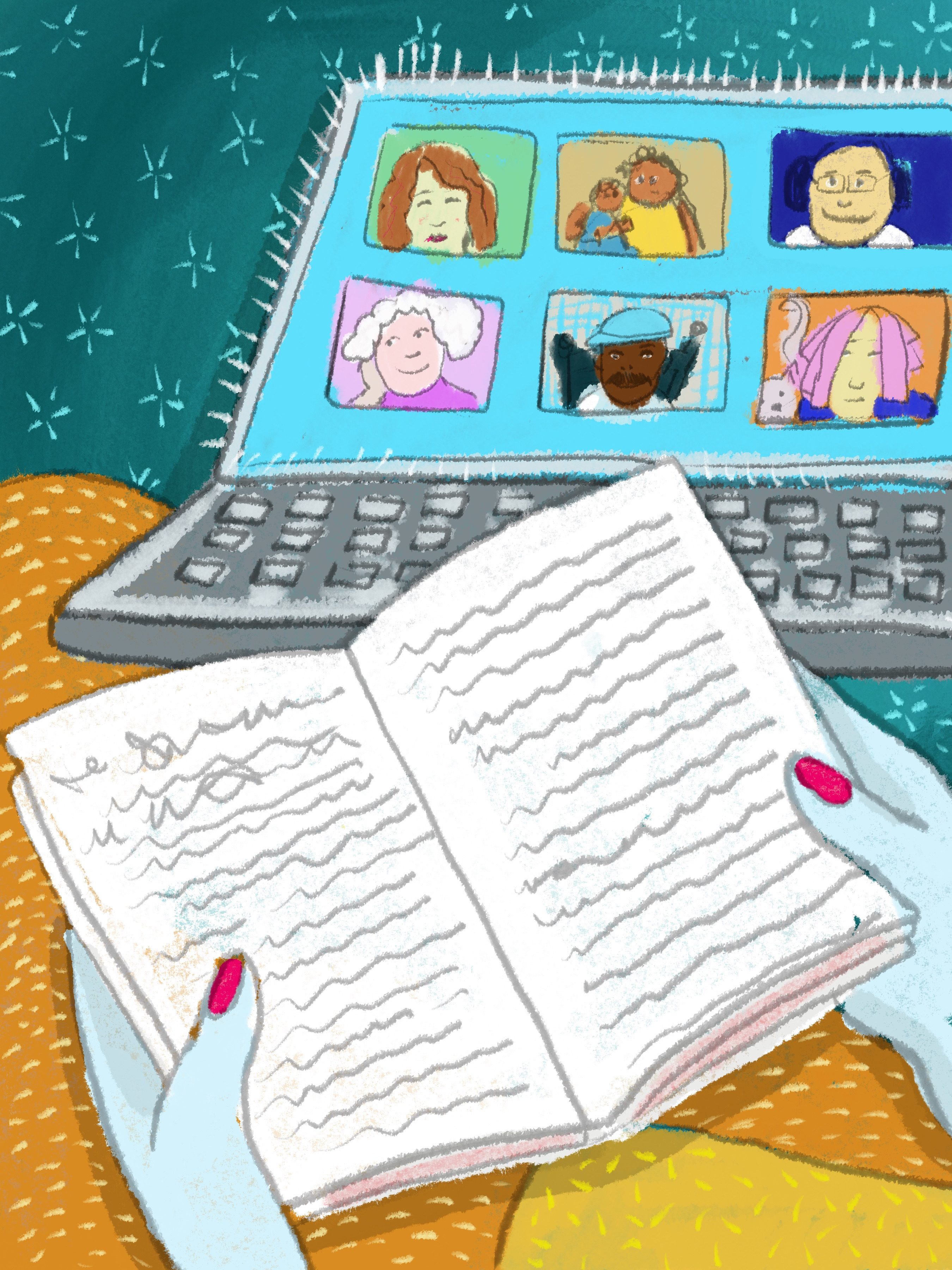
I am not at home to you: Dream House as book review
Published April 30, 2020, at 12pm
We distracted Tessa Hulls from her graphic novel to cover Machado's Dream House for us. The result is glorious.
Road Runner Chapter 42: Envisioning a world in which I don’t disappoint myself
April 30, 2020, at 11am
"The lightning bugs are back, zinging around my face, dimly lighting my way forward. Next month is The Sorting. I know: it sounds ominous and needlessly dramatic (especially for the military). It’s supposed to. The Sorting is when we take our final exams and all of our professors, instructors and mentors decide which half of us will stay another year, and which half of us will be cut."
Thursday Comics Hangover: The heart of the city

It's impossible at this juncture to tell what lessons we'll draw from coronavirus. One response that has literally kept me up worrying at night, though, is that the pandemic will inspire a new wave of American anti-urbanism. Will people be queasy about riding public transit two years from now? Will people learn to fall in love with the wide-open spaces of sprawl again? I hope not, but it seems at the very least like a real possibility.
It's a good time, then, to read interesting work about cities. And Sylvia Nickerson's new comic Creation is a warts-and-all appreciation of city life. It's about a character — seemingly Nickerson — who moves to a rapidly gentrifying neighborhood in Hamilton, a rust belt city in Ontario with a population roughly the size of Boston. As Toronto and Vancouver get bigger and wealthier, young artists like Nickerson are searching out affordability in mid-range cities like Hamilton. Their arrival signals a kind of doom for the poorer, less privileged residents of Hamilton.
Nickerson shows her new work as part of a neighborhood art walk. She walks around the city with her son. She sketches the city in all its grandeur and grit. Her son becomes obsessed with garbage, and soon they're observing the people who live in the gutters. She can't protect her child from crime and pollution and poverty, even as she works hard to build him a better life.
In Creation, Nickerson largely draws human beings as empty outlines, like Keith Haring figures. They're expressive — you can see one human regarding another human with caution, and you immediately know which economic class each person is from, what their stations in life are — but they lack finer details. Nickerson gives all that detail over to the city itself. The windows and walls and detritus of Hamilton are lovingly sketched on every single page here — in a style that is not quite realistic but which feels photographic in some way.
In one two-page spread, Nickerson draws an urbanist's fantasy, with exposed brick and Victorian facades. On the next, she draws the cigarette butts and used condoms that she sees on the ground. She's not making a judgment about the city; she's seeing it as it is, and reporting back to us. You can't talk about the soul of Hamilton, she argues, without discussing the class disparities and the gentrification and the heartbreak and the crime.
Any honest assessment of a city has to include all those qualities, and then each person to do the calculus to determine the value, and if it's worth the cost. For myself, and I think for Nickerson, the cost is worth it. For city-dwellers, a city is a commitment you make every day with the land and with your neighbors, and every commitment carries with it a little bit of hope, a promise of tomorrow.
Celebrate National Poetry Month like an introvert and an extrovert
National Poetry Month was eclipsed by the plague of it all this year. What would have been a solid month of readings and public art and parties has given way to streamed events and canceled book launches and other pandemic-era disappointments.
The best way to honor National Poetry Month in the middle of a pandemic, to the best of my estimation, is to sit with some poetry books and use them as lenses on the world — to really try to think like a poet.
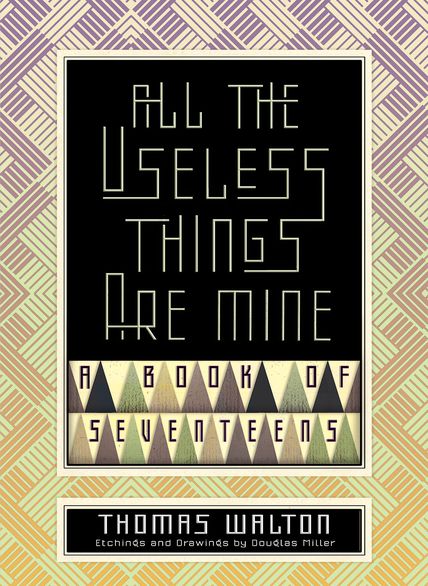
I've been spending the month with two new releases by Seattle poets from local press Sagging Meniscus's Shorts line of pocket literature: All the Useless Things Are Mine by Thomas Walton and Rotalever Relevator by Doug Nufer.
Useless is a collection of poetic aphorisms championed by Walton called seventeens — 17-word sentences or collections of short sentences totaling 17 words. They're sort of like haiku, and like haiku the best examples of the form are meditations on the mystery of nature:
Nobody tells you the morning light is blue, bluer than the bluest blue moon. Nobody says that.
and
The storm passed and when it did it left the plum tree bedazzled as a spinning child.
Some of the seventeens are a cross between a one-liner in a standup comedy routine and a zen koan:
Little man in enormous truck shouts: I don't have a Napoleon complex! . . . it's much bigger than that.
Our babysitter drinks whiskey and is usually late, but we don't mind, we don't have a baby.
Walton told me that he'd prefer readers dip into and out of Useless, not sprint from front cover to back. Authors are not always the best at determining how to enjoy their own work, but in this instance Walton is correct: you have to keep the book close for a while, flip around, and see what sticks.
No matter which of the seventeens most appeal to you — the magisterial or the witty — you will likely find yourself affected by this book: you'll start to see the world as a series of potential seventeens, just waiting to be written. When you leave your quarantine for the world outside, your eyes will scan around, trying to find pieces you can frame within seventeen words. It's a constraint that is at once a manageable size but also capable of inspiring revelatory moments.
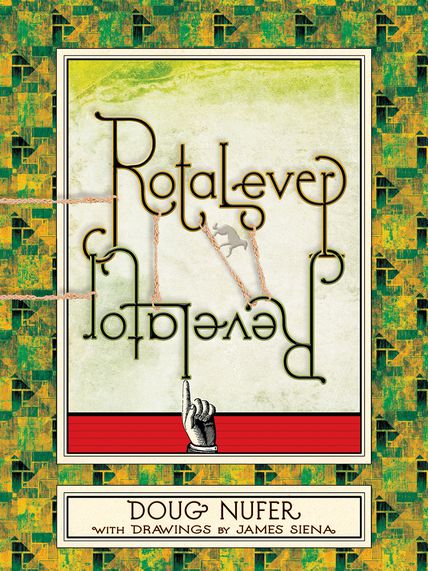
Every Doug Nufer book has its own high concept, a constraint that effectively becomes the plot, the narrative drive, of the project. Here's the publisher description of his latest:
Rotalever Revelator is a book made from words that spell other words backwards: a giant palindrome that contains poems about geography, dams, swamps, celebrities, eponyms, and the news...Flip the book over, and you have Rotalever Revelator: the same sequence of letters, differently divided into words and punctuated.
This isn't the first time Nufer has made a flippable book — his Ace Doubles homage The Mudflat Man/The River Boys had the same basic format — but this time Nufer really digs into the idea of what it means to have a book with two separate but equal front covers, first pages, and so on. Revelator Rotalever is a mirror image of Rotalever Revelator but also the two books combine into an ouroboros of language, a long palindrome with two beginnings and two ends, or perhaps no beginning and no end.
Nufer writes himself into the work this time, shouting his own name into the echo chamber on multiple occasions. The first two words of Revelator Rotalever are "Nufer snips." The last three words of Rotalever Revelator are "...spins re: fun." Nufer snips and spins the language. Why? For the fun of it.
Here's something that many of you have probably encountered at least once or twice in the past few weeks: when you're on a video call on your phone and you walk into a room where someone else is on the call on their computer, the two video chats begin conversing in a weird loop of screeches and gulps that gets louder and louder until someone has to end the call to silence the feedback. Nufer has made two short books that are deep in conversation with each other in that way, a closed loop of language that references itself and satirizes itself.
While you can take Useless out on the road with you, pulling the world through the frame of the book, Rotalever is the kind of book that makes you want to stay inside and wrestle, flipping back and forth to see how it speaks to itself. I got my copy a week ago and it's already battered beyond repair — spine broken, pages bent, edges scuffed from turning and re-turning and returning in a palindromic journey to the end of the beginning and the beginning of the end.
Road Runner Chapter 41: Invisible wounds and all the other things hug therapy can’t heal
April 29, 2020, at 11am
"Zelda is broken. She sleeps under her bed and most nights wakes up screaming. When I brought her eggs for her hair, thinking it might cheer her up, she wouldn’t even meet my eyes."
Talking to Rufi Thorpe about writing, understanding people, and Iris Murdoch
A writer with one book is to be celebrated. Two books, and they can be compared. But when a writer has three, or more, books, you can start to see the patterns of thought in a new way, the things that fascinate them. The threads that connect.
Rufi Thorpe just published her third novel, The Knockout Queen, with Knopf, which I reviewed yesterday (spoiler: I loved it). I pitched her on an interview where instead of talking about the new book, we talk about the themes that are in two or more of her works.
We talked over Zoom one recent evening. This transcript has been edited for readability and legibility.
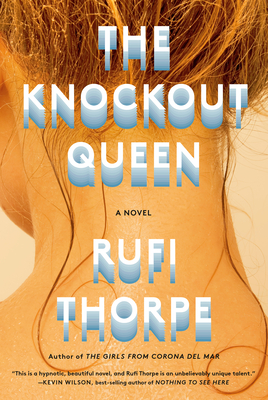
Looking at your books there were a few things that I saw that showed up in either two, or maybe all three books. I wanted to ask you about a few of them. The first one I'm going to lead with is: traumatic brain injury.
The first time that I really had interaction with traumatic brain injury was because I had these two students when I was teaching composition to undergraduates who had both fought in Iraq, and they were in the same class together. One of them had a traumatic brain injury that was bad enough that he needed to record class time, because his short term memory was sort of just blasted. So he wouldn't be able to do the assignments if he didn't have a literal representation of what was said in class. He was still got an A in the class, he worked so hard, it was ridiculous. But talking to him about the experience of it, and what it was doing to his life and how he felt about being in the army was really interesting to me.
I had another friend that was a soldier who had traumatic brain injury, as well. Then sort of by coincidence, really, my husband is a neuroscientist and his first job right out of his PhD, he studied attention. Analyzing EEGs, electrical signals in the brain when you're paying attention or shifting attention. And then he worked in a developmental neuroscience lab, and then he got a job at a company that's building a robot headband that can diagnose both concussion and stroke. A lot of people, if they've had a stroke, they get picked up by an ambulance, and sometimes the ambulance thinks they're just drunk and so don't take them immediately to the stroke center. And you know, every minute is brain.
So, I think about it a lot. I wrote a whole novel about Bunny Lampert [one of the main characters in The Knockout Queen] like 10 years ago. It didn't have any of the same plot. She was a peripheral character in this group of linked stories. And so and the idea that I had first gotten for her was from a girl boxer that I met at a party who had really obvious traumatic brain injury, and had this kind of creepy little boyfriend who was her tender, because she was so out of it. I don't know if it was just being hit in the head too much, or if there was drugs involved, but she was out of it enough that she couldn't remember why she was there, what we were all doing, and he kind of would have to soothe her through the night. It was so scary to me and I felt so just scared on her behalf. It haunted me enough that I wrote two novels about her.
What is it about Orange County or that part of Southern California, those beach communities, that that are so dramatic or mean so much to you?
Well, I grew up there and I think that then my first experiences of people and families and reality are all hinged on that place. So that's part of it.
I was born in Texas and we moved to California when I was six. So most of my remembered childhood is in California. But my mother had lived here and she went to UCI and my grandmother had lived here and so a huge amount of her childhood and her life was spent here and California and everything that it represented to my grandparents, they were living in Arizona, and I think that my grandfather had just worked himself into sort of a really drunken, violent, dark place. The idea was that if they moved to California, he could be good and he could do better. And of course, that didn't happen. And they just continued to have a horribly destructive marriage for another decade. So California is symbolized so much in all the stories that I learned as the fairy tales of real life. Like, this is what happens to people, to women, to marriages are all somehow tied up with California for me.
There's a lot of class stuff there, too. It's a very opulent, rich area, it's been more working slash from the past, but a lot of your characters are facing against that economic disparity.
Well, and the other thing about Southern California is it's all about the real estate. You know, real estate plays an unusually a pressing role on everybody's consciousness. There was a big real estate market collapse when I was in, maybe, third grade, where everybody's dad was suddenly unemployed. My mom was a single mom so she always worked. All the moms came to her and were like, “can you teach me how to get a job?”
Especially with Corona Del Mar, the opulence I found really alienating because it changed so much. I mean the Fashion Island that I grew up going to as a twelve year old stealing lip gloss from Thrifty's was a completely different fashion Island than what is there now.
There was a penny arcade that we would play Mortal Combat at, we would eat at PF Chang’s. I mean it was like a normal mall at one point. Going to it now, it’s just unreal. I feel kind of the same way about Corona Del Mar. I guess that's part of why I was able to call The Girls from Corona Del Mar that, because I grew up there and I knew what current is.
Whereas when I started writing The Knockout Queen, we were just moving to El Segundo and the place had captivated my imagination, but I didn't feel like I knew it. I didn't know anybody here. We weren't even technically living here, yet.
When I decided to set it here, it was more just that the town fascinated me, as a small town dynamic where you could get this gossip going and this sense of community. And yet it had all the same features of Southern California that I was kind of already familiar with. Cause there's even, I mean Corona Del Mar should be a small town, but there's a weird, anonymous, zombie feeling to it. It's like people don't even really talk to each other, they just go work out.
I'm curious if the fictionalized El Segundo, and Corona Del Mar in your first book, are they in the same universe? Do all your characters live in the same world?
I'm starting to think so. I mean, I didn't consciously think about it really with the first two, although in a weird way I feel like Dear Fang and The Knockout Queen are more from the same universe than The Girls from Corona Del Mar. I couldn't even give you a conscious reason why I think that. But definitely the thing that I want to write next is I think going to be explicitly set in North Shore with some peripheral characters borrowed from other books.
Your characters often feel very Californian, but they're often, in the books, either not in California or have escaped, California.
I think sometimes it's easier to understand who you are when you're not at home. Maybe I only think that because of my life, because I grew up in California and then went to boarding school for high school and then went to college in New York and grad school in Virginia. And so I was always coming home and leaving again. So I think that those moments of being in a strange place and realizing that you're so Californian, or returning back to California and realizing the ways you don't fit in there those are compelling situations to me.
Which is brings up another topic: a lot of your characters have gone to graduate school, or are looking at things from a certain perspective.
I think one element of that is that plot and propulsive cause-and-effect storytelling is probably the thing that's been hardest for me, I think that I started and I really honestly think that one of the reasons I became a writer, and it was successful, was not because I perceived myself to be good at it, but because I found it irritatingly difficult.
I wrote songs, that’s how it started out. I played guitar and bass and I would write songs. And so then I started writing poetry, and then I went to this summer camp and there wasn't room in the poetry class, so I had to take the fiction class. I was like, how does this work? Are you kidding? I couldn't understand any of it.
They’re like “you know, just make someone up.”
I'm like, what do you mean? How? I can make up jibberish, if you asked me to just, like, fabricate words, I can do that. But what do you mean?
So you close your eyes — and then what do you do? How do you make someone up? How do you know you're making up the right thing and not the wrong thing?
It was like trying to describe how to go to sleep to somebody that didn't never slept. I just really didn't understand what I was supposed to do. I found story and causality to be really mystifying. How do you know that anything was not another thing? What's the difference between a sequence of events and a story? And Aristotle is really confusing on that point because a lot of the definitions are super technological.
My personal understanding of story, the part that I did feel like I grasped, was the way in which somebody's history made them who they are in their adult life. That I understood intuitively from knowing and loving people in my life, seeing who my mother was because of all the things that had happened to her and the life that she lived.
So, in some sense I think all of my books are an attempt to take people in a situation, and then go look at how they got there. The sense of time is almost always moving backwards, and then working towards the present. Instead of being interested in stories where it's moving into the future, and it's more concerned with one event causing another, that is inherently suspenseful in the sense of, like, a bomb is going to go off. I'm less able to write those.
That's really interesting because one of my questions was about the way that you build tension. You often will plant seeds, and then where a more genre-style writer would make it into melodrama, and build the tension — you often come in and undercut it. I find it extremely comforting. I like it because I always hated stories that pumped up the tension too much, and then they felt, it felt artificial. The story became about that tension line instead, of about the people in the story or the story itself.
I'm sure everyone else could have looked at my Iris-Murdoch-loving, David-Bowie-listening purple-haired self and been, like, “she loves melodrama.” But I didn't know that about myself until I was in grad school and one of my professors said “so, you have an addiction to melodrama that makes your work unpalatable.”
I don't think he used the word “unpalatable”, but that was the idea. He had a whole schtick about how he would define melodrama…it was something about the villain having a mustache and having a bowtie. I dunno, it doesn't make a whole lot of sense, but I didn't figure out until then that I could leaven the melodrama with….
You know, my understanding of reality was that it was very dramatic. People have a certain quotient of weird that just exists in their bloodline. The things that happened to me, and everybody that I knew, were just very odd, and troubling, and violent, and super melodramatic.
So, sense of reality skews in that direction. And then it was, again, in grad school, and it was a writer — I mean, we weren't even really friends. I don't think that he liked me at all. And he was like, “I don't understand. You're such a funny person, why is your work so completely humorless?”
It just never even occurred to me that I could be funny in my work. And so then I decided to try that, and I found that that's what made it all start to work together. I should have known — I always loved comedic novelists. I was a big John Irving fan. I loved Kurt Vonnegut, you know, so that's sort of when I artistically felt like it was all jelling. So, to me, the comedy and the melodrama would go together.
Like Iris Murdoch, you don't write huge, large plot driven facades. You take people in their real lives and go deep and examine them This is another way I think you're a lot like her. You examine them — not from their internal point of view, although certainly do, and there's a little distrust there sometimes — but, often you look at people by how other people are talking about them.
Oh yeah. I'm very interested in that. I'm interested in how people see each other and their misapprehensions of each other are super interesting to me. And the ways that we see each other change over time. The way that you can think of someone as one person and then ten years later you think you can't even remember how you used to see them because you see them this other way. And I'm always interested in those kind of lapses.
Iris Murdoch was so obsessed with infidelity and it made me so anxious reading her books. That was always the hard thing for me because I loved Iris Murdoch and this is so I first started reading Iris Murdoch when I was, I guess, eighteen, and at the time I was living in New York with my first serious boyfriend. For my birthday he had visited every used bookstore in the city, and bought every Iris Murdoch novel he could find. Then he’d hidden them everywhere in our apartment.
Months after my birthday, I would open up the closet and an Iris Murdoch book would just fall out. He didn't even know how many he had. So I read all of them, and it was this big gush of just Iris Murdoch. I don't think I read anything but Iris Murdoch for six months when I was eighteen or nineteen. And I found her so thrilling because I loved all the philosophy, and I took a lot of philosophy classes in college and really loved approaching the world that way. And yet I found the behavior for characters to be so scary that I would get kind of sick to my stomach reading, but I couldn't stop.
There are these people who talk about Iris Murdoch and especially males, traditional older male British critics who have this very, you know, kind of tsk-tsk look at her and her approach to things, especially because of her many love affairs and the people that she was in love with. Like, she was in love with Raymond Queneau really early. I don't know if you've ever read these letters, she wrote to him amazing letters. He was married and he didn't want to have that kind of relationship, but he kind of mentored her as a writer. She wrote these before she was published about how she was horrible and should never be published. And it was this incredibly vulnerable person sharing these moments with someone they want to get close to.
And I'm hearing that from Iris Murdoch now, who, you know, knowing where she went was is so fascinating, but I always thought it was like her ability to fall in love with people that made her so compassionate to people. She was never judging anybody. It was always about compassion or getting to know them better and fascination and acceptance. And that's maybe another something you share with her, that you're caring. You don't let your characters off the hook for things they do, but you're also get close to them at same time. You don't, you don't push away from them because they're being bad.
Well, that's always been sort of one of my problems. What do you do with the fact that you love bad people? I think I write about it because it's been a thing that I had to figure out in my own life. You know, in my personal biographical life, but even the stories that I was sort of raised up on my grandparents who were super abusive and horrible alcoholics, but my mom was always “my dad was just the best.” And I'm like, yeah, but he was also horribly abusive to you.
“Well, he was a really fun guy.” She loves him and he was horrible to her, and ruined her life. How he could be a monster — and not just a monster to other people and you can pretend it's not happening but a monster to you! — and then you still love him and see everything that was good in him and everything that was broken?
So I knew always that you could see it, that you could let your compassion go all the way with someone, even the worst person. But then there comes a point where you have to decide let this person keep being in your life? And that was sort of the part that I had to figure out in my own life.
I kind of fall in love with anybody, you know, I especially like the more broken someone was really, the more likely they were to tell me about their past. And then I could understand the way that they were. And so then how can you not love someone once you see why they are the way that they are? I didn't understand what the difference was. And so understanding that I should be seeking romantic relationships with people I admire was a late dawning concept. But even outside of romantic relationships, in friendships and in familial relationships, we often wind up entangled with someone who's going through the big bad shit and is being bad and we know why, and yet they're still being bad. And that conflict is a big one for me.
What are some other themes that I haven't touched on? Are there things that you think about throughout your work that you either do consciously or you notice yourself writing about later that come back at you?
Worrying not only about loving people who are bad, but worrying that you're a good or a bad person is always there. Misunderstandings and misapprehensions of other people. I like secrets, longstanding secrets. Also, I guess like bad parenting, I think there's a lot of questions of bad parenting.
Young parenting, like people who are very inexperienced and thrust into suddenly being parents.
My mom got pregnant with me from a one night stand, and was just like, “well, why have an abortion? I don't think I'm going to get married and have the life I thought I was going to have and so why not?”
So she raised me on her own and then I, as I started publishing books, I had just had my first babies and was sort of understanding how much work being a parent is, and how lonely those years must have been without anybody to coo over — you know, I mean that's the best part is seeing your child be so cute and then having somebody to be like, “aren't they cute?” with.
Sharing loving your kid is this huge way I get through the day in my life, and the idea that she was alone with it and that she didn't have anybody to tell when I said something funny, just broke my heart. So I think about that. I think about how ill suited to being a mother my grandmother was. She just never should have done it. She hated children. And she was old. I mean I think she was 43 when she had my mom, maybe it was 41 when she had my mom's older sister. So she became a mom really late and then was like, "oh, this is really getting in the way of my drinking.”
And so I'm always a little bit interested in stories about women failing to be good women. Not being able to perform the role as they understand it.
One review in a single style of Rufi Thorpe’s brilliant new novel, without boxing metaphors
Published April 28, 2020, at 12:00pm
Rufi Thorpe's third novel The Knockout Queen is being published today. Reviewer Martin McClellan gushed about her last book — does this one hold up?
Road Runner Chapter 40: Different flavored prisons
April 28, 2020, at 11am
"The fire liberated us on day six, but who knows how long Professor Munger meant to leave us there. The bus pulls up to collect us at dawn. By that time, the fire had burned itself out. As hundreds of prisoners mill about, rubbing their arms and legs to combat the cold, Bulldog Frankenstein calls our numbers and we filed back on the bus, where our sacks of clothing and personal items await, including my leg."
Suddenly, you're reading: Two small books to help ease you back into reading again
From December through last month, for personal reasons, I found myself entirely unable to read books. I couldn't focus on any story — fiction or non-fiction — long enough to achieve the kind of immersion that a book requires of its readers. And while the pandemic has created conditions that you would think would be ideal for reading — unstructured time, less activity, fewer real-life distractions — I hear from many people that they're unable to turn their attentions over to a book.
Over the last three weeks or so, I've managed to get back into reading. Partly, it's because the emotional conditions that were consuming my attention have, happily, started to resolve themselves. But partly it's because I purposefully sought out a few shorter books, to retrain my attention into reading again. Here are two recently published brief books that might help you back onto the reading paths.
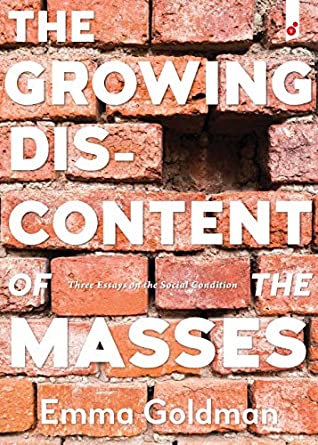
Over a century after her heyday, Emma Goldman is newly relevant again. The urgency with which Goldman wrote about worker rights, about income inequality, and about the growing chaos in the world has again acquired a contemporary feel. Seattle publisher Vertvolta Press recently reissued three of her essays in an attractive little book titled The Growing Discontent of the Masses, and you could swear some pieces of this book were written last week.
It must be said that not all of Goldman's writing has aged well. There's a bit about "perversion" between same-sex couples in the military that reads particularly badly, and Goldman makes references to a few controversies of her day that have lost all meaning in the modern context. But most of the book has a startling relevance, and Goldman is surprisingly nuanced for such a persuasive writer.
I particularly loved this passage:
"What I believe" is a process rather than a finality. Finalities are for gods and governments, not for the human intellect...In the battle for freedom, as Ibsen has so well pointed out, it is the *struggle* for, not so much the attainment of, liberty, that develops all that is the strongest, sturdiest, and finest in human character.
At a time when "the very foundations of our civilization seem to be tottering," as Goldman says, "The world is at a loss for a way out." Can Goldman's idealistic anarchism find more purchase today than it did in the past? Seems unlikely. But then, who else has a better answer?
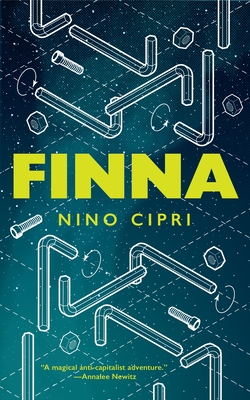
At a time when retail workers are risking their lives for minimum wage, Nino Cipri's clever sci-fi novella Finna has also found new relevance. It's the story of two entry-level employees at an IKEA-like store who must travel into alternate dimensions in order to find an elderly woman who got lost somewhere amid all the furniture displays.
You know the creeping sensation when you walk into a huge chain store that every big box store is somehow connected on the inside? Finna approaches that idea with a horrifyingly casual sensibility and stretches it across the multiverse: even in Lovecraftian nightmare dimensions, IKEAs exist. And that pandimensional tumult serves as an external interpretation of the internal struggle of our protagonist, who has just ended a relationship and is trying to navigate to smoother waters.
Cipri is clever enough not to try to stretch the high concept into a whole sci-fi series. She doesn't milk the idea for any longer than it's worth: get in, tell the story, and get out. It's just a glimpse of possibility, without oversharing. In this day and age of prequels and backstories and multi-platform franchises, it's practically a miracle.
Road Runner Chapter 39: If you’re gonna be dumb, you gotta be tough
April 27, 2020, at 11am
"The tattoo takes three days. It takes so long because it hurts. I shriek when she sticks me for the first time."
Your Week in Streaming: Three great literary events to attend on your computer this week
Monday, April 27: Giving the Devil His Due Reading
"In a full-throated defense of free speech," the copy for this event reads, "[Michael] Shermer contends that we cannot condone the censorship of ideas we find disagreeable or offensive without inviting the possibility for the censorship of ourselves." Hopefully host Steve Scher will ask about the paradox of tolerance.
https://townhallseattle.org/event/michael-shermer-with-steve-scher-podcast/

Tuesday, April 28: Attention: A Love Story
Casey Schwartz's memoir is about her relationship with drugs that were prescribed to manage her attention span.
https://townhallseattle.org/event/casey-schwartz-2020/
Wednesday, April 29: The End of Ice
Dahr Jamail's latest book examines the impacts of climate change on the world, from disappearing ice to dying coral reefs. https://townhallseattle.org/event/dahr-jamail-the-end-of-ice-livestream/
Road Runner Chapter 38: The difference between gardens and farms, it seems, is death
April 26, 2020, at 11am
"I get so excited that for a moment, I forget how hungry I am. But my stomach does not forget. It painfully twists and growls, demanding its meager portion of stale bread. Peaches hands me the slice. Passing it back and forth, ripping off a tiny crumb, pressing the crumb to the roof of my mouth with my tongue and letting it melt away, it reminds me of home. It reminds me of meals with Peasant: totally unsatisfying, wholly shared."
Road Runner Chapter 37: A match made in hell
April 25, 2020, at 11am
"Peaches is gone five hours or maybe 30 minutes. I would’ve thought being raised in confinement would’ve prepared me better for this, but no. Time is boiled down to nothing here in prison-bone soup. Sure, you know it’s still there – shadows inch across the floor – but putting your arms around an hour is impossible. Seconds are ok. Anyone can count to 10 or 60, but try doing that again and again and again. There is no nuance in prison."
The Help Desk: Sanitize your books
Every Friday, Cienna Madrid offers solutions to life’s most vexing literary problems. Do you need a book recommendation to send your worst cousin on her birthday? Is it okay to read erotica on public transit? Cienna can help. Send your questions to advice@seattlereviewofbooks.com. Cienna is disenfecting her Zoom backgrounds this week, so this is a repeat column from 2016.
Dear Cienna,
Every once in a while I’ll visit someone’s house and see that they have a book, or a basket full of books, on the back of their toilet. I guess this is supposed to be hospitable or something, but all I can think about is how poo-encrusted those books must be.
I’m tempted to steal one of the books from a friend’s house during a party, put it under a microscope, and then mail a photograph of the fecal matter particles to my friends anonymously. But that would be too passive-aggressive, even for Seattle.
But it is disgusting, right?
Colin, First Hill
Dear Colin,
Please don’t stop with one book. Also take samples of your host’s toothbrush, decorative soaps, air plants, privacy blinds – everything in the bathroom that isn’t nailed down. And don’t stop with one friend – repeat this process at multiple friends’ homes. Then, in the name of fairness, I need you to stare straight into the brown eye of the beast and fecal test yourself, Colin – hands, neck, lips, fleshy pad of the buttocks. This will add credibility to what those in the unscientific community might call your “pervert games.”
And you’re right: Mailing your findings is passive aggressive – and no fun! You want to be present, watching your friends’ faces as they realize how you’ve chosen to amuse yourself while an invited guest in their homes. Here is what you do to deliver those results with style: Host a Halloween party. Dress up as a proctologist. Hand deliver results to your guests, in ascending order of least- to most fecally. To offset the creepiness of your actions, give out full body condoms, DIY fecal testing kits and jars of artisanal bleach as prizes.
Kisses,
Cienna
Road Runner Chapter 36: How to make friends and influence people
April 24, 2020, at 11am
"My new roommate has the face of a rotting peach. Her eyes are bruised and sunken, head sheared close to her skull, round cheeks, and she’s missing teeth. I don’t know how many hours I’ve been here, sitting on the cold cement floor of our cell, clutching the book and staring at the hated wooden leg. I don’t have the energy to fight but I do it anyway."
The Portrait Gallery: the manual typewriter
Each week, Christine Larsen creates a new portrait of an author for us. Have any favorites you’d love to see immortalized? Let us know, or see if you can find them in the archives.
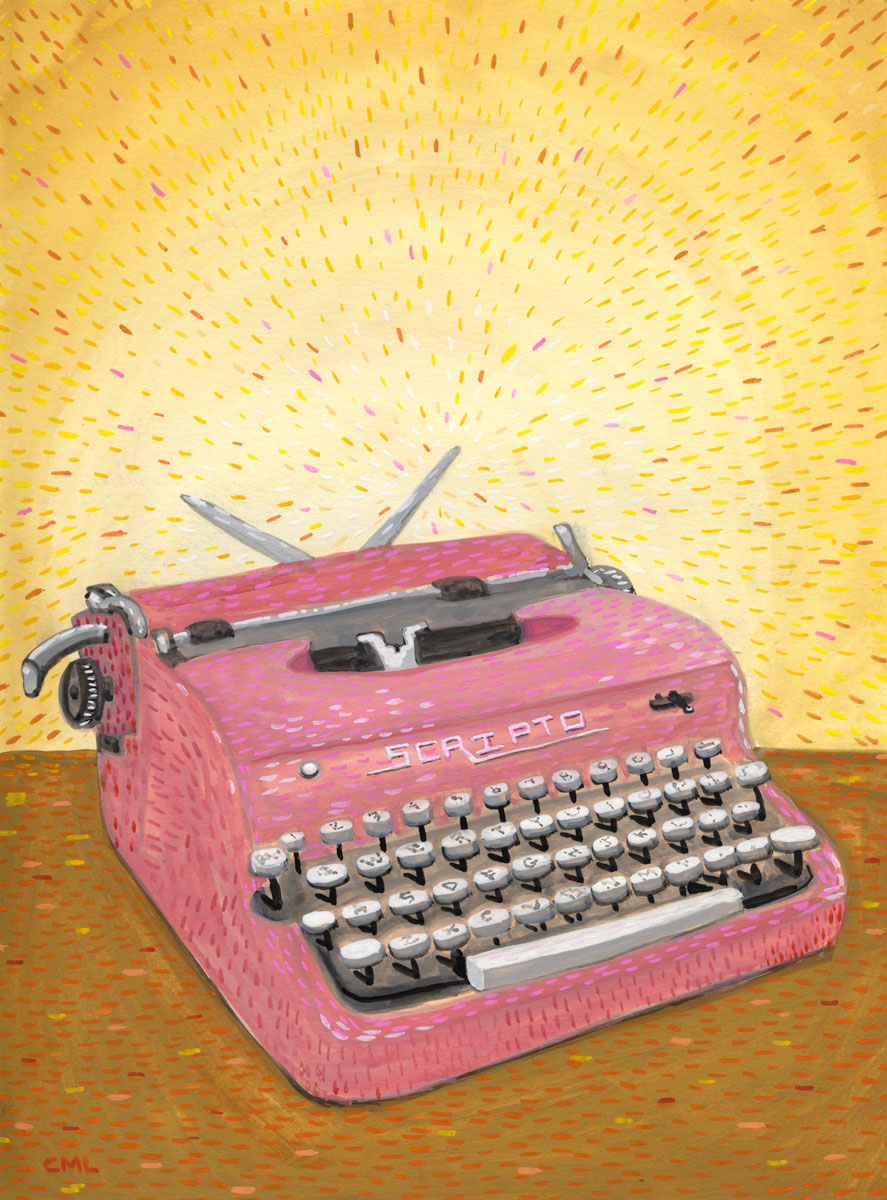
Maybe it is time to break out the manual typewriter again...?
Criminal Fiction: April glowers
Every month, Daneet Steffens uncovers the latest goings on in mystery, suspense, and crime fiction. See previous columns on the Criminal Fiction archive page
Reading around: new titles on the crime fiction scene
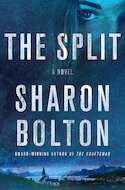
Over a months-long time period, glaciologist Felicity Lloyd has been having odd blackouts, losing hours at a time: the primary reason appears to be her fear of her abusive husband coming after her. When she manages to obtain a career-changing job that will take her to halfway around the globe to Antarctica, she grabs it with both mittened hands. But the therapist she’s been seeing in Cambridge, Joe Grant, is uncovering and solving a few mysteries of his own when it comes to Felicity, and the parallel plotlines soon converge into a satisfying double helix that thriller author Sharon Bolton excels at. The Split (Minotaur), her latest foray into dark psychological territory edged with a taut police procedural, delivers some of Bolton’s best chills so far – and that’s really saying something.
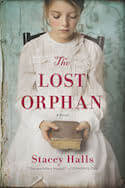
The Lost Orphan (Mira), Stacey Halls’ follow-up to 2019’s mesmerizing The Familiars places us firmly in Georgian London, with its richer-than-rich Mayfair residents as well as those urban dwellers inhabiting the direst of slums. In the first pages, Bess Bright approaches the city’s Foundling Hospital with her new-born daughter: as a market shrimp-seller, Bess simply doesn’t have the means to support the child. Six years later, Bess returns to the hospital with her savings, determined to bring her daughter home. In the first of multiple twists in this wily tale, Bess is informed that her daughter has already been claimed by someone using Bess’ name. Halls’ sophomore effort, a properly Gothic thriller with deliciously dark deceptions at its heart, thrums to life with her eloquently wrought details of London life – from its demure, oppressive drawing rooms to the labyrinthian East End streets and sinuous Thames – while evoking shiver-inducing shades of Wilkie Collins’ The Woman in White and Sarah Waters’ Fingersmith.
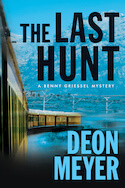
In The Last Hunt by Deon Meyer (Atlantic; translated by K.L. Seegers), Captain Benny Griessel of the elite Hawks police unit and his partner Vaughn Cupido investigate murder most foul tied to a train: it’s murder on the South African Rovos Express. Meanwhile, in France, a former freedom fighter is pulled unceremoniously back into a struggle he’d considered part of his past. Meyer deftly unites these two strands while interrogating contemporary South Africa politics, European history and architecture, and crimes most foul – all the while sprinkling engaging pop-culture references such as Harry Potter, Dr Seuss, and Australian crime-fiction giant Peter Temple into his narrative – weaving a finely tuned page-spinner that’s an absolute pleasure to read.
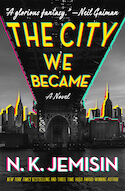
New York City is the multi-faceted protagonist in hair-raisingly wonderful The City We Became by N.K. Jemisin (Orbit). Cities have souls, is the speculative premise in this compelling and adventurous novel, and the Big Apple, the most fabulous of them all, boasts no fewer than one soul per borough, fiercely and artfully possessed by an arts administrator, a public-library employee, a former white-collar man, a mathematical whiz, and a rapper-turned-city-councilwoman. Together, they must pit themselves against a creepy virus-spreader, a Woman in White who is scarily reminiscent of Narnia’s White Witch as well as channelling the ugly specter of white supremacism. Contemporary fireworks explode and historical sparks fly in Jemisin’s superb literary symphony of flawed superheroes finding each other and discovering their collective – and urgently necessary – power.
The Quintessential Interview: Jennifer Hillier
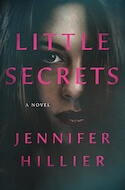
Already having established herself as a veritable queen of creepy thrillers – 2018’s Jar of Hearts is a case in point – with Little Secrets (Minotaur), Jennifer Hillier firmly retains that crown. Marin Machado is browsing in a festive pre-Christmas Pike Place Market with her four-year-old son, Sebastian, negotiating the option of a lollipop for good behaviour, when every parent’s worst nightmare comes to pass: while Marin is engaged in a texting exchange on her phone, Sebastian vanishes. Per the security camera footage, someone dressed as Santa Claus left the premises with the boy, but 16 months later, the case is still wide open. Marin, already down a depressed and overwhelmed rabbit hole, has hired a private investigator to pursue the case. But when the PI brings her evidence that Marin’s husband, Derek, is having an affair, Marin’s razor-sharp focus on finding out what happened to her son turns in a new, dangerously obsessive direction.
What or who are your top five writing inspirations?
Paul Bernardo and Karla Homolka (a Canadian serial killer who's in prison for life, and the wife who helped him, who's now out of prison), who inspired two books of mine so far (Creep and Jar of Hearts). Seattle, where I lived for eight years. Therapy, where I explore all my childhood traumas. The shower, where I seem to solve all my plot problems. And the movie Se7en, because the story never fails to both impress and horrify me.
Top five places to write?
The living room sofa, the backyard deck, the bedroom, the dining room table, and my office. You probably wouldn't think I even had a home office with those first four, but I feel claustrophobic in it, so I only write in there if I absolutely have to.
Top five favorite authors?
This is the hardest question – how to choose only five? I'll do it really fast. Off the top of my head: Stephen King, Riley Sager, Meg Gardiner, Chevy Stevens, and Alafair Burke.
Top five tunes to write to?
I can't write while listening to music, but I'll play music in between bursts of writing. The songs that are always on my playlists are "Creep" by Radiohead, "Moonlight Sonata" by Beethoven, "Black Hole Sun" by Soundgarden, "Bobcaygeon" by The Tragically Hip, and "Air on the G String" by Bach.
Top five hometown spots?
Kerry Park in Queen Anne, which has the best view of the city, and is the very last place my husband and I visited before we moved back to Canada. Un Bien on 15th Ave, which makes the greatest sandwiches I've ever had. Golden Age Collectables, a store on the lower level of Pike Place Market that brings me right back to my childhood. CenturyLink Field during a Seahawks game (oh how I miss the roar of the 12s and the taste of garlic fries). And Occidental Square, where, after leaving a Guns N' Roses concert early to get home to the babysitter, we heard Slash playing the opening to "Sweet Child O' Mine" from three blocks away. That guitar solo soared as high as the sky, and I will never forget how it sounded.
Road Runner Chapter 35: When prison is your future
April 23, 2020, at 11am
"A prison bus is waiting to pick us up in the courtyard. It’s a faded yellow school bus with bars on the windows and the word 'Wrightgate Prison' stenciled into the side. In the coming days I will think about the life of that bus, how its intent was transformed from 'we believe in your future' to 'we believe you have no future.'"
Thursday Comics Hangover: Two comics we love this month
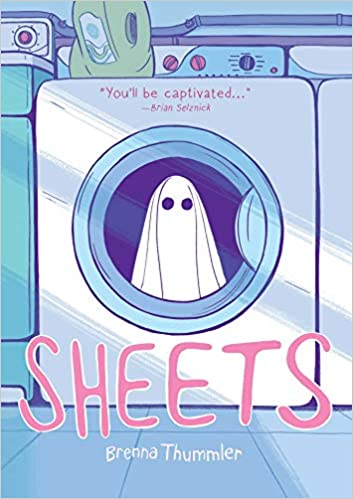
When I read (and loved) the YA comics adaptation of Anne of Green Gables a couple months back, I was excited to learn that the artist, Brenna Thummler, had written and drawn an original YA graphic novel of her own. It's called Sheets, and it was published in 2018.
The protagonist of Sheets, a 13-year-old girl named Marjorie Glatt, is struggling with some big issues. "It's difficult to list, in order, the things I hate," she tells the reader on the first page, "But I can say with no uncertainty that laundry and ghosts are currently tied for first."
Marjorie's mom passed away a short time before the story begins, and her father is struggling with depression, leaving her to manage the family laundromat. The business is falling apart, and Marjorie doesn't have time to process the changes in her life. Meanwhile, some ghosts — represented traditionally, as empty sheets with two eyeholes cut out — are taking up residence in the laundromat, complicating the situation even further.
Thummler is a phenomenal cartoonist. Her work in Sheets is busier, more claustrophobic than the wide-open spaces of her work in Green Gables. At times, the pages feel almost thick with wrinkles, like mishandled laundry. Characters invade Marjorie's personal space — and so do we, as the panels cling tightly to her face as she wonders what she's going to do. We can't help but hover anxiously around Marjorie. We want the best for her.
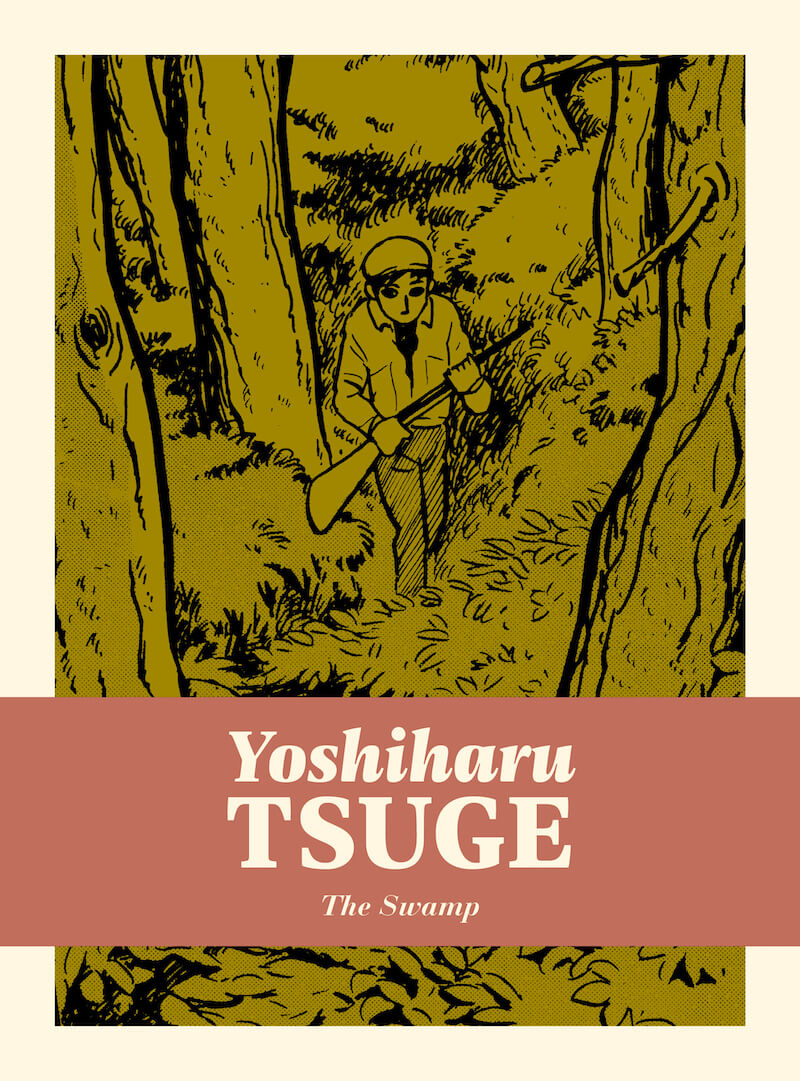
I read an advance preview copy of Yoshiharu Tsuge's The Swamp, a collection of short stories by a 20th century manga master published this month by Drawn & Quarterly. The Swamp is intended to be the first in a series of Tsuge volumes from the Canadian comics publisher, and it's easy to see why he deserves the deluxe treatment.
The short stories in The Swamp are of high literary quality. These are quiet vignettes about seemingly banal encounters, but Tsuge excels at sketching out characters that have just a hint of desperation sweating underneath. Though many of the stories are set in samurai times, Tsuge's themes and interests are universal. In fact, if Raymond Carver made manga, the comics might resemble something like The Swamp.
The small men at the centers of these stories are all broken in beautiful ways. "The Phony Warrior," the story that opens the volume, is about a notorious traveler whose ego has grown so large that it's consumed everything around him. "An Unusual Painting" finds a hotheaded young man becoming absorbed with a hermit's weird artwork. A couple's growing unease with each other becomes laser-focused on an innocent little bird with queasy consequences in "Chirpy."
The stories in The Swamp are laid out in traditional manga-style, meaning the book is to be read back to front, and each page is read right to left. But Tsuge's characters don't resemble the characters of, say, Akira as much as they do the Muppets: they have button eyes and expressive eyebrows, and their body language is broad and relatable. It all has the feel of a puppet show for adults: entertaining, a little bit weird, with a naughty undertone to the whole exercise.
Road Runner Chapter 34: How to graciously accept an apology
April 22, 2020, at 11am
"I follow Nicole’s advice, kind of. I don’t practice what I’m going to say to Zelda but I do wait for a good time to say it – egg night, when we condition our hair together. We’re both in a pretty good mood on egg night."
Seattle poet Susan Rich's work was pulled from an online festival for being "offensive." She's not keeping quiet about it.
Seattle poet Susan Rich was overjoyed when her poem "Pregnant with the Dead" was selected for inclusion in the Visible Poetry Project (VPP), which "partners thirty filmmakers with thirty poets to create visual interpretations of original and classic poems" over the course of National Poetry Month.
Filmmaker Tova Beck-Friedman selected Rich's poem to adapt into a short film. "Given that this poem is meant to honor my ancestors and its subject is intergenerational haunting, I was especially thrilled," Rich wrote.
Every relationship between poet and filmmaker at VPP is different, but Beck-Friedman and Rich collaborated on the video in a way that accentuated their strengths. Rich recorded a reading of her poem at Seattle's Jack Straw Cultural Center for use in the film. "I was happy to do the voice over of the poem but beyond that I felt this was [Beck-Friedman's] film," Rich told me over email yesterday.
In one of their early conversations, Beck-Friedman had the idea of presenting the poem alongside archival footage of the Holocaust. The concept of recording a dancer to interpret the poem also came up. "During the call (from what I can remember) one of us came up with the idea of creating an interplay of the archival footage with a dancer," Rich explained.
VPP pairs each film with a producer, and in her open letter Rich says that during production the assigned producer, Mia Shelton, said that "the interplay of dancer and archival footage was very effective."
But the night before National Poetry Month began, Rich got an email from Sofia Bannister, the managing director of VPP, advising her that VPP would not be playing "Pregnant with the Dead" after all, and that they were planning to "hold onto [the] film until a later date." The email said this decision was made as a "response to the COVID-19 pandemic...in an effort to bring the community of Visible Poetry Project together during this time of crisis."
Rich pushed back in an email, and was told in response that the film "did not fit [VPP's] programming needs." After Rich questioned further, Bannister replied that "the board feels uncomfortable releasing a film which trivializes the gravity of your poem." Finally, in the fourth such exchange according to Rich, VPP admitted that the board had "concerns about the overlay of the dancer being detrimental to the gravity of the piece." VPP contacted "a professor whose doctoral studies were in Holocaust cinema" who "expressed extreme discomfort with the piece."
Finally, the board concluded:
...in an assembly of six people, three of whom have ancestral legacy with the Holocaust, all six found the video offensive, we determined that ratio would likely be reflected in the general audience as well.
According to Rich, VPP "described the dancer as 'gyrating,' which implies a sensual movement, but there are no gyrating movements in the piece." Rich says that even with this justification from the board, their conclusions are "a mystery" to her.
VPP appears to be well within their rights to not host "Pregnant with the Dead." It's their festival, after all. Of course, it would have been easier for everyone involved if they had noted any concerns during the filmmaking process. And it seems downright unethical to vaguely blame the pulling of the film on coronavirus when that appears to have nothing to do with the actual reasoning behind the decision.
But it's not reasonable anymore, after the 2016 election and its resultant online chaos, to be a free speech absolutist. There are plenty of good reasons to not display a piece of art or host someone else's free speech. Just because it's technically legal to espouse neo-Nazi views in a public space, for example, it is our duty as members of a responsible society to discourage that speech. Likewise, I'd hope that any worthwhile comedy venue or broadcasting platform would not air racist, sexist, or homophobic "comedy" that wraps hate speech in the clothing of a more demure standup routine. Subtext and intent carry meanings that are just as valid and important as the strict reading of a work.
With all that said, "Pregnant with the Dead" doesn't strike me as a work that's intended to offend, nor does its text or subtext come across as glib or diminishing. The dancer is clearly interpreting grief and emotional pain. You can question the efficacy of the communication all you want — that's what criticism is all about — but I don't think you can reasonably conclude that Rich or Beck-Friedman were attempting to make light of the Holocaust with this work.
Ultimately, if VPP wanted to keep audiences from watching "Pregnant with the Dead," they failed miserably. Rich has been very open about her experience with the organization, and she's encouraged people to watch the film on YouTube. Here it is, so you can decide for yourself:
And in recent days, Beck-Friedman and Rich have learned that a well-known European curator has accepted "Pregnant with the Dead" for an online film festival this summer. In the end, the film will be seen by many more people as a direct result of VPP's actions to stifle it.
Road Runner Chapter 33: Seriously, what would Jesus do?
April 21, 2020, at 11am
"The trains are rolling in today and tomorrow. All the cadets are returning to base after idyllic holidays eating turkey and cranberries off of craps tables, or whatever it is they do. Our attack is the big news greeting them. They show up at my door, a constant line of drive-by gossips who want to 'see if I’m ok' and 'by the way, how is FL Stewart?' Someone spread the word that I saw him without his helmet, even though I didn’t really. I didn’t tell anyone about that except the superiors – not even Zelda. "
Coronavirus poem 2: upaya
we have loved
each other long
enoughthat what I don’t say still
echoes in the mind,
I am so boredof raising facts:
stabbings, assaults,
my husband knowsbetter than to tell
me what to do, speaks
his care so thatI don’t have to eat
my fear of going alone
to the grocery storeI have choices like
that day one month ago
when I asked my sonto please stop
telling people
you are Chinese
Road Runner Chapter 32: We had a good run, didn’t we?
April 20, 2020, at 11am
"I sense we’re running away from the center of town. I feel eyes on us but who knows if they’re animal or human and really, who cares? Perhaps they catch a glint of light off of FL Stewart’s helmet or my cyborg leg, or the dull glow of our comms bracelets. Perhaps they fear us. In the harsh light of day, that thought would make me sad. At night, it makes me feel powerful. "
Your Week in Streamings: The best literary events online from April 20th - April 26th
Monday April 20th: Protecting Consumers to Defend Democracy
Richard Cordray, former Director of Elizabeth Warren's Consumer Finance Protection Bureau, reads from his book Watchdog: How Protecting Consumers Can Save Our Families, Our Economy, and Our Democracy and takes your questions.
Produced by Town Hall Seattle, 7:30 pm.
Tuesday, April 21st: The Truth About America’s ‘Deep State’
David Rodhe discusses his book In Deep: The FBI, the CIA, and the Truth about America’s “Deep State" with Steve Scher.
Produced by Town Hall Seattle, 6 pm.
Wednesday, April 22nd: Climate Change And Farmland
"To celebrate the 50th anniversary of Earth Day, PCC Farmland Trust presents national bestselling authors and mother-daughter duo Frances Moore Lappé and Anna Lappé, who bring a multi-generational perspective on the environment, the climate crisis, and our food system."
Produced by Town Hall Seattle, 7:30 pm.
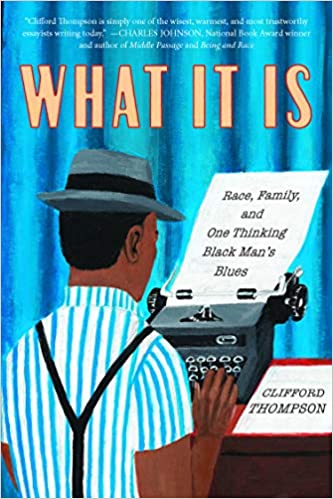
Thursday, April 23rd: Race, Family, and One Thinking Black Man’s Blues
Whiting Writers Award-winner Clifford Thompson talks about his new book What It Is: Race, Family, and One Thinking Black Man’s Blues, an autobiographical account of race in an America that elected Donald Trump as president.
Road Runner Chapter 31: We must cultivate our own garden
April 19, 2020, at 11am
"It’s Thanksgiving week and the base is deserted. Most of the officers have gone to wherever home is and all of the cadets with families also got permission to leave for the holiday, so everyone who’s left is a lot like me: unmoored. It makes the tenor on campus different. The cadets who are left have a kinder vibe to them. Less aggressive. It’s a reminder that even though we’re trained to work together, we’re competing to stay here."
Road Runner Chapter 30: When lying feels like a poison you feed yourself
April 18, 2020, at 11am
"Over the course of the next two days, Rodney’s lies become my lies as I repeat his story to a parade of officials. It’s only when I can’t remember a lie that I tell the truth: “I can’t remember.”"
The Help Desk: A more perfect union
Every Friday, Cienna Madrid offers solutions to life’s most vexing literary problems. Do you need a book recommendation to send your worst cousin on her birthday? Is it okay to read erotica on public transit? Cienna can help. Send your questions to advice@seattlereviewofbooks.com.
Dear Cienna,
My fellow booksellers are trying to unionize. I just don't know if it's worth the time and trouble, when independent bookselling is such a low-paying job. It's not like Powell's employees are driving around in Rolls Royces, and they've been unionized for a couple of decades.
I get the importance of unions in general; my uncle works at a grocery store and he says the union has been great for him. But for a low-margin business like bookselling, it seems like this is just going to be a big timesuck that actually doesn't improve our workplace conditions. Should I vote to unionize, even if I don't think it will help? I don't want to let my coworkers down.
Lawrence
[Neighborhood withheld to reserve anonymity]
Dear Lawrence,
Yes, you should vote to unionize. Unions aren't perfect but show me a governing or organizing body that is. Life is bleak right now, give your coworkers a win.
That's why this year, I let Beatrix eat the Easter Bunny. (I know she's an alligator but she's still my daughter. And at her age, believing in the Easter Bunny is a bit pathetic. Don't worry, we gave him a good send off – I stuffed him full of chocolate and into a little velveteen vest first.)
Be skeptical but optimistic, engage in the process, and maybe it'll surprise you. We sure as hell surprised that bunny.
Kisses,
Cienna
Road Runner Chapter 29: In the military, karma is called ‘tactical retaliation’
April 17, 2020, at 11am
"'Hey Legs,' Rodney greets me for our morning run. I have prepared for this moment but my knees are still shaking a little."
The Portrait Gallery: Shelfsies
Each week, Christine Marie Larsen creates a new portrait of an author for us. Have any favorites you’d love to see immortalized? Let us know
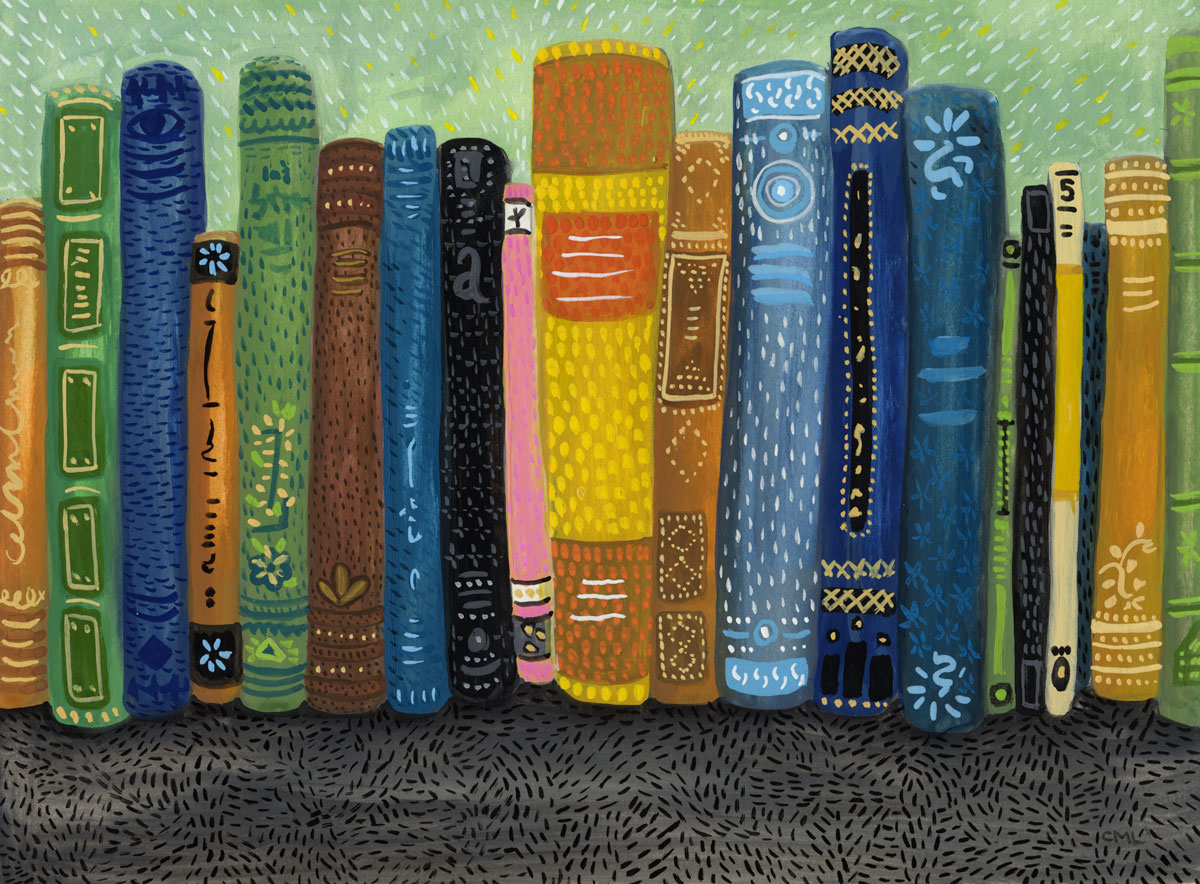
Have you spent some times really looking at your shelves, lately? Maybe at that book you were sure you wanted to read, but aren't ready for? Maybe you've alphabetized, or arranged them by color, or by genre? Maybe you've rediscovered some old favorites?
If you haven't looked yet, maybe now is the time.
Pick your favorite shelf. Let's make #shelfsies a thing — post your collection on Twitter or Instagram and tag us. Tell us what you're reading, and what inspires you about the books there.
Eating in quarantine with Samin Nosrat
(Once in a while, we take a new(ish) book out to lunch and give it half an hour or so to grab our attention. Lunch Date is our comment on that speed-dating experience.
Who's your date today?
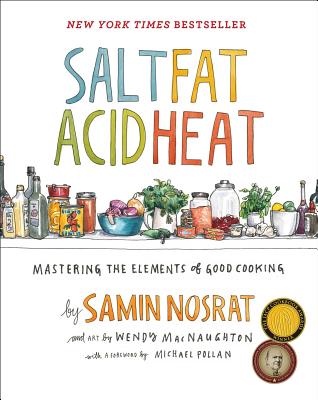
Salt Fat Acid Heat: Mastering the Elements of Good Cooking, by Samin Nosrat. One-time chef at Chez Panisse, food writer and food champion, Nosrat approaches cooking (and eating) with an enjoyment and humor reminiscent of the impossibly joyful Julia Child. Nosrat is beloved for her essays, cookbook, and television show, and the "pandemic cooking" podcast she co-hosts with Hrishikesh Hirway is firm ground in a hurricane of crazy.
Salt Fat Acid Heat is a book about cooking and a cookbook both. The first 200 pages (just about) are a master course in simple cookery based on the four elements in the title, dotted with brilliantly useful watercolored sketches — for example, a swash of green that helps visualize the acidity of a long list of ingredients. The second half is a selection of recipes that are good both for dinner and for practical experimentation
Where'd you go?
To the kitchen! Because, well, that's almost the only option right now. (Though you should get takeout from your favorite local restaurant, and we often do — thank you, Seattle restaurants for continuing to feed us all).
I am a reluctant and ham-handed cook, terrified of the words "to taste" and allergic to recipes with more than six ingredients. My favorite recipes include only one ingredient, which is "frozen pizza." However, like many people right now, I've been backed into the stove by the "shelter in place" order, and I'm enjoying that specific flavor of guilt that comes from being miserable at one's good fortune in having food to eat and a home to eat it in.
What'd you eat?
I made Nosrat's receipt for pasta with broccoli and breadcrumbs, because I loathe broccoli and it was a natural way to exorcise (or exercise) self-loathing. Nine ingredients total; subtract difficulty points for olive oil, red pepper flakes, and salt, but add points for "sprinkling crumbs," which are an entirely separate recipe hidden within the recipe. Cheaters never prosper, Nosrat.
How was the food?
Surprisingly, edible. Surprisingly edible! The flavor of the broccoli is softened by the longish cooking time, and the texture — all those unbearable little pebbles of broccoli! — is smoothed out as well. And, in truth, once you coat anything with enough parmesan and breadcrumbs, it's basically pizza, isn't it?
What does your date say about itself? From the publisher's promotional copy:
In the tradition of The Joy of Cooking and How to Cook Everything comes Salt, Fat, Acid, Heat, an ambitious new approach to cooking by a major new culinary voice. Chef and writer Samin Nosrat has taught everyone from professional chefs to middle school kids to author Michael Pollan to cook using her revolutionary, yet simple, philosophy. Master the use of just four elements—Salt, which enhances flavor; Fat, which delivers flavor and generates texture; Acid, which balances flavor; and Heat, which ultimately determines the texture of food—and anything you cook will be delicious. By explaining the hows and whys of good cooking, Salt, Fat, Acid, Heat will teach and inspire a new generation of cooks how to confidently make better decisions in the kitchen and cook delicious meals with any ingredients, anywhere, at any time.
Is there a representative quote?
Here's one that very much represents Nosrat's approach to food, which is hands-on and unpretentious in the extreme:
Get rid of the shaker, dump the salt in the bowl, and start using your fingers to season your food. You should be able to fit all five fingers into your salt bowl and easily grab a palmful of salt. This important — but often unsaid — rule of good cooking is so routine for professional cooks that when working in an unfamiliar kitchen, we instinctively hunt for containers to use as salt bowls. When pressed, I've ever used coconut shells.
Will you two end up in bed together?
We will definitely have lunch together again, and dinner, many times. It's hard to pinpoint why Nosrat's approach is so ... approachable. It helps that she's a presence, with an unabashed laugh that's accessible across media. It helps that what she's teaching is how to taste, as much as how to cook, and how to taste is one of the scariest bits of cooking for all religious recipe-followers.
And this really is a moment for a book like this and a cook like Samin Nosrat. Food is surrounded by fear right now; fear of shortage, fear of contagion, fear that the world will never change back. Nosrat tells us that even if everything isn't okay, we can change in ways that aren't fearful. Something we need to hear.
Road Runner Chapter 28: One person’s slur is another’s endearment
April 16, 2020, at 11am
"I watched a girl your age get tased in the street. We’re trained to use tasers as a de-escalation tactic when confronted with two or fewer suspicious individuals (more than that and we tear gas them). But after seeing it, I don’t really understand how it can be considered a de-escalation tactic. It was brutal. I still sweat when I think about it."
Thursday Comics Hangover: The latest arrivals on digital comics racks
We're now on our fourth week without new comics being distributed to comics shops around the world. That doesn't mean that new comics aren't being made — it seems like we'll be seeing some announcements from major creators about independent quarantine-produced comics sometime soon — but it does mean that New Comic Wednesday is no longer really a thing, for now.
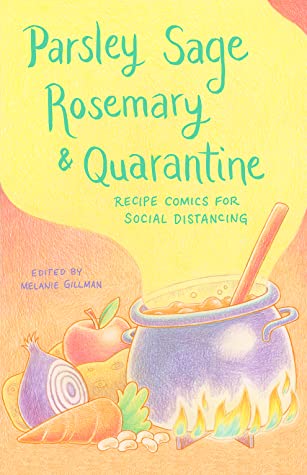
But the digital distribution of comics is still happening. And there's a brand-new comic that 21 creators are selling to keep their heads above water. Parsley Sage Rosemary & Quarantine: Recipe Comics for Social Distancing is a cookbook collecting 21 cartoonists' favorite recipes in comic form. Full-color PDF copies are for sale on Gumroad right now on a name-your-price basis.
Edited by Melanie Gillman, Parsley features contributions from cartoonists including Priya Huq, Shing Yin Khor, Shan Murphy, Sarah W. Searle, and Steenz. The recipes range from fried chicken to dal to frijoles negros, and the cartooning style ranges from primitive to highly stylized. It's a great way to sample a wide array of young comics professionals and figure out how to navigate new paths through the tired food in your pantry. My favorites include the recipe for rice buns, illustrated in a swoopy, classic magazine illustration style by Megan Rose Gedris and Mel Gillman's "extremely customizable" recipe for beer bread, which is crisply illustrated enough to serve as a full-back tattoo.

Another new book from high-profile creators had a surprise release yesterday, though it's been in the works since before COVID-19 was even a thing. Panel Syndicate, the pay-as-you-go creator-owned comics hub, released Friday, the first issue of a supernatural mystery comic written by Ed Brubaker, illustrated by Marcos Martin, and colored by Muntsa Vicente.
Martin is one of the most kinetic artists in the field, and he's known for his elegant, simple renderings. With Friday, he's adding some complexity, and it is gorgeous — Edward Gorey is listed as an influence, and that seems head-smackingly obvious when you stare at the spooky forests and melancholy towns in the background of the book.
Brubaker has unfortunately labeled Friday as a "post-YA' comic. I'm not entirely clear what that means — Brubaker cites a number of books for kids and teens as inspiration for the book, and while *Friday certainly falls on the darker side of the spectrum, I don't see anything that I wouldn't hand over to a literate and goth-friendly mature teen reader. If anything, the "post-YA" title, which Brubaker admits in a note in the end of the book, is "just A" when taken literally, feels like Brubaker is just slightly embarrassed about working with children's entertainment.
But whatever you label it, Friday is an interesting first issue with interesting lead characters, it's as gorgeously drawn as the best of Martin's work, and it seems to be heading in some weird directions. Even if today were a normal New Comic Book Day with the usual available options, Friday would most definitely be a standout title — and likely the best book of the week.
Sign a petition to make bookselling essential work in Washington state
Seattle City of Literature is asking Washington residents to petition Governor Inslee to reclassify booksellers as essential employees. Here's the most important part of their rationale:
I just sent a letter to the governor asking him to classify bookstores as essential businesses during this crisis. This would give bookstores the opportunity—if they feel comfortable doing so—to support their communities with adapted business models, including curbside pick-ups and deliveries, virtual story times, online book groups, and more.
That "if they feel comfortable" is the most important piece. If booksellers can safely make a living right now, they should be able to. But they should also be able to accept unemployment if they'd rather not put themselves or their families at risk. If you agree, sign the petition.
Road Runner Chapter 27: Only the guilty run from heroes
April 15, 2020, at 11am
"They have a term for the work Rodney has me doing: it’s called a Rodney Favor. Nicole, who was raised on base so basically knows everyone, tells me that’s what the other Year Twos call it. In fact, it’s become an inside joke/insult: Rodney Favors are tasks you could just as easily do yourself."
New Hire: Bump elbows with Jez Burrows, a writer who moved to Seattle just days before the coronavirus lockdown
Way back in 2018, Seattle Review of Books co-founder Martin McClellan reviewed Jez Burrows's ambitious book of semi-found flash fiction, Dictionary Stories, praising Burrows for possessing "a mind that is always searching, always creative, always looking for an amusement or game." At the time, Burrows lived in San Francisco, but just last month, he moved to Seattle. As part of our ongoing New Hire series, which interviews new literary figures on their arrival in the Seattle area, I talked with Burrows on the phone last week. It was a weird time to move to the city, what with the whole global pandemic and all, but I found Burrows to be a charming and engaged conversationalist. What follows is an edited transcript of our conversation.
Thanks for making the time to talk. We do a regular interview feature here called New Hire where we talk to writers who've just moved to Seattle about their expectations and hopes. Obviously we've never done one under these circumstances, with the city under lockdown from coronavirus. So-
That was about to be my first question, if you had talked to anybody since everything has happened.
No, this is the first. I guess up top I would just like to ask where you're coming from, and why you moved to Seattle?
Sure. So, immediately I'm coming from San Francisco, which is where I've been for the past eight-ish years. But, as you can probably tell from the accent, I'm not necessarily a local. Before San Francisco I was in Edinburgh, Scotland and I'm originally from Devon in the southwest of England. But San Francisco was the one American city that I've spent my entire time in the US up until now, so Seattle is city number two.
I've figured out that I really like the west coast in general, and from the very first time that I visited Seattle — and I visited a lot over the years that I've lived in the US — when I stepped off the plane, I remember distinctly thinking, "Oh, this is British weather. This is what British weather feels like. This is very comfortable." There was something very environmental that spoke to me.
It just seemed like it was a welcoming place with some welcoming people. And I was also just very ready for a change from San Francisco in general.
When did you officially move here?
I got here on March 5th, so I think I had at least maybe five days of blissful — not ignorance because things were happening — but I was at least out in the world and shaking hands. Or there were a few [bumping] elbows [as a greeting] at that point; it was at a point where the elbow thing still felt a bit absurd, and now I feel vindicated. I think I had about five days of freedom and then straight into lockdown.
Are there any resources in Seattle, as a writer, that you're hoping to enjoy, if they ever reopen?
I had applied for residency at the Writer's Room at the Central Public Library, because [Seattle Review of Books co-founder] Martin [McClellan] had told me about it and suggested that it would be a good fit. I think I applied maybe five days before the public library system shut down.
And Hugo House as well. Every time I've glanced at their syllabus for past classes that they've done, or upcoming classes that they were going to do, I was always really struck by the breadth of what was going on and the people who were coming in to speak and to teach. So hopefully at some point in the future if and when they reopen, those are the two things I'd be very excited to finally gain access to.
So what sort of writing projects are you working on now?
The plan, before everything, was to start something as soon as I had moved. The project that I pitched to the Central Library, is kind of a story about a sectional group of artists, but it is told entirely through the sort of didactics and the wall texts from the museums where their art would have been displayed.
Okay.
It's sort of about curation, and I'm just really interested in groups of artists in general. I saw this fantastic retrospective of the Bauhaus at the Barbican when I was in London several years ago and I was really struck by it. I've seen a lot of the Bauhaus work before — it's all very familiar — but what I loved in the exhibition was there was just a ton of ephemera: photographs of all of the members hanging out, correspondence between them, materials from the school, none of which I had ever seen and all of which put all of the work that I did know into a brand-new context. So I wanted to write about a history of art without actually showing you any of the art.
And that's ultimately probably still the project that I want to work on. But progress has basically stopped, I will say, for the time being, for multiple reasons. That's the next big thing on the horizon, hopefully.
It seems like your work has a lot to do with the intersection between graphics and text in interesting ways. It's not comics, but there's always something with that sort of frisson, that sort of energy between words and images.
That definitely resonates. You're right, it isn't quite a graphic novel. I'm trying to think of a good example. I think House of Leaves is always the one that comes up, but that is more to do with typographic layout than it is to do with images versus or with text. But that is a fascinating book in and of itself. Do you know Leanne Shapton? Are you familiar with her work?
Maybe if you give some titles I might, but not offhand, no.
Her most recent book was called Guestbook, and then there was another one called Swimming Studies, but the one that I really love is called... I'm going to look up the title because I love a massively overlong title. Okay, the full title is Important Artifacts and Personal Property from the Collection of Lenore Doolan and Harold Morris, Including Books, Street Fashion and Jewelry.
It came out in 2009 and, to all intents and purposes, it looks like an auction catalog. So there's a lot of photography of objects kind of isolated on block color backgrounds and each of them has an auction number and then a description of the object and-
Oh my God, I reviewed this book when it came out. I know exactly what you're talking about. I love that book.
I adore that book. It's over a decade old now but I always mention it to people when I'm trying to think about books that do interesting things with text and image that aren't just one-to-one illustrations or something closer to a graphic novel. And the other thing that book really does wonderfully is it also references an existing format and then tells a novelistic kind of story through it, but in a really sly way.
And if there's another thing that I like playing with, apart from just images and text, it's forms — like borrowing the format of an auction catalog and then using it to tell a breakup story, essentially. I have referenced that book so, so many times to so many people. It's just a great one.
Not to get an army of angry internet people all over me or anything, but I think that's one of the things that didn't work for me with House of Leaves that I think did work really well with that book: was there was a constraint. There were rules to Shapton's book, whereas in House of Leaves, to me it felt like the visual aspect was coming out of nowhere. I think having a really good constraint and a solid set of rules is one of the most important things that people who do this sort of visual interaction don't often grasp.
Absolutely. Well, yeah, that's the hope anyway. With the artist book, originally the plan was for it to just be entirely wall texts. I love how rigid a constraint that is, but over time as I started drafting early attempts, I remembered that that kind of writing — that sort of curatorial art-speak — is really tiring to read at length.
And I'm not trying to make that kind of writing totally authentic. I want to introduce elements to it that will feel closer to prose but still feel like it's a curator talking to you about art. But I think I'm probably going to have to massage the constraint a little bit to also include descriptions of ephemera and correspondence between members. I still think that's a neat constraint. I hope it won't spiral out of control.
When you're writing, is the place where you are important to the writing, even if it doesn't figure into the book? When you're reading something that you've written, can you recall where you wrote it?
My first book proper, the Dictionary Stories book, was a hundred-plus very short-format fiction stories, and it is really wide-ranging in terms of where it is set. But when I can convince myself to look back at that book, which is hard, I do see links to my life in San Francisco. There was a story, inexplicably, that was happening in a Russian bath, which is solely because I had found a fantastic Russian bath in Hunters Point in San Francisco that I went to a lot.
There are tacit references to places in San Francisco or things that I would do in San Francisco a lot, but I don't really think they were for anybody else but me. I wasn't trying to evoke San Francisco.
I am curious, though, having just moved here, about the tone of Seattle as a city. I've been told about the Seattle Freeze, but I know a handful of people here who are all very lovely and very welcoming. But I don't yet have a sense for what it feels like to just be a person out in the city walking around, and what the mood of it is, and how it feels when you crest over a big hill or when the weather is at its best and when it's at its worst and how that feels, relative to San Francisco.
So I'm looking forward to seeing that, how and if that affects what I'm writing. But also it's probably quite likely that this next book is likely going to be set in London, so, again, it won't be a one-to-one reference. But, like I said, when the weather here is at its gloomiest it does feel like home, which is nice. So I may lean on that a lot.
Are there any bookstores that you've visited before that you're excited to get to once we can get to places again?
Pretty consistently, every time I've visited I've been to Elliott Bay. Which feels like the obvious answer, but it's obvious for a reason. It's a fantastic institution. A number of people have recommended — is it Twice Sold Tales?
Yep, that's a classic.
When I got here, I almost pulled the trigger on an apartment just as things got bad and did not, ultimately. I've ended up staying with friends in Queen Anne. But it is likely that I will end up somewhere in the Capitol Hill area.
What are some of your hopes for the city? As a writer, do you have any expectations of the city where you live? Do you think that Seattle can do anything to support you as a new resident of the city, as an artist?
Honestly, I think eight years in San Francisco is the longest I've been anywhere where I haven't grown up, and I never really planned to be there as long as I had. And though I left it still kind of liking it, I definitely felt like I didn't have any momentum anymore. Toward the end of my time there, I put much more energy into being nostalgic for things that I had done, as opposed to getting excited for things that I could do.
So really, anything that Seattle has that is different is going to be a blessing. And the nice thing is that I don't really know what exists yet. I'm a walker. I walked all around San Francisco and don't drive, and that's one of my favorite ways to explore a new place and to get a feel for it on the ground. Some of the most memorable moments, or inspiring moments, that I had in San Francisco were a result of long walks and discovering things that I had no idea existed.
So I think maybe this is a bad insight because it's just these are the sorts of things that any large city will provide, but Seattle was an intentional choice just because in my gut it felt like the right place to be, and enough of a difference from San Francisco that I needed.
And also it just has a different kind of natural environment. And I love a Redwood, but I've seen a lot of them. And I've been told there's a rainforest out here, so I've got to find that.
I think that answer makes it sound like I just kind of picked Seattle off of a map and there wasn't really anything specific that I liked. But it's more of just an openness and a trust in the few things that I have seen that have been good and inspiring and makes me feel kind of at home, away from home.
This Friday, stream a good old-fashioned boozy Seattle book launch in your living room
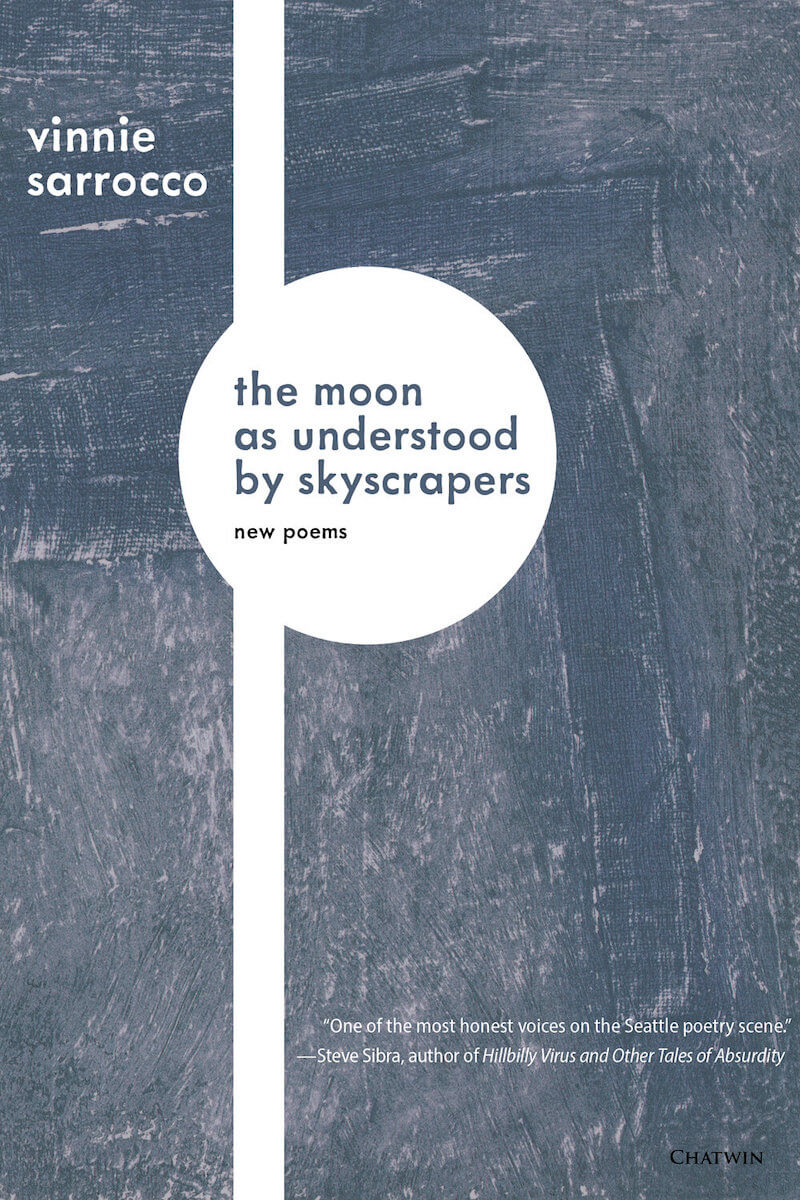
This Friday, Vinnie Sarrocco is launching his latest book of poetry into the world in a Facebook party at 6 pm. The Moon as Understood by Skyscrapers is Sarrocco's second book of poetry to be released in a year — his debut collection, Poems for the Garbage Man came out last fall. (Both books are published by local press Chatwin Books.)
Sarrocco, a North Carolina native, is becoming a fixture on the Seattle poetry scene. The figure he cuts has a retro air to it: that untrained, willfully blue-collar, masculine space-taking energy and a fun reading style that inspires broad laughter at poetry open mic nights. If Sarrocco came to town a couple decades ago, you could picture one of Seattle's street poets, like the late great Harvey Goldner, taking him under their wing.
It's easy to see why Chatwin Books has devoted so much of their resources to this young poet. Sarrocco has a knack for finding an image that grabs your ankle and won't let go. In Garbage Man, he sings a praise song for a particular feisty seagull "teeming with virility," standing "four feet tall/duck-footed, daring any car/or lawyer to get froggy." The bird, Sarrocco imagines, would pick a fight with "some hipster's Jetta" and the car would see the worst of it. It would be, he declares, "A clash of egos worthy of a renaissance fresco."
This streaming launch party likely won't be as raucous as an old-fashioned boozy Seattle open mic night. We do our best these days to politely not mention the sterility of streaming events, but maybe Sarrocco's earthy enthusiasm and wild sense of humor can inject some much-needed humanity into our shared digital space.
Coronavirus poem 1: distance in the ground
I’ve stopped wearing gloves when I’m gardening
My hands missed touching
something else alive
Savoring the feeling of plants and soil
remembering when we stood
with our feet
in wet sand
shoulder to shoulder
like roots and stems
Road Runner Chapter 26: You scratch my lazy work ethic and I’ll scratch yours
April 14, 2020, at 11am
"So I finally did it – I finally got to run off base! It’s very different here than Reno. The city never got bombed, for one thing. Chicago did though, and that’s about 70 miles away, so it’s basically become one big tent city from here to there. The really weird thing is, my running partner says the gutter-tricks have started communicating between cities, and nobody can figure out how. Like, when we change up how rations are delivered or prepare for a big street sweep, they seem to know. We’ve been robbed like crazy lately, I guess."
Coronavirus poems start today
Last week, we made a call for entries from poets who are sequestered at home, writing about coronavirus. We have received so many amazing responses. In them, so many moving stories, reflections, and thoughts about our current weird, and somewhat unbelievable world.
Today, we begin publishing those poems, one a week for the foreseeable future. A bit later today we're getting started with a 9-line poem by Whitney McBride that stopped us short on first read.
If you have submitted work, we have not responded yet to everyone, but will be doing that over the coming week. If you would still like to send us a poem, we are still accepting submissions.
Also last week, we ran a letter from a reader in our advice column, The Help Desk, where he asked if poetry was a scam. After Cienna cut him down (it was a stupid question) it made us think about why poetry matters.
Maybe it doesn't, to you (although, if it doesn't, I doubt you read this far), and that's fine. But for those of us to whom poetry is like a secret language, a fingerhold on a rip in reality that uses deceptively simple words to change the way we think, poetry is powerful. Being offered another perspective is a good thing, right now. Being offered a peek behind our own certain constructs feels necessary.
Normally we run our poems Tuesday at 10am, but we're running McBride's poem today in a high-profile spot normally reserved for reviews: 12pm on a Tuesday. We hope you'll join us each week for the series.
Coronavirus poems:
- "distance in the ground", by Whitney McBride
- "upaya"", by Shin Yu Pai
Road Runner Chapter 25: A lazy savior named Rodney
April 13, 2020, at 11am
"The letter is waiting on my bed when I get home. It smells like cigars, the signature smell of Circus Circus, the scent my mother always wears. I rip the letter open"
Your Week in Virtual Readings: The best streaming literary events from April 13th - April 19th
This is the day of the week when I typically tell you what events are taking place in Seattle this week. But nobody is having events right now because of — well, you know — and so this space has been event-free for a few weeks.
This week, though, we got a listing for a couple of interesting online events. One is a celebration of bestselling novelist Elena Ferrante that doubles as a fundraiser for booksellers, and the other is a discussion about pandemics with local authors as part of Third Place Books's new virtual reading series. Here's what they have to say about it:
Monday, April 13th at 6 pm: Our Brilliant Friends
Europa Editions has launched “Our Brilliant Friends,” an after-dinner book club and watch party that meets every Monday at 6 p.m. Pacific Time (9:00 p.m. ET on Zoom), an hour before the HBO adaptation of Elena Ferrante’s Neapolitan quartet airs. Tickets will be sold for a suggested donation of $5 and all proceeds will benefit the #SaveIndieBookstores campaign, which was launched last week with the support of James Patterson, Reese’s Book Club, the American Booksellers Association, and the Book Industry Charitable Foundation.
Events begin with a panel conversation among prominent Ferrante fans, followed by a brief reading by translator Ann Goldstein from Elena Ferrante’s new novel, The Lying Life of Adults (Pub date: September 1, 2020). At 10:00 p.m., attendees are encouraged to stick around in the Zoom chat as they watch and react to the newest episode of My Brilliant Friend on HBO.
For the April 13 event, co-hosts include McNally Jackson, Elliott Bay Book Company, and City Lights Bookstore. Guests will include Alexander Chee, Sarah Treem (The Affair), and Michael Reynolds. Future events will include John Freeman, Lauren Groff, and many others to be announced.
Wednesday, April 15 at 7pm: Betsy Gaines Quammen with David Quammen
Join Betsy Gaines Quammen and David Quammen for a live-streaming discussion on coronavirus outbreak, religious conspiracy, and movements agitating against shelter in place orders, hosted by Third Place Books and Torrey House Press. Gaines Quammen is the author of American Zion: Cliven Bundy, God and Public Lands in the West, and since her book tour has been postponed, David and Betsy decided to collaborate and talk about both of their books and how they intersect at this very moment. David, who wrote Spillover: Animal Infections and the Next Pandemic, will cover the topic of disease outbreak, and Betsy will talk about responses to outbreak focused on rebellion and conspiracy.
As governments and communities work to stop the spread of COVID-19 with stay-home orders, Ammon Bundy, son of Cliven Bundy, is currently agitating against disease related restrictions in Idaho. But as the White House eases environmental protections and recommends suspension of habeas corpus, could Ammon have a point? We hope you can join us for this casual, hopefully fun, informative and best of all, not contagious live event from Betsy and David's living room to yours.
No purchase is required to view this event, but attendees are encouraged to purchase American Zion and Spillover from Third Place Books:
If you have any virtual literary events happening in the next few weeks, please send me an email at paul@seattlereviewofbooks.com and I'll pass the posts along here.
Road Runner Chapter 24: The great consolation prize
April 12, 2020, at 11am
"Ok, maybe I screwed up. I come to this conclusion while doing my morning PT exercises in an empty gym, following an uncomfortable evening in a room with someone who definitely wished I’d had my tongue removed instead of my leg. "
Road Runner Chapter 23: A pie for my pity party
April 11, 2020, at 11am
"I’m getting ready for work when he shows up at our door with a chocolate bar and a copy of Crime and Punishment, and I’m both delighted and confused because I haven’t told anyone it was my birthday – not even Zelda. My smile is so big and dazzling it could make a sunflower moon in my direction."
The Help Desk: Happy poetry month, ya filthy animals!
Every Friday, Cienna Madrid offers solutions to life’s most vexing literary problems. Do you need a book recommendation to send your worst cousin on her birthday? Is it okay to read erotica on public transit? Cienna can help. Send your questions to advice@seattlereviewofbooks.com. Cienna is teaching baby spiders to appreciate villanelles, so this column is a re-run from 2016.
Dear Cienna,
My entire life, I’ve suspected poetry to be a scam. People only pretend to understand poetry because they don’t want to seem like idiots. I’m right, aren’t I?
Don, Maple Leaf
Dear Don,
Let me ask you this, Don: Who exactly would poetry be scamming? The billions of people who don’t read it or the thousands of poets who could make more money robbing public fountains for pennies than they ever will off their words?
Poetry isn’t a scam. It’s just another shit-upon art form, like opera singing and rodeo queening. And like opera singing and rodeo queening, it has its place – the bathroom. A morning trip to the toilet is the perfect opportunity to ingest one poem well. It is quiet. You are trapped. Your attention has no place to wander but across the page.
Sure, some poems are willfully opaque. Some writers like being misunderstood because it makes them feel smarter (and smugly misunderstood). But most good poets are looking to connect with readers and while you might not catch on to every allusion, with practice you will get the gist and hopefully, the gist will resonate.
I have a stack of poetry books on the back of my toilet. Here are three of my favorites: The Colossus and Other Poems by Sylvia Plath, whom you may have heard of; Ceremony for the Choking Ghost by Karen Finneyfrock, who is a local poet, and whose collection is a remarkable tribute to her sister’s death by heart failure; and Voyage of the Sable Venus by Robin Coste Lewis, who writes about the portrayal of black women in art and history.
I don’t pretend to understand everything going on in these books but I think the ritual of trying makes me smarter.
Kisses,
Cienna
Road Runner Chapter 22: Tal vez sanará mañana
April 10, 2020, at 11am
"My cheeks are wet and trembly when she finishes. I haven’t heard that nursery rhyme probably since my abuela, my namesake Roberta, last sang it to me. The loving melody acutely reminds me of what’s been absent from my life nearly ever since."
The Portrait Gallery: Afternoon in the park
Each week, Christine Larsen creates a new portrait of an author for us. Have any favorites you’d love to see immortalized? Let us know, or see if you can find them in the archives.

Road Runner Chapter 21: Just a bad day to be clumsy
April 9, 2020, at 11am
"Afternoon drills are probably the most important part of the day – it’s the only time that our entire company comes together, all 200 first years, 100 second years, and 50 third years. The most accomplished third years lead the drills under the guidance of the drill sergeant. FL Stewart is a notable exception to this rule. He’s only a second-year but also sometimes leads the afternoon drills, in addition to our morning drills. Like today."
Thursday Comics Hangover: You are your own media
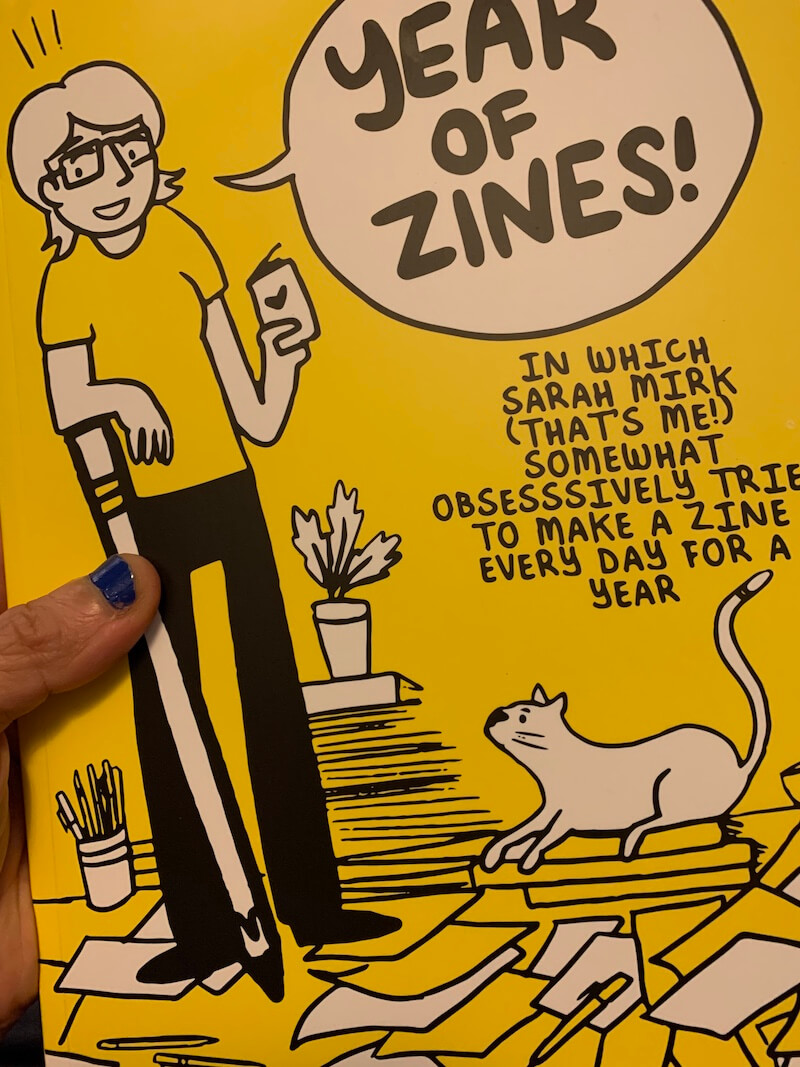
Last week, I alerted you to a creative new distribution plan to save comics shops and the monthly print comic model. That plan crashed and burned mere hours after my column was published. Nobody has come up with a better idea in the week since.
The big publishers aren't putting out new comics, and the whole industry is on pause. So what now? Well, if you can, you should buy comics direct from the creators. And a Pacific Northwest cartoonist just so happens to have a new collection that's worth your time.
Last year, I interviewed Portland cartoonist Sarah Mirk about her project to create and publish one zine a day for a year. "I’m really trying to get away from perfectionism and feeling like things have to be pretty, or things have to be perfect," Mirk told me.
"It’s about the process of making something every day and sharing it with the world — good or bad," she explained. "And part of the point of it is to show people that you can do this too. You can make things and put them out in the world."
Now Mirk has collected the best books from the project in a $12 oversized paperback book called Year of Zines! You can buy it directly from Mirk online. I received my copy in the mail yesterday, and it's just the thing to scratch my new-comics itch.
Most of Year of Zines! is made up of traditional non-fiction comics: Mirk shares her thoughts (on being a tall woman, on the personalities of public transit systems, on how to bail out detainees) and etiquette tips (like how to take a compliment and how to talk to people who are going through bad times) in short comics essays.
But there are other comics here that are more experimental: Mirk makes some collage comics that condense the whole Sunday New York Times down into a few panels (including a fictionalized Bari Weiss essay about cheese mites that is likely more informative than any column Weiss has ever actually written) and she collects self-portraits she's drawn over the years into a kind of reflexive autobiographical zine.
Mirk's enthusiasm for zines is palpable; she spends much of Year of Zines! encouraging the reader to make zines of their own. It's a book that celebrates creation — imperfect, unjealous creation — as its own good. That's an attitude that we could use more of in our self-quarantined lives.
Road Runner Chapter 20: Understanding the Enemy
April 8, 2020, at 11am
"Professor Munger paces before the class, the brass on her chest flashing. 'A quarter of you will one day command squadrons or even fleets of individuals whose vaunted mission is to protect the interests of the United States. You will oversee men and women trained to kill, and who are eager to exercise their training. In this class, you will learn how to identify the enemy, be it abroad or at home, and lead your forces to neutralize all threats – both active and passive. You will learn how to put aside your personal values and beliefs and act in the best interests of the country you serve.'"
Talking with Jon Mooallem about publishing a book about a disaster in the middle of a global pandemic
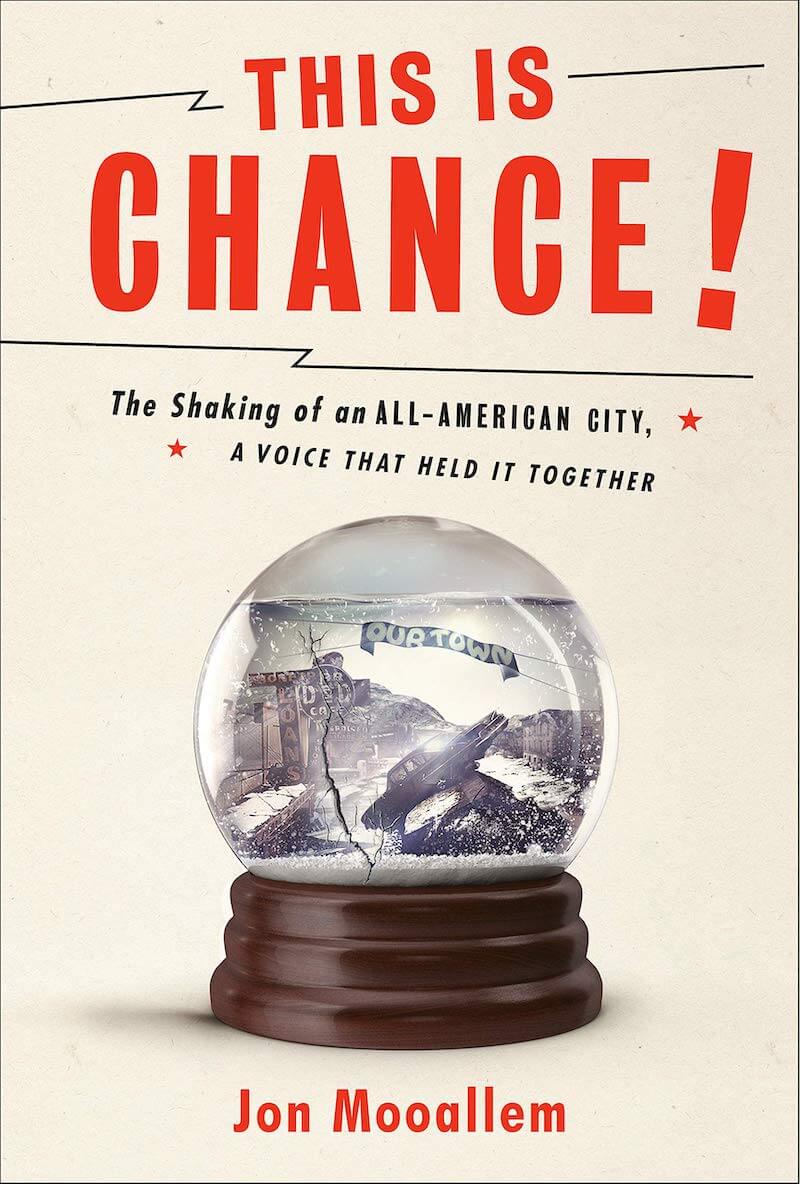
Friends, do I have a book recommendation for you. No matter who you are, no matter what your reading tastes, I can assure you that Bainbridge Island writer Jon Mooallem's brand-new book, This Is Chance!, will speak directly to you at this moment in time.
Chance! is the deeply reported account of three days surrounding an earthquake that struck Anchorage, Alaska in the spring of 1964 — the largest earthquake in recorded history. Mooallem centers the story on a young radio host named Genie Chance who talks Anchorage's citizens to safety, disseminating information, coordinating rescue efforts, and sending messages of hope to and from people spread across the broken city. It's a story with the happy message that when the worst things happen, humans get together to do their best.
You can see where I'm going with this. Human beings around the world are right now sheltering in place in an effort to protect our weakest and most vulnerable neighbors from coronavirus. Some of us are on the front lines. Some of us are working jobs that two months ago would have been considered non-essential but are now the backbone of our civilization. We're all communicating, and we're all trying to get by. It's a slow-motion disaster that will leave all of us changed. Chance! reminds us that the change that is happening to many of us right now will be for the better.
Mooallem is taking some big swings in this book: the structure and themes of Chance! are deep in conversation with no less of an American classic than the Thornton Wilder play Our Town, which happened to be playing at the big theater in Anchorage at the time of the quake. This conversation encompasses the biggest topics we're all facing right now: mortality, optimism, impermanence, loss, and the uneasy feeling of being swallowed by the tremendous scope of the universe.
I talked with Mooallem on the phone earlier this week about his remarkable book, what it feels like to have a book launch get squashed by a global pandemic, and his race against the clock to preserve living history at a time when many witnesses to the Anchorage earthquake are passing away. What follows is a lightly edited and trimmed transcription of our conversation.
After Trump was elected, I spent a long time waiting for the first post-Trump book, the first book that felt like an adequate response to Trump's election. I don't remember one breaking out from the pack. But when I was reading your book, it felt like I was already reading the first post-coronavirus book, because—
I thought you were going to say it was the first post-Trump book. Which, in some ways, actually might have been right. Because I think it was really after the election that I sat down and really tried to do the proposal [for This is Chance!]. I feel like that was probably where my state of mind was — an unimaginable disruption.
That's interesting. So was this book about you trying to find a happy place after Trump's election?
Oh, no, I wouldn't say that. I had been collecting research about Genie, and about the quake, for a few years before then. This theme of unanticipated, very violent-seeming disruptions, was always what drew me to it. And I think we can all relate to that in a personal way — that our own personal worlds sometimes take these swerves.
So, it wasn't that suddenly the election happened, and I had this new way to approach this story. That was just very much in the air then, just as it is now.
It's funny, because there's a part of the introduction that I keep seeing people taking pictures of on social media. It's that last bit that says, "A terrible magic can switch on, and scramble our lives."
I remember writing that in early 2018, and thinking that, "this reads like I'm talking about the election." And now, it reads like I'm talking about Coronavirus.
Your book is a one-stop shop for terrible disasters. So, I guess it's an evergreen.
Yeah. Like how every Christmas they play It's a Wonderful Life, maybe every time there's a disaster, people can read this.
I haven't actually yet spoken with an author whose book launch was disrupted by the coronavirus pandemic. How are you doing? It seems like your publisher must have had a pretty big plan in mind for the launch.
Yeah. Definitely for me, it felt like it was going to be a big launch. I think I was supposed to go do eight or nine different events, the last of which would have been this week up in Alaska.
I really have struggled to find a way to talk about it, because the honest truth is, I don't even really feel like I've grappled with any of that on the emotional level. Partly because I'm doing the very healthy thing of just being grateful for what I have to be grateful for, and then, also — less to toot my own horn — because it's just so frickin' confusing right now. My kids are home, so I just haven't had the mental capacity, I guess.
I think at some point, I'm probably going to end up feeling resentful about it. I guess something was taken away from me. But I don't really have any cogent feelings about it just yet.
It's definitely true that there's been a lot more media interest, I think, than there maybe would have been – just because it feels so timely, in a weird way. But this is a moment that I've been looking forward to for years, literally. And it's great that I still feel like people are finding the book, and reading it. But it would have been nice to have just a little moment where I could feel like I was celebrating it, unabashedly.
Were you aware, fairly early on, that things were going to not happen? These launches from New York publishers are planned out way in advance.
Oh, yeah.
So, you probably had a plan in your head for months.
Yeah. They set the pub date last April, I think, and events were all worked out, I think, by the end of last year.
The weird part of that was being where we live [in Washington state, which was hit early by the coronavirus pandemic], and talking to people in New York in late February, early March. There was a big disconnect between my concern and growing pessimism and the view in New York, which was, "Well, nothing's happening here. We're all fine — let's just take it day-by-day."
And that's not to fault them, but it did make it strange. And in retrospect, I don't know even if we had two extra weeks, when I started worrying about it, to come up with some kind of Plan B. I don't think we would have had any real substantive differences anyway. So, it's a wash. But that was definitely a very strange few weeks.
And then, there was just one day when I got this cascade of e-mails that everything was canceled, one by one.
We're not getting preview copies from publishers right now, so I bought your book from Third Place Books. I loved it, and I thought it was actually the perfect book to read right now.
Thank you.
But it's also very impressive on a technical level. The fact that you interact with the structure of Our Town so thoroughly in This Is Chance! is a hugely brave thing. There are nine ways this book could have failed and one way that it could have worked, and I think you found the one that worked.
Oh, thank you.
When, in the course of writing the book did the structure of the book become apparent to you? I can't separate the story from the structure in my mind, which means you did it well. How did that take shape?
Wow, thank you so much. That's what every writer wants to hear. I guess I don't really know how to answer that.
I think that the Our Town thing is just like it's described in the book: I really had done a lot of research, and met a lot of people, and been up to Anchorage. I knew a lot by the time I finally brought myself to read Our Town — for a number of reasons. One is because I didn't think it was going to be that cool; I thought it was just this hokey play.
So, when I did finally read it, and I got to that first part where the stage manager character just offhandedly tells the audience that this kid that's on stage delivering papers is going to die in a war, I was gobsmacked by it, because that was the experience I was having reading about all these accounts of the time. I was just Googling people, one-by-one, and not to be crass about it but there's a body count that you just see pretty starkly. Like, "Okay. He's dead. She's dead." And you see how they died, and you just get the ending to all these stories.
So, I felt like that stage manager is really the only representation I've ever seen of this phenomenon that I'm having, and what luck that it also happened to have a place in the story itself.
So, I think I knew right away that I could do that in the story, that there'd be something really powerful about just quickly flashing forward and seeing, "Where are they now?"
Honestly, I was a little ignorant. Some of the parallels did escape me. It didn't even occur to me until pretty late that I was telling a story that took place on three different days, and Our Town was a story that took place on three different days.
You're asking me about mechanical things that, I think, it's easy to articulate after — you can come up with reasons why they work. But I don't know. It just seems like it should be that way, and then you try to do it that way in the best way you can. And then hopefully, it works.
It didn't work for everyone, I can tell you that.
Sure. It's a pretty bold move, so, of course, there are going to be people who are going to take issue with it.
I think the trick is it didn't seem bold, because it just seemed like the best way to do this.
I don't talk about writing a lot so it's hard for me to know if I'm making any sense.
It makes total sense to me. In the first few pages, you introduce a couple of characters and then explain how they were going to die, many years in the future. It was a little jarring at first, but there's also something very tender and intimate about having that information right off-the-bat. And reading a book about a disaster and knowing that these people don't die because of the disaster is a little bit of good news, too. It was really striking. And I didn't realize how much that experience of reading mimicked your research for the book until you just said that.
The bit you're talking about is with these two radio broadcasters. One of them is Ty Clark, a very suave Don Draper figure of the station. And right after I tell you that he dies, the next thing that happens is, he's on the radio, ecstatically calling this dog race.
I felt like there was an emotional thing that happened to me when I held those two facts up next to each other in my mind, and that really seemed to be the emotions that people were having after the earthquake, too.
There's this feeling after disasters, and I think some people are having it now too, where you just look around at things that you took for granted, and realize that they're fleeting, and that they're precious, and that they're unimportant. But they're so vital.
I think you get that same thing when you consider a single person's life in its entirety. It's a feeling I was trying to write about, because people felt this at the time of the quake, and I felt in the process of researching it. And so I just want to get people to feel it as they're reading, too.
Was Genie always at the center of the story?
Yeah. 100%, absolutely. She was definitely the center, and if anything, she became less central to this story as I learned about other people that I wanted to include, and other storylines I wanted to follow.
I learned about the quake and about Genie, I think, almost at the same time. I found this report that she'd compiled after the quake, where she collected people's experiences: They would just say what happened during those four-and-a-half minutes of the earthquake for them.
And I knew that she had been on the radio all weekend because this was written up in her little bio with the report. And it also said that her family had recorded some of those broadcasts. And that was what set me off, was just trying to find those tapes. As someone who writes true stories, any time that you have an inkling that there's some big cache of detailed material, you want to go chase it.
This story is not quite at the edge of living memory, but it's getting there. Somebody trying to write this book in 20 years would have had a much more difficult time than you had, obviously. Did you feel at any point like you were racing against time to get these stories for the book?
Yeah, I felt that almost every day. It was very unsettling, actually, for two reasons. One is, because you feel the story slipping away. Literally, people were dying as I was writing the book. There were definitely two very important interviews that I did, and those two men did not live to see the book finished.
There were others as well. I had the experience in Anchorage where I was having coffee with a really important source for the book, the son of Bram, the owner of KENI. I said, "I'm really desperate to find contemporaries of Genie, if there's any left — any people who knew her as equals." And he said, "You might try Ermalee Hickel." She was Wally Hickel's wife; he was a big Alaskan businessman and politician.
I wrote the name down, and the next morning I woke up in my hotel, I went downstairs to the lobby, and on the front page of the newspaper was an obituary for Ermalee Hickel. She had just died the previous day.
Oh, God.
There were definitely uncanny experiences like that.
And then, even when I would find a lot of these people, I would often have much more detailed knowledge about what they had done and said during the earthquake than they could remember. Because I had these interviews that they had done at the time, these very exhaustive interviews with sociologists, for example, or the interviews that Genie had done.
It's not because they're 85 that they can't remember, it's because it was 50-something years ago. They could have the best memory in the world, but they're not going to remember what time they showed up at the police station on a Saturday morning.
So, it did feel like the story was slipping away. And then, also, to be totally honest it made me uncomfortable to feel that. Because it almost felt like hubris: like, "if I don't tell this story, it's going to be lost forever!" That kind of thing. And that didn't sit well with me, either.
When you were talking to somebody and they were countering their own narrative from before, did you feel the need to correct them, or did you let them go? Do you let them live with the version they have in their head?
Oh, that's interesting. No, I don't think there was ever a scenario where I was ruining something for anyone. I think mostly they just didn't remember. So, I would tell them, and they'd go, "huh." Or, "Okay, sure. If you say so."
There definitely were cases where people told me things that they remembered very clearly that I could prove were not true. And I guess in those cases, I didn't push it. Because also, maybe I am wrong. But there wasn't anything of such great consequence, where I felt like I was robbing anything of anyone.
I should also say that those people were really still valuable people to talk to, because they could tell me just about what life was like in Anchorage, even if they didn't remember particular details about the narrative. I learned so much from them about what it was like to live there at that time, what it was like to live in the four-and-a-half minutes of the quake. Which everyone remembered perfectly.
Book News Roundup: Jobs for booksellers, Push/Pull increases online availability
-
Independent audiobook service Libro.fm is looking to hire ten laid-off booksellers to bring to their team for roles including sales, proofreading, and experts-in-residence in kid's books and fiction. They are accepting applications through tomorrow.
-
If you're looking for something unique to read, you should know that Push/Pull in Ballard has put a lot of its inventory online. It's now a very large online storefront full of zines, small-press books, artwork by local artists, pins, and more.
-
Our thoughts today are with Barnes & Noble warehouse workers in New Jersey, who are currently striking to demand increased workplace protections against coronavirus.
-
Chloe Aridjis's novel Sea Monsters is the winner of the 2020 PEN/Faulkner Award for Fiction. The judge's statement praised the book as "a stunning exploration of the ways its brilliant teenage narrator’s interior and exterior worlds are both fluid and in opposition. This dreamlike near-fable of equal parts philosophical and intellectual vigor is a book unlike any other; a true standout and a gift for these times in which we are all craving escape.”
More of a comment than a question
Published April 7, 2020, at 12:00pm
After COVID-19, some things will be much worse. But maybe a few things — like the annual MLA conference — could get better?
Road Runner Chapter 19: Wish in one hand, shit in the other
April 7, 2020, at 11am
"“Let’s go around the table,” my new friend Ryann is saying when I approach our regular group for dinner. Like Zelda, Ryann is an orphan. The government must have some orphan recruitment initiative. “Who would each of you choose, if you were given the choice?”"
An open call for poems about coronavirus, written while at home
April is National Poetry Month. Normally, we run a Poet in Residence during April. But given the situation in the world, with millions of people staying home, we thought doing something more democratic might be interesting.
We're asking poets to submit works about the coronavirus, however you might interpret that (in fact, our last Poet in Residence, Arianne True, left us with one such poem). We want work that you have written while being stuck at home.
It's worth acknowledging that being at home does not make one productive. Many have responded to the stress and anxiety of this time by not producing art, and that's an okay response. We hope you are safe and taking care of yourself.
But for those of you are channeling your experience into your craft, we'd like you to share. Thank you for entrusting us with your work.
Details
- Please submit a single poem only, written recently during the coronavirus pandemic, unpublished elsewhere.
- You will retain full rights to the work.
- We pay $25 on publication.
- This call is open to poets anywhere, but we will give strong priority to poets with a Pacific Northwest connection.
- We will make every good faith attempt to notify you if we do not accept your work, but please be patient with us. We are a small operation, and we don't know what the response will be like.
- We don't know how long this will be open, or how many poems we are going to run. Like the coronavirus itself, there is much to learn. We will publish any updates here, and on our Twitter feed.
If all that sounds acceptable to you, please submit your work here. Thank you!
Go inside the Russian Revolution, with the Tsar's daughter Maria
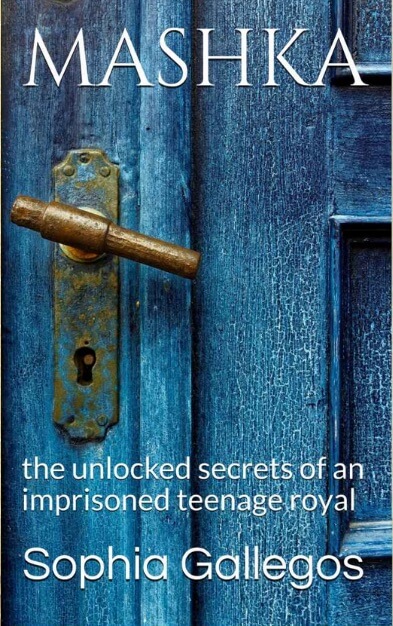
Sponsor Sophia Gallegos has brought her harrowing retelling of the July 16, 1918 overthrow of the last Tsar of Russia. In Mashka: the Unlocked Secrets of an Imprisoned Teenage Royal, she turns her narrative eye to the Tsar's middle child, Maria Nikolaevna.
Just nineteen when the revolution came, her father was taken into custody and the family was sent to a residential prison ruled by the vengeful Ural Soviet. Inside the Ipatiev House, the family struggles to adapt, and survive.
Gallegos has captured the last hours of the infamous family through the eyes of Maria, casting a narrative, fictional light on mysterious events that have been speculated on for a century.
Read the full first chapter below from this engaging story on our sponsors' page, and click through to purchase. What a great time to find a thrilling story to engage with.
It's thanks to sponsors like Gallegos that keep independent outlets like the Seattle Review of Books running. If you're interested in how you could become a sponsor, you can find out more here, including our weekly rates.
Road Runner Chapter 18: We are not soulmates but we have soul stomachs
April 6, 2020, at 11am
"That night, I don’t sleep. Part of it is excitement. I’m also terrified that if I fall asleep I’ll wake up and my leg will be gone. So I spend the night beneath thin sheets, running my right foot up and down its new mate, toes dancing on graphene-coated bone and memorizing the curves of the blade."
Your Week in Recommendations: The books that booksellers and librarians think you should read this week
Monday, April 6: Space Opera
Catherynne M. Valente's sci-fi comedy "about an intergalactic battle of the bands " found a place on Seattle Public Library's list of uplifting books to read during quarantine because it "is perhaps operatic in scope (in a comic vein, at least) but is more rock than opera."
Tuesday, April 7: The Organs of Sense
Theo, a bookseller at Ravenna Third Place Books, says this first novel by Adam Ehrlich Sachs reads "like a deliriously convoluted yet impeccably timed joke"
Wednesday April 8: The Found and the Lost
Laura at Elliott Bay Book Company says Ursula K. LeGuin's collected novellas "span multiple genres and, taken together, make a great introduction to the career of an incredible writer."
Thursday, April 9:
If you have some yoga experience, King County Library recommends the audio version of Shiva Ree's Yoga Sanctuary" A Guided Hatha Yoga Practice for Home and on the Road because it's "a great advantage not to have to look at a screen while balancing your poses!"
Friday, April 10: Citizen Illegal
Open Books's Gabrielle Bates asks in her recommendation for José Olivarez's poetry collection: "What and who is home? What and who is lineage? How to navigate the in-between spaces of nationhood, body, and cultural identity?"
Saturday, April 11: The Book of Delights
Wendee at Queen Anne Book Company says Ross Gay's collection of 102 short essays about delight is just what you need: "These days, who wouldn’t appreciate a collection of essays that makes us feel good," she asks?
Sunday, April 12: The Soldier's Scoundrel
We return once more to the Seattle Public Library's uplifting books list for new author Cat Sebastian's The Soldier's Scoundrel, in which a "familiar Regency opposites-attract romance becomes something freshly seductive."
March 2020's Post-it note art from Instagram
Over on our Instagram page, we’re posting a weekly installation from Clare Johnson’s Post-it Note Project, a long running daily project. Here’s her wrap-up and statement from March's posts.
March's Theme:
I am living for 3 months at an artist residency in Memphis, Tennessee. People in the arts abound here, all of whom I’ve known only a matter of weeks. This moment confuses me. Who do I ask to choose post-its? Which of these myriad artistic strangers should peruse my pages of suddenly exposed intimacies, peer into my brain’s late-night privacies, where are our boundaries in a place like this. It’s fine with you—I’m not standing next to you—I don’t see you seeing me. But all this is an illusion because that was when I sent these off for publication at the beginning of March, now I’m still in Memphis but no one is in my vicinity, this place all closed-up. Back in the time of being-here-pre-pandemic I dealt with my boundaries conundrum by asking 4 different people to each choose a single post-it. While fancier and fussier, this method also somehow seemed lower pressure. I asked the people I’d spent the most time with, not other residents—rather locals, casual colleagues who were delighting my days with random banter, sudden honesty, strange commonalities, smiling generosities, punches of laughter, the occasional 1997 made-for-TV musical. Ash at the closed-for-now cafe makes visual art and co-owns a video store / music venue across the street; something about her moody-humor-witchy-movie-nerd vibe made my mid90s-teen-queer-in-Seattle self feel like I understood where I was. Her since-high-school buddy Tori works the morning shift at the cafe and is trying to find her way back into art making, after years focused on her kids. She returned in the evening during Ash’s shift to choose post-its; Tori stating immediately that she would definitely choose the snails but also needed to see every single one anyway, Ash following along for a time till settling confidently, pleasingly characteristically, on demons. After picking carefully through all of 2019 and up to the present, Tori kept her word and stuck with the snails, I’m learning a love of snails really brings people together. Ash said, “this is perfect, I’ve been thinking about my demons a lot.” She and Tori then admitted they are very different kinds of witches, we all laughed, Tori’s powers are only for other people. When I made that post-it I’d misread the usual “confront” somewhere as “comfort” and was so sad to find it was no one’s genius, just my eyes’ mistake. I wanted to keep the mistake forever, nothing about me wants an argument. COMFORTING IS EVERYTHING; my demons are anxious. But then I get on the plane and land somewhere else, in wintry Idaho to suddenly visit a cousin as the case may be, transitions never as terrifying as the night before, and look where I find myself. We’re all hidden all over the place. Joy chose that one at the end of the night, she said she’d explain why later, and then everyone left. Joy does public engagement for the arts organization and writes fiction and leads clever free Saturday art workshops and talking with her incited the most expansively pummeling waves of aforementioned laughing. That laughter was STEALTHY and SERIOUS, ALL-CONSUMING and a LITTLE BIT DANGEROUS because I’d often stop by her desk when I meant to be on my way to the bathroom. Danielle, who curates projects at the adjacent high school where I was working, chose first and fastest, earlier that afternoon. Danielle is an amazingly helpful facilitator of all things arts, while also maintaining an air of elusiveness that pulls off the hilarious (to even herself, I think) trick of being both low-key and ironclad. She wanted to see the smallest number post-its, just the month that I’d been there at that point, laughed at several, grabbed the wrong horoscope. I think that’s where I’ll choose to disappear.
The Help Desk: Miss Rona came to town
Every Friday, Cienna Madrid offers solutions to life’s most vexing literary problems. Do you need a book recommendation to send your worst cousin on her birthday? Is it okay to read erotica on public transit? Cienna can help. Send your questions to advice@seattlereviewofbooks.com.
Dear Cienna,
Hello! I am feeling very helpless at the moment with all the coronavirus pandemic unfolding around me. I still have a day job, I can work from home, and my housing is secure, so I acknowledge my privilege here.
I want to use that privilege to help others, but every time I open my social media feeds I feel like I'm getting a firehose of desperation right to my face. Everybody needs money right now, and not just the usual charitable organizations. Every bookstore I shop from needs money. The booksellers at those bookstores need money, and many of them have been laid off. Local artists need money. Local charities need money. Local arts organizations need money.
I don't have that much money to give, but I've got some. I've already bought big gift certificates from a few local businesses as investments into their future, but I just don't know if I'm doing the right thing. Is it better to spread what I have around, or should I be looking to make the biggest impact? Should I be giving to arts organizations, or should I be giving to charities that are actively saving people's lives?
Just tell me what to do, please, Cienna.
Paul C.
Sheltered in Place
Dear Paul,
Take a deep breath, make yourself a quarantini (two shots of hand sanitizer steeped with your favorite Tic Tacs) and try to unpucker yourself.
It's true: people are exceptionally needy in these uncertain times. Unless you've been preparing for global catastrophe for years – unless you've got a bunker full of wedding dresses purchased online from bitter divorcees that can be reconstituted as toilet paper OR as wedding dresses for the farm animals you've also been hoarding in your bunker and need to see married off ASAP because NO ONE lives in SIN under your dirt roof NO SIR!!! – well then, you might be shitting exclamation points right about now.
Me? I am living my best underground life. As a child, I was given boxes full of honeybees for Christmas. It taught me resiliency and to never shake presents.
Take another deep drink of that quarantini. Go ahead. I'll wait.
Now then: what you're doing is great. Continue buying gift certificates to book stores. Consider donating to an arts relief fund. Or an emergency relief fund to help restaurant employees (and restaurants). The thing to remember is, there is no donation too small. Just find a cause that feels right to you and support it.
And remember: money is precious but so is your time. There are many people in the world who aren't thriving in a bunker, wondering if it's unethical to marry a horse to a goat without either of their consent. (And arguing with herself about who makes the prettier bride.)
Chances are, you know at least one person who is suffering in isolation, who is stir crazy or lonely or scared or depressed at the news they can't seem to stop reading. Call your friends. Send them books. Reach out. Write them letters!
Money is not always the solution, sometimes your time means more.
Or, you know, bee boxes are fun.
Kisses,
Cienna
BONUS QUESTION:
Dear Cienna,
I have a friend whose 28th birthday is in early April, and her boyfriend broke up with her in January, so she's been sheltering in place on her own. What's the best book to send as a gift for someone who will likely be entirely alone as she enters her late 20s?
Cate,
Capitol Hill
Dear Cate,
That depends – is she still weepy about it or did she think to herself "that fucker beat me to it"?
If she's sensitive and needs an uplifting read, I suggest:
Fly Girls, a nonfiction book on five women who made aviation history, which might be a nice change of scenery during social isolation.
The Story of My Life by Helen Keller. Read about her life and wallow in the shameful knowledge that some days it's too hard to put on pants that button.
If your friend is in a bitter-but-funny headspace, here are a few fun options:
I Feel Bad about My Neck, I was Told There'd be Cake and Half Empty (because there's never been a better time to embrace defensive pessimism!)
Air kisses,
Cienna
Road Runner Chapter 17: Happiness looks different for everyone. So do boots, I guess
April 3, 2020, at 11am
"Medic 13 is attached to the hospital. I dread it. Not because the therapists are terrible or anything, but I’m usually the only person in there, unless someone has twisted an ankle or something minor. It’s quiet, cold and lonely. I’d even take Shanna’s resentful presence next to me at this point."
The Portrait Gallery: Hans Christian Andersen
Each week, Christine Larsen creates a new portrait of an author for us. Have any favorites you’d love to see immortalized? Let us know, or see if you can find them in the archives.

Happy 215th Birthday, Hans Christian Andersen! Born today in 1805, the prolific Danish writer is best known for his re-telling of fairy tales, Andersen wrote novels, and many forms of non-fiction.
"There was a proud Teapot, proud of being made of porcelain, proud of its long spout and its broad handle. It had something in front of it and behind it; the spout was in front, and the handle behind, and that was what it talked about. But it didn't mention its lid, for it was cracked and it was riveted and full of defects, and we don't talk about our defects -- other people do that. The cups, the cream pitcher, the sugar bowl -- in fact, the whole tea service -- thought much more about the defects in the lid and talked more about it than about the sound handle and the distinguished spout. The Teapot knew this."
— from "The Teapot"
Kissing Books: Where it all began
Every month, Olivia Waite pulls back the covers, revealing the
very best in new and classic romance. We’re extending a hand to
you. Won’t you take it?
Olivia is on break this
month, so we're using this time to re-run one of her early
columns. In fact,
it's her very first from 2017. Enjoy!
Every first Thursday, this column will showcase four new romance releases and one revered classic or foundational influence from years past. All five books will end with a Happily Ever After, or at least a Happy For Now. (HEA and HFN for short — and now you’re in the know.) Many of these romances will be historicals; many will be LGBTQ; many will have a paranormal or SFF setting. Sometimes we’ll have all those things in one book, because I like all those things and romance is generous and full of gifts. Some books will be sugar-sweet with a single delicate kiss at the end; others will be hot enough that just cracking the cover will set off all the smoke alarms in a three-block radius.
No children will be imperilled, no women assaulted simply for shock value. The dogs will always live.
It’s no exaggeration to say I’ve loved this genre all my life. I stole my first romance novel from my mom’s shelf at the age of five – a kinky space opera romp by Johanna Lindsey. Imagine Jupiter Ascending starring Slave Leia and Conan the Barbarian, and you’ll have the general idea. Mom, appalled, took the book away when I was only halfway through. It took me ten pre-internet years to find another copy and get to that happy ending, but I did it. Romance readers: we’re unstoppable.
And I kept going. I read Julie Garwood in high school, Julia Quinn in college, and Jeannie Lin in grad school. I sold my first romance manuscript a year after graduating, watched my publisher go down in flames five years later, and started self-publishing my backlist in between writing longread analyses of individual books. You know, for fun. I have more romances on my shelves than I can possibly ever read, and more ideas for romance novels than I can ever write.
A mystery is at heart about justice, just as a science fiction story is about envisioning the future and fantasy is about imagining worlds profoundly different than the one we inhabit. Romance is the only genre whose formula is specifically and exclusively about people: the characters are strangers at the beginning and lovers at the end.
Romance novels are important because people are important.
And romance novels are at the center of a lot of people’s lives. Last week, on the farther coast, two thousand romance authors and industry professionals gathered for the Romance Writers of America’s annual national conference. This is not a fan event, but a professional one. Authors bought old friends rounds at the bar and swapped marketing tips with editors and self-publishers. They are mostly women, and along with all the craft and business workshops, they talked about feminism, about race and systemic bias in publishing, about disability and queerness and gender and religion. They have a great deal to say about women’s place in history, in literary culture, in the modern world and in the future.
Romance novels are good fun, and romance novels are big business. It’s a fascinating tangle of passion and money and meaning, and I’m so happy to be here to talk about it.
Recent romances:
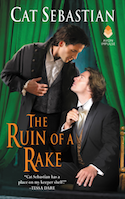
The Ruin of a Rake by Cat Sebastian (Avon Impulse: m/m historical)
Lord Courtenay is appallingly gorgeous, shockingly lewd, and socially outcast. Julian Medlock is upright, prim, and polished within an inch of his life. Each man openly loathes what the other stands for — so it’s a good thing for the romance that they’re both such frauds. This is a story about peeling back layers, about the walls people put up to defend their too-squishy hearts, about taking risks and making mistakes and trying again. Also the best example of sex-scenes-as-character-twist I’ve seen recently. If you like discovering the nurturing side of a Byronic hero, or watching a priggish accountant-type verbally cut someone to ribbons in his lover’s defense, this is your book.
Julian felt about Courtenay’s looks the way radicals thought about money: that it was deeply unfair and problematic for one person to possess such a disproportionate share.
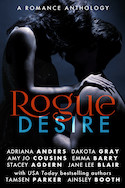
Rogue Desire anthology by Adriana Anders, Dakota Gray, Amy Jo Cousins, Emma Barry, Stacy Agdern, Jane Lee Blair, Ainsley Booth, and Tamsen Parker (self-published: contemporary, various heat levels).
If you’re looking for escapist fluff you won’t find it here — the tone of this resistance-themed anthology is unsubtle, raw, anxious, and fierce by turns. Future historians and critics of romance fiction will make much of the way a certain orange malevolence lurks unnamed in the subtext. At times this book, so viscerally of-the-moment, poked too hard at wounds that are still raw and tender. At other times, though, the sublime gleams through. High points include Jane Lee Blair’s true-hearted pastor hero who cusses with sailor fluency, and Tamsen Parker’s sharp-sweet final story featuring a Jewish heroine whose working title was, no joke, “Hate-Pegging Conservative Josh Lyman.” Anthologies are always useful for testing out new-to-you authors, whether you like your books heavy on the sizzle (Dakota Gray) or populated by policy nerds (Emma Barry, who provided the advance copy. She knows my weaknesses far too well).
There was no excuse not to hold on with both hands when you found love. They’d work the rest out. First, though, they had to get through the sedition.
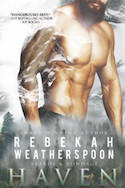
Haven by Rebekah Weatherspoon (self-published: erotic contemporary).
Rebekah Weatherspoon writes some of the best sex scenes around (and now has the Lambda Award to prove it). Her latest is the story of a smart-mouthed Manhattan fashion buyer and a surly, bearded tree of a mountain man: bonded by a shocking tragedy, they try to work out their tangled emotions through dark, beautifully nasty sex. It’s a terrible idea and everyone knows it, including our hero and heroine. This is BDSM romance for the advanced set, by an absolute mistress of the genre — the sex is certainly kinky, but the real danger is in the feelings. This couple’s story is like watching an avalanche in slow-motion: grand, strangely beautiful, and terrifying. I have read more extreme scenarios (Tiffany Reisz, anyone?) but never had my heart in my mouth quite this much. Readers in search of what slinks in the shadowy corners of the heart (and associated organs) will find this memorable and satisfying; those in search of less-intense fare should check out the candy-coated Sugar Baby novella trilogy or the juicy, queer-centric, pulpy fun of the Vampire Sorority Sisters series. (Rebekah created WOCinRomance to promote books written by women of color; I am both a Patreon supporter and a member of the monthly book club.)
“Push back turning you on?” she says as she slips on her bra. “A little bit.” “I mean, I can make today a living hell for you, you just say the word, Master Shep.”
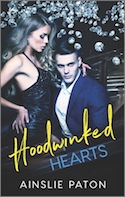
Hoodwinked Hearts by Ainslie Paton (Carina Press: contemporary)
Everything in this heist romance is dialed up to eleven. Imagine a thousand Leverage fanfics piled up high, covered in glitter and set on fire. Hero Cleve Jones is a master burglar and lifelong conman. Heroine Aria Harp is the one person he’s never lied to: his mentor’s rebellious daughter, a shaved-headed, scorpion-tattooed identity thief (!) with a mile-high chip on her shoulder. The story is brief and fiery and rough as a striking match. The prose is hyperbolic and luxurious with occasional sharp shocks of electric truth. At one point there is an extended theft-and-fart-joke scene that does for flatulence what Wodehouse does for hangovers. Ainslie Paton may well be allergic to literary restraint, but let’s not offer to cure her until she’s written a few more books.
Cleve didn’t duck. He said the words Aria warned him not to say, “I love you,” then he stood there like a stone monument to men too smart to know better, so she swung at him and connected with his jaw.
This month’s harlot heroine with a heart of gold
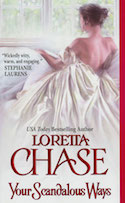
Your Scandalous Ways by Loretta Chase
This was the first Loretta Chase I read and it upended all my thoughts on what heroines could be/do in a Regency romance.
Even if she’s embroiled in some light scandal, the typical Regency heroine is virginal, earnest, and morally above reproach. Francesca Bonnard is none of those things. Not since her titled husband broke her heart, ruined her name, and divorced her by act of Parliament. Now Francesca is a notorious courtesan in Venice, seducing the crowned heads of the Continent and wearing spectacular jewelry and low-cut gowns to the opera five nights a week. Her first POV line is a showstopper: “Penises. Everywhere.”
Due to the scandal of divorce, Francesca is an exile, and she pines for the glitter and social whirl of London lost. It’s as though she’s grieving the loss of the romance-novel story of her first marriage — the ballrooms, the aristocratic suitor, the dazzling courtship. Francesca is an ex-heroine as much as she is an ex-wife.
Nevertheless, at the novel’s end, Francesca is once again wedded, wealthy, titled, and planning parties for the height of the Season. She is, after all, still the heroine of this romance novel. The text never punishes her for her sins or forces her into a humiliating repentance: instead, everything that British society holds against her (manipulating callow young royals, seducing the hot jewel thief next door, refusing to let men boss her around) helps her get to this second, better HEA. She may be a fallen women, but she’s neither broken nor weak.
It’s downright inspiring.
Road Runner Chapter 16: I’ll take a side of fries with my mashed potatoes
April 2, 2020, at 11am
"Every cadet on campus is assigned a job – upper cadets get the plumest jobs. They are campus guards, teacher assistants and drill sergeants in training. Nobody’s quite sure what us rookies will be stuck with. Maybe I’ll be emptying trash cans after all."
Thursday Comics Hangover: A million miles between point A and point B
Yesterday, comic shop point-of-sale software developer ComicHub announced a plan to save the brick-and-mortar comic book store model. (And as Heidi MacDonald noted at The Beat, the plan was not an April Fool's gag.)
The idea is rough at the moment, but it would involve customers buying print editions of comics from their local comics shops, which would then be delivered once the distribution and printing mechanisms went back to work, post-coronavirus. Buying those print editions would give the customers immediate unlimited access to digital editions of the books, hosted on ComicHub. So, basically, customers would be buying print editions of comics on credit while getting digital access to comics immediately, and the revenue streams for comic shops would stay open.
Of course, there's a lot of questions about this plan: Can it scale to satisfy global reader demand? Can ComicHub convince every shop and publisher in the industry to agree to this model? Will the reading experience be enjoyable enough to keep people's interests? Will brick-and-mortar retailers — typically a pretty tech-phobic bunch of people — shy away from the possibility of training their customers into reading digital comics? It seems like if the answer to any of these questions is "no," the whole emergency model falls apart in a huge way.
It's noteworthy that bookshops aren't having this problem. I ordered a new release from Third Place Books last week and got it in the mail within two days — in part because unlike comic shops, bookstores enjoy the capacity to order and receive books from multiple distributors.
The one distributor to every comics shop in the country, Diamond, announced this week that they'll be unable to pay the money they owe to various small comics publishers. This could cause a chain reaction that would wipe out the comics industry from the bottom up. Can a digital distribution model created from scratch in a few weeks make up for Diamond's collapse? Unclear.
But at this point, it's pretty clear that the comics industry as we know it won't survive unless the people in power get creative about the basic problem at the heart of everything right now: how to get a comic book from creators to publishers to readers, with as little friction as possible. Without that elemental part of the equation solved, everything else will fall apart.
Book News Roundup: Short Run and Dolly Parton do their part to make coronavirus bearable
-
Short Run is posting short coronavirus-themed comics (many by local cartoonists) on their Tumblr. Here's hoping this is the first step toward a Coronavirus Comix anthology in time for this year's Short Run Festival.
-
Seattle City of Literature has assembled a list of coronavirus-related resources for the literary community.
-
Tomie dePaola, the author of the Strega Nona series of children's books, passed away yesterday at the age of 85.
-
At least Dolly Parton will read bedtime stories to us for the next ten weeks.
Road Runner Chapter 15: Do not underestimate me, for I am the bringer of Pain
April 1, 2020, at 11am
"After a few minutes, they break us into groups of 50 cadets, each assigned to a wrestling ring. The rules are simple: two plebes enter the ring; first one who crosses the line loses. Unlike at the hospital, though, the winner stays in the circle and keeps choosing their opponents until they’re beaten. 'Then the champion of the rings will each compete until we have a winner,' FL Stewart explains to the crowd. 'And that winner will receive a prize.'"
Talking with Melbourne bookseller Ellen Cregan about her whirlwind bookish tour of Seattle
Last month, Melbourne bookseller Ellen Cregan came to Seattle as part of a bookseller exchange program founded by Melbourne City of Literature and supported by Seattle City of Literature. Cregan, who is the marketing and events director at Melbourne's Readings bookshop, worked at Third Place Books for a weeklong residency. Unfortunately, the timing of her trip left a little to be desired; Cregan had to return home early due to the global coronavirus pandemic. I had the pleasure of meeting Cregan briefly while she was here (albeit from a social distance) and found her to be an enthusiastic and thoughtful ambassador for her city. This interview was conducted over email after Cregan had returned to Australia.
How did you get interested in bookselling?
Like many other booksellers I know, I studied Arts at university (in my case, it was literature and creative writing), and working in a bookshop seemed like the perfect retail gig to take me through my undergrad. I started off at a very small independent book shop with a slight Black Books vibe, but after a year there, I moved on to my current employer, Readings. I don’t actually work on the shop floor anymore -- my current role is in our marketing department. But this move to behind-the-scenes has allowed me to learn about a totally new side of bookselling.
Why were you interested in Seattle as a destination? Did you have any expectations of the city's literary life?
Initially, I decided on Seattle as a destination because I wanted to see how indie bookselling worked in a place where Amazon is so huge. In Australia, the threat of Amazon looms but it hasn’t really taken off (yet). When I did a bit more research about Seattle, I was also amazed by the number of small and specialty booksellers in the city: I figured that any place able to sustain that number of indies was bound to have a super vibrant literary scene, and that cemented my decision.
Can you talk a little bit about the plan for your visit was?
Pre-pandemic, the plan was for me to do all sorts of things in the shop, including sitting in on and hosting some events, visiting some local literary conferences, and spending some time with Third Place’s schools outreach person to see what younger readers are into in Seattle. I was also going to check out some Libraries and other bookstores. And then beyond my week in Seattle, I had also planned to visit bookstores in other parts of the US.
And obviously, you landed just as the pandemic was really getting out of control here, and coronavirus's spread here and at home cut your visit short. What were some of the other effects—were you not able to do anything that was on the itinerary that you were looking forward to?
The timing was really horrible on my trip! When I boarded the plane in Melbourne to head over to Seattle, the Australian PM was on the news telling everyone it was still safe to go to the football, essentially saying it was business as usual. By the time I’d arrived in the US, the conversation in Australia had completely changed — people were getting really scared, and things were shutting down. I was really sad to not be able to see any literary events. This was something I was really looking forward to, and it was a shame that my timing was so bad with regards to this!
Further afield, the thing I’m really into that isn’t book-related is music, and I was really keen to go out and see some local bands play while I was in Seattle. I was also excited to go and visit art galleries and museums and all of those fun, touristy things.
What were some highlights of your trip?
I was still able to go on a (limited) tour of Seattle’s booksellers, guided by the very excellent Stesha Brandon from Seattle City of Literature. This was definitely the main highlight. And it was actually very interesting seeing how booksellers were adapting to not being able to trade normally — The Book Larder in North Fremont were closed to customers, and only operating as an online store, but they were also using their demonstration kitchen to cook meals for local frontline healthcare workers. That was really nice to see. I also got to go on a lot of really nice walks -- I’m extra glad I chose Seattle for my visit, because nature is everywhere, and the lockdown didn’t extend to the walking trails.
Bearing in mind that you didn't have the full experience, were there any big differences between bookselling in Seattle and bookselling in Melbourne?
There seems to be much more positivity from booksellers in Seattle than in Melbourne. I met so many enthusiastic career booksellers at Third Place, and that’s sadly not something I see so often in Melbourne. Seattle booksellers seem more hopeful about the future, despite recognising the challenges faced by the industry. And the Seattle booksellers I met were much more willing to be nerdy in a wholesome and unrestrained way — bookselling in Melbourne feels like more of an outwardly trendy pursuit.
Did you find any new books from your trip here?
I bought so many books on my trip, especially after I learnt I was going home early. I got some great recommendations from Third Place booksellers (The Bookish Life of Nina Hill was an amazing balm for my long and stressful flight home), and I also just bought a bunch of things from the new releases table that I hadn’t seen yet at home. As well as this, I bought some zines from Left Bank Books, which is something I like to do in any city I visit -- I think zines give such a great little portrait of the local literary/arts community.
Were there any experiences that you didn't get to in your trip that you'd like to get around to on a return trip?
I definitely want to come back and see some literary events happen! And also see the libraries in action -- everyone I met in Seattle spoke so highly of the city’s library system.
Is there anything you'd like Seattle's literary community to know about you? About Melbourne?
Well for me: I was so impressed by the city, even as it was operating under a pandemic! And for Melbourne: it’s far away but worth a visit. I think Melbourne and Seattle actually have so much in common (lots of bookstores, a deep love of coffee, temperamental weather) and many Seattlites would feel right at home in Melbourne.
Are there any authors from your home that you're particularly proud of that you want us to fall in love with, too?
Well first of all, that Australian (and Melbournian) writing is really excellent. Australians hold onto a lot of cultural cringe, and can tend to be quite self-deprecating, so the fact that we produce so much great writing can get lost under our own negative chatter. Some of my absolute favourite Aussie writers are: Robbie Arnott, Jane Rawson, Krissy Kneen, Jamie Marina Lau (whose book is coming out in the US via Coffee House Press very soon!) and Jennifer Down.
Body-horror for every body
Published March 31, 2020, at 12:00pm
In Julian K. Jarboe's new collection, writer Anca Szilágyi finds horrific versions of bodies of all kinds: from menstruating knife sets to the anguish of adolescence
Road Runner Chapter 14: I don’t want to jinx it but I think I made a friend
March 31, 2020, at 11am
"The comms band is how they keep track of us. It’s also how they communicate with us and how we can communicate with each other. (It also tells time, so I wasn’t totally wrong.) It still feels weird to wear it, though. When we went to war with China, it became patriotic to hate technology, since they made all of it. Once their government began using our phones like homing beacons for their bombs, the smashing parties started."
Pandemic: While home is an outbreak, we pass a graveyard
This country has a way of forgetting
the dead. Of making me forget, too.
I read about other places
where dead are visited and headstones washed,
places where altars bring them home to us
once a year or always. Growing up, I heard
not to breathe passing graveyards – or what?
No one ever said. I’ve only stopped doing it
this year. I don’t know where my three
gone grandparents are, not their remains.
The fourth wants to be ash on the ocean.
I have never been to the grave of someone
I knew and we have no place in our homes
for our dead. They find places to come anyway,
out and around, Chloe chuckling at me on a bus
over the University Bridge, Kim-An by my desk
or driving out of town. Mark and Ed, Nadine.--
We have no idea what to do with the bodies.
They end up chemical in corners by the highway
with the soft feet of caretakers, the held breath
of passing children. It is most of a forgetting.--
We left the dead behind to come here. My people,
too. A decade on foot, guns and graves at our backs,
graves at our feet, who visits them?
I haven’t yet. And the tall northern villagers who
came on steamships, the bodies, flowers, songs
now an ocean away. My dead lie trailside and across
the salt ocean, becoming lands I have never walked.
Don’t have the right names for. Hope to tread,
and will tread with reverence. Will breathe
when I pass, and will pause. Will trust the hands I feel
at my back, dozens, almost solid where
they make contact. Of course we have broken
how to be with death when the old earth
of their bodies is too far to fall to. Nowhere
to kneel and keen. Sometimes no names to
call, or the wrong words to call them in. Losses
we can’t name in the language they happened.Today, I am scared for names I know, loss I’m afraid
to become fluent in. Under which tender bodies,
whose palms I have pressed to my lips, graves may open.But this week, after months of blue fingertips,
there is just enough warmth in the damp spring
to leave the window open a breath at night
and wake up every morning, when we do wake up,
to birdsong.
One of the greatest science fiction writers' debut novel has just been republished
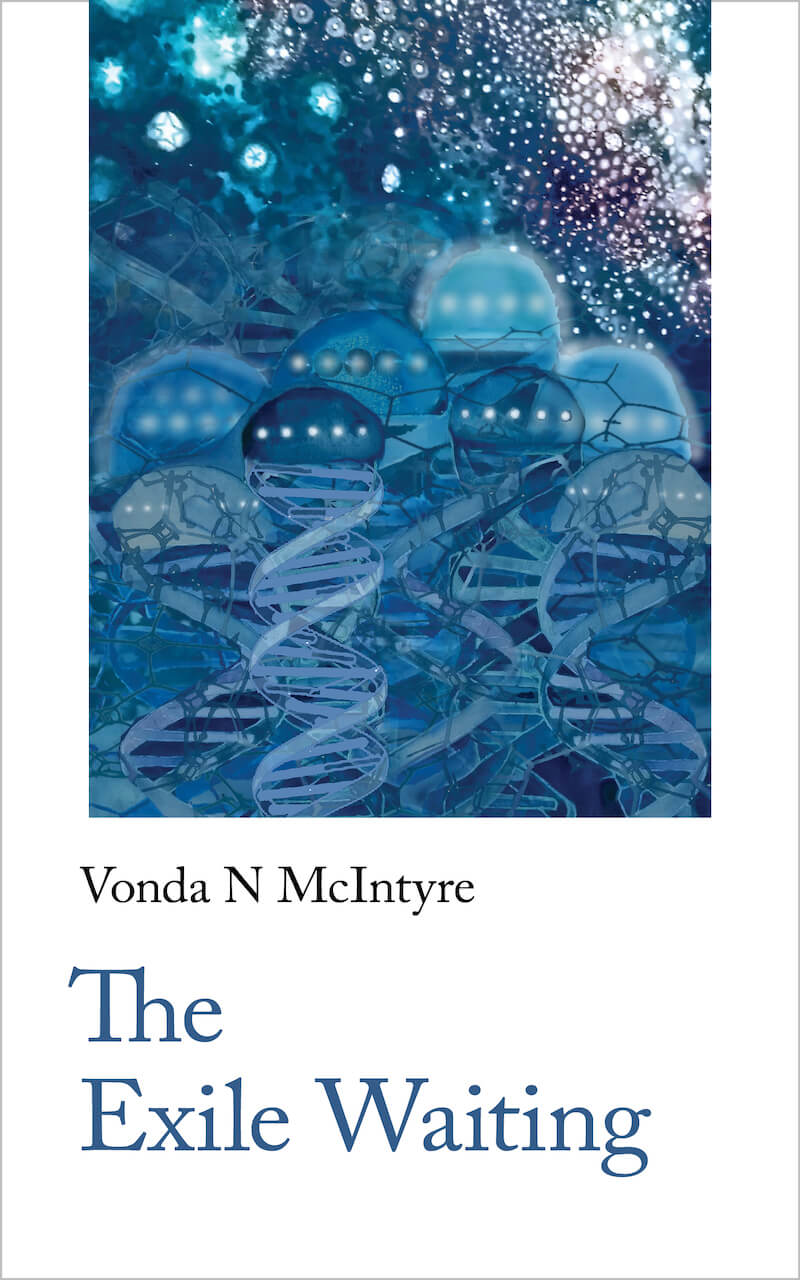
Sponsor Handheld Press has re-issued Vonda N McIntyre's debut novel from 1975, The Exile Waiting. It establishes the world made famous in her beloved novel Dreamsnake, a post-apocalyptic world, following the thirteen year-old sneak thief Mischa, struggling to support her addicted and complicated brother and uncle.
Also included is a reproduction of McIntyre's short story "Cages", first published in Quark 4, in 1972.
Whether you dip in to re-read a favorite classic, or to discover the early work of one of SF's most unique and powerful voices, The Exile Waiting will show exactly why McIntyre won both the Nebula and Hugo for her writing.
We've published a full chapter on our sponsor's page, so read before you purchase, if you would like.
But Handheld Press also wants to support our stores, and would like you to consider purchasing the book from Island Books, on Mercer Island. Support a local business, and receive a copy of a wonderful debut novel by one of Seattle's most influential and unforgettable writers.
Road Runner Chapter 13: Well, fuck. Nevermind.
March 30, 2020, at 11am
"Here’s what I learn in the first week I can’t do: Leave campus, walk around without my comms bracelet, shower during unscheduled times, make friends."
Your Week in Recommendations: Here are the books that Seattle booksellers love
Monday, March 30: Bakerita
The Book Larder has started to post recommendations on Instagram, including the new cookbook Bakerita: 100+ No-Fuss Gluten-Free, Dairy-Free, and Refined Sugar-Free Recipes for the Modern Baker by Rachel Conners.
Tuesday, March 31: The Magical Language of Others
Janis at Queen Anne Book Company calls EJ Koh's memoir The Magical Language of Others "Gorgeous, lyrical, painful, poignant and hopeful."
Wednesday, April 1: The Mountains Sing
Paper Boat Booksellers is closed for the next few days, but on Instagram, a Paper Boat bookseller called The Mountains Sing by Nguyen Phan Que Mai "my latest obsession," adding that it's "a really great book to read over this time home."
Thursday, April 2: Genius
Vel, "employee number one" at Ada's Technical Books on Capitol Hill, recommends James Gleick's great biography Genius: The Life and Science of Richard Feynman. It's a stunning and accessible portrait of a troubled pioneer in quantum mechanics.
Friday, April 3: In a Jar
"Llewellyn likes to collect small, ordinary things," Ravenna Third Place Books bookseller Halley writes about In a Jar, a children's book by Deborah Marcero. "One day, while collecting the cherry red syrup light of a sunset, he meets Evelyn and together they collect feathers and buttercups, the sound of the ocean, and the long shadows of summer."
Saturday, April 4: I Capture the Castle
Rachael at Elliott Bay Book Company praises a new edition of Dodie Smith's classic coming-of-age novel I Capture the Castle for its " immersive experience" and "very witty writing style.
Sunday, April 5: Abbott
Outsider Comics and Geek Boutique features Abbott, a comic written by Saladin Ahmed and illustrated by Sami Kivela about "Hard-nosed, chain-smoking tabloid reporter Elena Abbott" who investigates the supernatural circumstances of her husband's death.
Road Runner Chapter 12: In which my towering intellect finally does me some good
March 29, 2020, at 11am
"They give me a roommate and a leg, but neither is quite what I wanted. The leg is a simple plastic peg-like thing that straps to a girdle-like harness I wear around my waist. I’m disappointed; it is nothing like the intricate machinery of First Lieutenant Stewart – or FL Stewart, as I hear others call him. I can’t run with this leg."
Road Runner Chapter 11: Sometimes things change faster than a breath and when they do you find you can’t breathe
March 28, 2020, at 11am
"'You,' she says, pointing at me. She motions to the chair. I’m irritated – this is the worst possible day to be late to PT."
The Help Desk: The library at the end of the world
Every Friday, Cienna Madrid offers solutions to life’s most vexing literary problems. Do you need a book recommendation to send your worst cousin on her birthday? Is it okay to read erotica on public transit? Cienna can help. Send your questions to advice@seattlereviewofbooks.com.
Dear Cienna,
I read once that books made in the twentieth century with cheap pulp and bad glue would fall apart much sooner than old books, using good paper and good bindings.
What books will you miss most when they're gone, and which ones would you read that stuck around, if the book apocalypse ever comes?
Sandor, University District
Dear Sandor,
The book apocalypse is here. It rode in on the shoulders of COVID-19, closing libraries and other "non-essential" businesses like bookstores across the country. (Do not get me started on the "essential-ness" of certain businesses. Marijuana stores are about as essential as Tweeze Parlors and Pottery Barns.) You can't even return library books in my town. They don't want their filthy sneeze trappers back.
So here I am, without any new reading material, self-isolating with a thousand pessimistic spiders. Any time I am hungry or bored, they tell me to eat my young. And thanks to a nation of wildly misplaced concern, I am now out of toilet paper. (That includes my diploma from Prepper U, which was also printed on toilet paper.)
If you'd like me to put sprinkles on this turd and call it dessert, the one upside is that I have the time to dig through my library and revisit old favorites. Here are a few upbeat ones I'd recommend right now:
- The Boys in the Boat
- The Apocalypse of Elena Mendoza
- How To Be Idle: A Loafer’s Manifesto
- Feel Free: Essays
If you have human children you have not yet consumed, I also recommend:
Air kisses,
Cienna
Road Runner Chapter 10: Put a saddle on me, sarge. I’m ready to ride
March 27, 2020, at 11am
"In the five or so months I’ve been in PT, some patterns have emerged. For instance, you can tell when the brass is scheduled for a walk-through because the floor becomes slick with clean, and even the handprints on the walls look slightly buffed. This morning is one of those mornings. It amazes me that so many years after the war, the hospital is still so full. Many are vets with shaky hands and haunted eyes, but many others are young, like me. And their wounds are fresh, like mine."
The Portrait Gallery: Quarantine view
Each week, Christine Larsen creates a new portrait of an author for us. Have any favorites you’d love to see immortalized? Let us know, or see if you can find them in the archives.
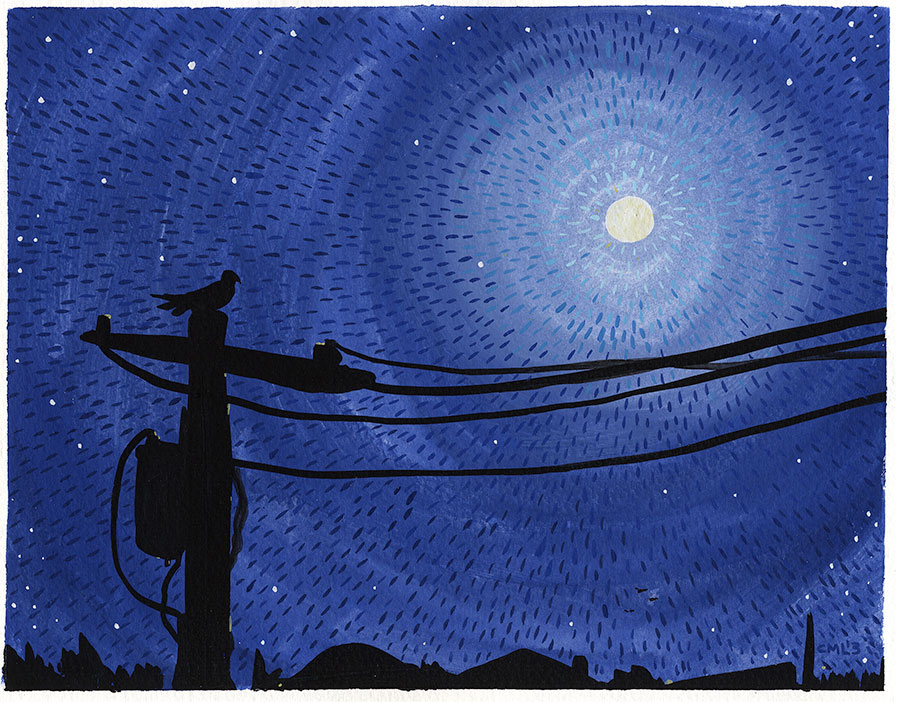
What's your quarantine view? What do you see when you look out your window?
Criminal Fiction: Crime in the time of corona
Every month, Daneet Steffens uncovers the latest goings on in mystery, suspense, and crime fiction. See previous columns on the Criminal Fiction archive page
Reading around: new titles on the crime fiction scene
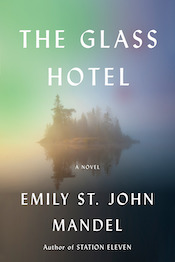
A horribly damaging Madoff-style Ponzi scheme gyrates at the heart of The Glass Hotel by Emily St. John Mandel (Knopf). Mandel’s follow-up to her terrific Station Eleven circles around the lives of two siblings navigating the world of haves and have-nots: Vincent is a woman who manages to reach a pinnacle spot in the monied world; Paul struggles to find any kind of perch for himself, finally doing so by dubious means. But nothing stays in place in this immersive read, and the various characters who interact with Paul and Vincent, impacting inexorably on their individual destinies, are so vividly drawn that the novel has the feel of a character-collective approach rather than being solely protagonist-driven. From a super-savvy investor to the nefarious investment manager and the employees who enabled his financial swindling, and on to Vincent’s so-called best friend during her wealth-infused days, it’s the interconnections and interactions between Mandel’s characters that give this novel its pliability and its spirit, while myriad moody settings – including a desolate containership and a forest-hidden, super-luxe hotel – contribute to its densely-layered atmosphere.
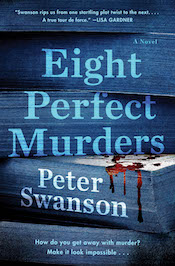
Peter Swanson does deceptively dark mysteries really well – especially when they contain gleeful elements of cosiness in their structure. In Eight Perfect Murders (William Morrow), one Malcolm Kershaw, a bookseller and crime-fiction fan, finds himself neck-deep in his own mystery: someone appears to be using a list of, well, eight perfect murders that Malcolm penned in an off-the-cuff moment on his bookstore’s blog years earlier. The round-up included grisly and twisty classics such as Malice Aforethought, The ABC Murders, Deathtrap, Strangers on a Train, and The Secret History, and someone appears to be taking great pleasure in replicating or referencing those fictional killings in real life. Propulsive, perplexing and highly satisfying through to the final nail in the coffin – so to speak – Eight Perfect Murders offers a tantalizing piece of pretty much near-perfection in page-turning book form.

In Olen Steinhauer’s The Last Tourist (Minotaur), on a 30-hour ferry across from the Canary Islands to Spain, CIA analyst Abdul Ghali listens to an outrageous, conspiracy-level tale, huge chunks of which encapsulate “a story from the dark side of capitalism.” Abdul’s been sent to find out what Milo Weaver, former CIA agent extraordinaire, knows about a shadowy organization known as Massive Brigade as well as its connections to other internationally-flung mercenaries. Deftly sandwiching one timeline within another, Steinhauer paints a chilling picture drawn straight from contemporary headlines: over the days that I read the book, I sometimes had trouble separating circumstances in The Last Tourist from the real-life news, primarily because they actually appeared to be converging in an alarming fashion. A brainy, brilliant, multiple-thrills-a-minute chase across the globe – and across some of our most hallowed infrastructures – will have you eyeing tomorrow’s news with a different, discerning mindset.
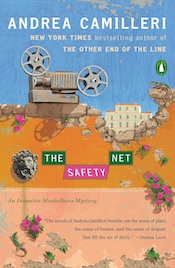
Two nifty little mysteries lie at the center of Andrea Camilleri’s The Safety Net (Penguin), nimbly translated by Stephen Sartarelli. During a manic period in the life of Vigàta, all the townsfolk are madly hunting through their Super-8 films from the 1950s in order to provide potential footage and imagery to a visiting film crew from Sweden. One man, Ernesto Sabatello, discovers an oddity in his attic: every year on a specific day, at a specific time, his father filmed the same patch of wall. As Inspector Montalbano ponders these celluloid artifacts, he also gets involved in a school shooting: no one is hurt, but the motivations of the armed invaders prove elusive. In the latest instalment in his entertaining Montalbano series, Camilleri, who died last year, applies his old-school detecting to the modern mysteries of social media and the ways of young teenagers, while rhapsodizing philosophically on the various forms of protection that people provide for themselves or demand of others.
The Quintessential Interview: Chris Bohjalian

In the opening pages of The Red Lotus (Doubleday) a nurse, Alexis, and a hospital administrator, Austin, meet kind-of-cute during one chaotic Saturday night in the ER. Well, apart from the bullet in Austin’s arm that is – and apart from the fact that in a Bohjalian book, the course of most things, including true love, rarely run particularly smoothly. Six months down the road, Alexis and Austin, still in their honeymoon phase, are on a biking trip in Vietnam when Austin goes missing. Alexis, a formidable woman who readily applies her ER nursing skills to deciphering the sudden mystery, quickly becomes the most compelling voice in this story: with each of her discoveries, the central puzzle both deepens and expands. As always, Bohjalian creates a mesmerizing tale, a timely socio-political-business story with human frailties, illusions, dis-illusions, and strengths firmly at its center.
What or who are your top five writing inspirations?
- Riding my bike. I do so much writing while riding: I solve narrative arcs, decide who will live and die (and why), and sometimes stop and write whole scenes on my phone.
- Reading. I always have two or three books going and they always inspire me.
- Watching movie or TV series trailers. I watch two or three every morning before I start writing.
- The dictionary. I love words: luminescent. Cerulean. Noctivagant. I always skim the dictionary before starting work.
- Great streaming TV or a great movie. Breaking Bad and Mad Men changed my life. Now everything I write needs to be awash in heartbreak and dread.
Top five places to write?
- 1) My study in Vermont with my cat, Horton, in my lap, and my dog, Jesse, asleep in her dog bed behind me.
- 2) A summer day, resting at mile 35 on a 50- or 60-mile bike ride, typing feverishly into my phone as I inhale an omelette and a cappuccino for sustenance.
- 3) The Amtrak train between Albany and Manhattan, watching the Hudson River from my window.
- 4) A really good bar. I wrote the opening to The Flight Attendant and a bunch of key scenes in The Red Lotus in bars.
- 5) An airline lounge at an airport that has artery-clogging chunks of cheese and terrible crackers.
Top five favorite authors?
Nope. Forgive me. I have too many writers who are friends. But I will tell you that among my top five dead writers might be:
- Emily Dickinson (she even appears in one of my books)
- F Scott Fitzgerald
- Tom Wolfe
- Patricia Highsmith
- Howard Frank Mosher
Top five tunes to write to?
I write in utter silence. But five songs that can inspire me are:
- "Stockton Gala Days" by 10,000 Maniacs, especially the live version
- "Heroes" — in German — by David Bowie (I discovered it during the closing credits to Jojo Rabbit)
- "Out of Time" by the Rolling Stones
- “Hero" by Family of the Year
- "I Was Here" by Beyoncé
Top five hometown spots?
- The Lake Champlain Bridge that spans (surprise) Lake Champlain at a narrow point and links Vermont and New York
- The Middlebury Marquis movie theatre. You watch flicks on couches, eat really good burritos, and drink really good margaritas.
- The Vermont Book Shop in Middlebury. The place is historic: Robert Frost would sit in a leather chair and peruse the books he had pulled down from the shelves.
- Monroe Street Books — imagine a used bookstore the size of a supermarket.
- Shelburne Farms — a restaurant and bed and breakfast on Lake Champlain, originally the late 19th century William Seward and Lila Vanderbilt Webb estate. It’s gorgeous: the grounds were landscaped by Frederick Law Olmsted. Even the “farm barn” makes me feel like I am visiting (warning, Game of Thrones reference, dead ahead) Winterfell.
Road Runner Chapter 9: “We Will Make You Useful Again”
March 26, 2020, at 11am
"From there, I graduate to squatting, hopping, lunging. They strap me into machines meant to stretch and strengthen the mangled quad and hamstring of my stumpy leg. I push up. I pull up. I sit up until my abs feel torn in two. I am given two small breaks for eating. On Sundays, I get a shower."
Thursday Comics Hangover: Distribution of wealth
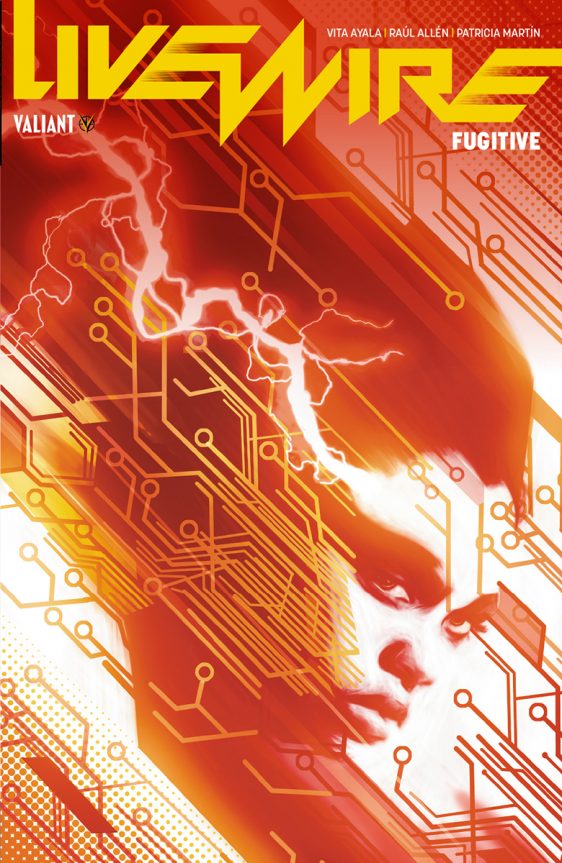
Yesterday, my home-base comics store — that's Phoenix Comics & Games on Broadway — shipped me the last week of new comics that will be available in America for a while, along with a gift certificate that I can use when it's eventually okay to leave the house again. I can't review any of the books, obviously, since they're on their way to me now, so it seems like a good time to look around and see how the comics world is responding to the coronavirus pandemic.
-
Valiant Comics is releasing downloadable PDFs of trade paperbacks and first issues for free in an ongoing Twitter thread that updates every weekday. You might want to check out the first issue of Doctor Mirage, enjoy Juan José Ryp's beautiful art in Rai #1, or check in on fan-favorite character Faith.
-
If you buy a gift card from your local comics shop, Vault Comics will send you electronic preview versions of the first issue of two of their new titles, Hundred Wolves #1 and Heavy #1.
-
The new publisher AWA is offering the first issue of its first book, The Resistance, for free to readers. I like the way they've put some thought into how to read the comic on a web interface — rather than just dividing it up into pages, you scroll downward, losing a sense of the book as a physical thing. Unfortunately, the plot of the book, written by J. Michael Straczynski and illustrated by Mike Deodato Jr., might be too much for readers right now: it's about a pandemic that wipes out 95 percent of humanity, leaving the rest with powers.
- DC Comics is offering superhero-themed videos, activities, and crafts for housebound kids on their Twitter and Instagram handles.
No doubt there will be more free and promotional books in the weeks to come.
At the moment, the whole comics industry is waiting to see if publishers will abandon comics shops and go digital-only distribution for the next few weeks and months while shops are closed, and whether customers will follow if they do. I hope they don't; at the moment the only real digital comics retailer is Comixology, which is wholly owned by Amazon. It wouldn't be smart for comics to go from one monopolistic distributor to another, and there are too many good retailers who would not be able to survive that business transition. As with everything else right now, we have to wait and see.
Reading a pandemic, seventeen syllables at a time
SRoB tipper Alex let us know about #coronavirushaiku, a series of haiku shared by the Twitter handle Worker Writers School, which is an organization that provides creative writing classes to workers.
This one by Paul Hlava is especially moving:
Today’s #coronavirushaiku is from Paul Hlava, a medical technician in Seattle, Washington. Thanks to writer and union organizer @alexthegb for helping to spread the word about this project in the Seattle area. #coronavirus #covid_19 #seattle #washingtonstate #poetry @PENamerica pic.twitter.com/NZbfKR0KSM
— Worker Writers School (@WorkerWriters) March 17, 2020
It seems to me that the weird time-bending qualities of this coronavirus quarantine are particularly suited to haiku: days feel like weeks, and weeks feel like years, but moments are still moments. Maybe if we make enough of the moments, if we really appreciate them for what they are in all their agony and beauty, time will start flowing again.
Road Runner Chapter 8: Welcome to the gimp ward
March 25, 2020, at 11am
"'Consider me like a military career counselor,' she says, taking a seat next to the bed. 'I’m here to evaluate you and advise you on your options. You may ask me anything.'"
As coronavirus spread, Seattle's reading tastes changed
Now that Washington state is sheltering in place, Seattle's independent bookstores have taken their acts online. It's a particularly cruel twist of fate for our booksellers, who pride themselves on their personal touch. There's nothing like a bookstore, after all, for meaningful human interactions that remind us what's best in life.
But they soldier on. Just yesterday, I snuck in one last phone order in to Third Place Books and I placed an online order at Elliott Bay Book Company — both including large gift certificate purchases that count as investments in the future of Seattle's bookselling community. It struck me as I was buying the books that coronavirus has thoroughly affected my reading tastes, changing my patterns in deep ways. My purchases yesterday were cookbooks and escapist fiction, while just a few weeks ago I couldn't read enough current events titles.
I'm not alone; in the few weeks between coronavirus's intrusion into Seattle's daily life and today, our city's reading life has abruptly changed course. I was talking with some booksellers over the past month about how their customers have adapted and reacted to the long periods of solitude.
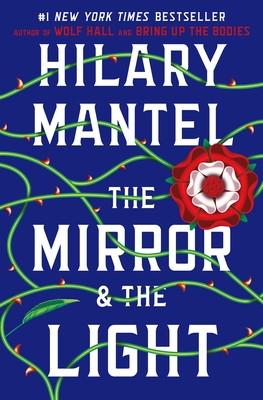
At Secret Garden Books, the last real moment of normalcy was March 3rd, the launch day for Hilary Mantel’s much-anticipated The Mirror & the Light. Secret Garden's events manager, Suzanne Perry, described a clamoring of customers that evoked memories of Harry Potter book launch parties, with people bunching up and ignoring the new pleas for social distancing in order to buy the final novel in Mantel's Cromwell trilogy.
Third Place Books managing partner Robert Sindelar told me coronavirus has affected the reading habits of the store’s customers in some not-so-subtle ways. “You probably don't want to read [Emily St. Mandel’s harrowing pandemic novel] Station 11 right now,” he laughed. Instead, Sindelar has been encouraging customers to check out James McBride’s new novel Deacon King Kong, which he read and loved. “It’s full of heart and it’s funny and it’s about community — a great escape book.”
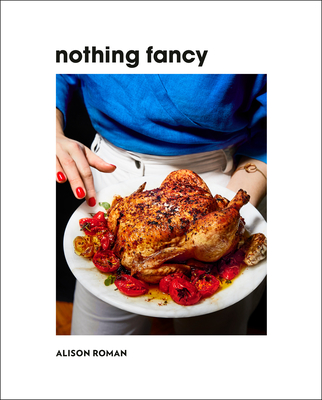
Peter Aaron, owner of Elliott Bay Book Company, told me the expanding coronavirus fears have inspired interest in books about domesticity and comfort. Alison Roman’s simple-but-satisfying cookbook Nothing Fancy: Unfussy Food for Having People Over has been a self-quarantining bestseller, along with Jenny Odell’s manifesto for slow living, How to Do Nothing: Resisting the Attention Economy.
“I’ve been selling more fat books than usual,” Phinney Books and Madison Books owner Tom Nissley told me. Vasily Grossman’s enormous novel about life in Russia during World War II, Life and Fate, has proven popular for hunkering down for a few quiet weeks. “People need a book right now that will take them somewhere else—even if it's Stalingrad,” Nissley said.
No doubt our tastes will continue to evolve as the disease eventually recedes and we can emerge from our houses again. I can't predict what will be an un-cocooning bestseller once these weeks — or months? — have passed. But I know that, like you, I'll be turning to Seattle's booksellers for their guidance on what to read next.
Book News Roundup: O Captain! My Captain!
Artist Trust has launched a COVID-19 relief fund that is open to Washington state artists. You can see if you qualify on their submissions page.
Beloved Seattle cartoonist Ellen Forney has contributed an excellent hand-washing guide to the Washington Post. It makes use of Forney's greatest talents: her friendly and explanatory style, her wondrous sense of economy, and her gorgeous illustrations of hands. Now that Steve Ditko has passed away, Forney has a claim to the greatest illustrator of hands in the business today.
Last night, Governor Inslee announced that all non-essential businesses in Washington state will close tomorrow for at least two weeks. He closed his speech by paraphrasing a passage from Whitman's "Song of Myself." Watch here:
- And here's the quoted passage, from the Poetry Foundation's edition of the poem:
- Inslee's announcement that non-essential businesses must close ended a bad day for local comic shops: the only nationwide comics distributor, Diamond, announced that this would be the last week that they would be delivering new comics to shops, though backlist will still be available for as long as it lasts. If you can, buy a gift certificate to your favorite comics shop in the next day, to ensure that they'll still be there when all this is over.
I understand the large hearts of heroes,
The courage of present times and all times,
How the skipper saw the crowded and rudderless wreck of the steam-ship, and Death chasing it up and down the storm,
How he knuckled tight and gave not back an inch, and was faithful of days and faithful of nights,
And chalk’d in large letters on a board, Be of good cheer, we will not desert you;
How he follow’d with them and tack’d with them three days and would not give it up,
How he saved the drifting company at last,
How the lank loose-gown’d women look’d when boated from the side of their prepared graves,
How the silent old-faced infants and the lifted sick, and the sharp-lipp’d unshaved men;
All this I swallow, it tastes good, I like it well, it becomes mine,
I am the man, I suffer’d, I was there.
Still standing
Published March 24, 2020, at 12:00pm
In a brief review of a new anthology, Donna Miscolta reminds us that art is defiant and our president is an ass.
Road Runner Chapter 7: If no one else will feel sorry for you, feel sorry for yourself
March 24, 2020, at 11am
"When I open my eyes, the ceiling is smooth and bright white and I think: Prison can’t be this clean. Vivian is sitting next to me when I turn my head, which confirms I am in purgatory, not prison. I hurt and something is wrong, but it’s a faraway feeling, like shouts heard down the street."
concrete, exhaust, a chill (our cities feel the same before 8am)
sliced flightless swapped skyline
a swabbing tongue of
cheap vinyl spilling foamnewborn neon faded
she aches like a new mouth
her ears crack old teethsky blue shreds of once red crescent
flag over the open room dust
still falls and sprawls on sillssidewalk ferns howl loud in the cold
(fiddles sprung in splits of city)
(grown even in ices white and divisive)
Road Runner Chapter 6: I always thought “watch your step” was a cliche
March 23, 2020, at 11am
"The soldiers have motorcycles. My soldier – his PO badge says “Franks” – slides on his bike and tells me to climb on, so I do. When I wrap my arms around his waist, his badge skims my wrist. I’ve never been on a motorcycle, just like I’ve never been to a farm, and I’m a bit thrilled at the adventure of it."
Your Week in Recommendations: Here are the books that local booksellers love
Monday, March 23:
Kimberly at Queen Anne Book Company recommends Yes No Maybe So by Becky Albertalli and Aisha Saeed, calling the story of two teens from disparate backgrounds who forge a friendship "Funny, awkward, sweet and empowering."
Tuesday, March 24:
Jesse, who's been selling books at Elliott Bay Book Company since before I started there in the year 2000, recommends Madison Smartt Bell's All Souls' Rising: A Novel of Haiti. He calls this novel set during the only successful slave rebellion in modern times "One of my all time favorite novels, and the best historical novel I've ever read."
Wednesday, March 25:
Sarah at Third Place Books Lake Forest Park recommends We Are Grateful: Otsaliheliga, a children's book written by Traci Sorell and illustrated by Frane Lessac. She singles the book out for spotlighting "the Cherokee practice of giving thanks as a family and as a community."
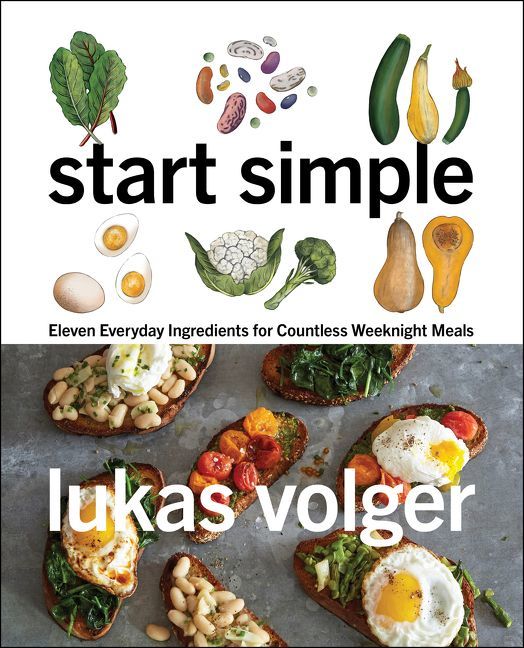
Thursday, March 26:
Did you know that Seattle cookbook store The Book Larder has a podcast? In the most recent episode, writer Lukas Volger talked about his new cookbook, Start Simple, which offers a bunch of recipes that all draw from the same pool of eleven simple ingredients.
Friday, March 27:
Tom, the owner of Phinney Books, calls Tressie McMillan Cottom's book Thick: and Other Essays one of his favorite books from last year. He says it's packed with "funny, paradigm-shifting commentary about, among other things, the brutal cost for a black woman of being presumed incompetent and the rationality of the 'irrational" spending of the poor."
Saturday, March 28:
Open Books booksellers Alexander praises Donna Stonecipher’s poetry collection Transaction Histories for its obsessive attention to objects and the freewheeling association of museum exhibits.
Sunday, March 29:
Becky at Secret Garden Books loves Julia Baird's biography Victoria The Queen: An Intimate Biography of the Woman Who Ruled an Empire, a celebrated biography which follows the life of the Victorian Age's namesake.
Road Runner Chapter 5: What’s the worst that could happen?
March 22, 2020, at 11am
"I need to get close to a Peacekeeper but I don’t know how to make a Peacekeeper need me. Hell, I don’t know how to make my own family need me. My brother and sister definitely don’t need me, and Pops only needs me when he thinks I’m my dead sister."
Road Runner Chapter 4: Call her the bringer of destruction
March 21, 2020, at 11am
"Eventually, the quiet of the street returns to normal – a soft quiet comprised of sighs and whispers instead of the deafening quiet of fear. My toes, my calves, my thighs are pulsing with the insistent throb of limbs about to go on strike, so I move to stand. The runner grabs my arm and jerks me to the ground."
The Help Desk: My bookseller Zucked me
Every Friday, Cienna Madrid offers solutions to life’s most vexing literary problems. Do you need a book recommendation to send your worst cousin on her birthday? Is it okay to read erotica on public transit? Cienna can help. Cienna is busy reading the latest installment of Road Runner, so today's question is a re-run from 2016. Send your questions to advice@seattlereviewofbooks.com.
Dear Cienna,
I’m friends with my local used bookseller. She recommends books to me, and I recommend books to her, and I sell books back to her, and everything is pretty great, for the most part. I know I’m lucky to have such a wonderful bookseller in my life.
But the other day, after I brought a big haul of books in to sell to her, my bookseller friend left a note on my Facebook wall that said, and I quote, “Stop dog earing your books!” Please bear in mind that this note came after she gave me over a hundred dollars in store credit for those books. She didn’t mention the dog-earing at all during the entire transaction while I was in the store.
It’s true that I dog-ear my books, Cienna, and I know it’s not okay. It’s a bad habit, like pulling out your own eyebrows or picking at pimples. But I feel a little hurt by the public shaming, especially considering that she’s never brought this up to my face.
Now I don’t want to go into the bookstore anymore, and I know that’s reactionary of me and more than a little silly. How do I salvage this relationship? Or should I only buy used books online from now on?
Danielle, Edmonds
Dear Danielle,
I assume your bookseller friend is a decent person because all used booksellers I’ve ever met are much better people than me – the kind of people who don’t try to lure neighborhood children into their basement just to prove what bad parents they have.
Nevertheless, even booksellers can be cowards when it comes to interpersonal confrontations. Most of us would prefer to avoid the emotional feedback we receive – the hurt, confusion, embarrassment – when we tell someone we care about something that they probably don’t want to hear. So we email them our criticisms. We text. We Facebook. And while that eliminates the special hell of an awkward interaction, our victim doesn’t get the reassurances that physical feedback provides – tone, eye contact, a smile, maybe a hug. The mostly nonverbal cues that let people know they are valued, even when being criticized.
Receiving criticism via social media feels like a slap you didn’t see coming, even if it is well-intentioned. I know the urge is to respond in kind digitally, but I don’t recommend it. I recently did this and it cost me two friendships – one human, the other a spider I had named after my friend, who I had to ritualistically kill, dismember, and mail to my ex-friend in 11 tiny envelopes.
It takes guts to confront someone about their behavior. It’s hard. But that is how strong friendships are built – in person, not over social media or texts. So this is what I suggest you do: Visit your favorite used bookstore like normal, buy a few books, and when your bookseller friend is ringing you up, say something like, “I think you owe me a happy hour drink.” When she asks why, explain to her that you were a little embarrassed and offended that she chose to criticize you over Facebook for dog-earing your books, and that in the future, you’d prefer it if she talked to you in person about the physical state of the books you bring in for trade. But that she can make it up to you with that drink.
Kisses,
Cienna
Road Runner, Chapter 3: My legs need work but at least I know how to run my mouth
March 20, 2020, at 11am
"The streets are quieter now, aside from the occasional rooster. A tired hush settles over shadows that seemed alive mere hours before. Under a street lamp, I catch eyes with something. At first it looks like a feral cat, the eyes are so low to the ground, so intense. Then I see the hand. He’s a thin man with no legs, just a torso propped on the ground, one large hand reaching out and pointing at me accusingly. I jerk back a little and clutch the shoes tighter, then feel ashamed. He won’t be taking my shoes."
The Portrait Gallery: Support our stores!
Each week, Christine Larsen creates a new portrait of an author for us. Have any favorites you’d love to see immortalized? Let us know, or see if you can find them in the archives.
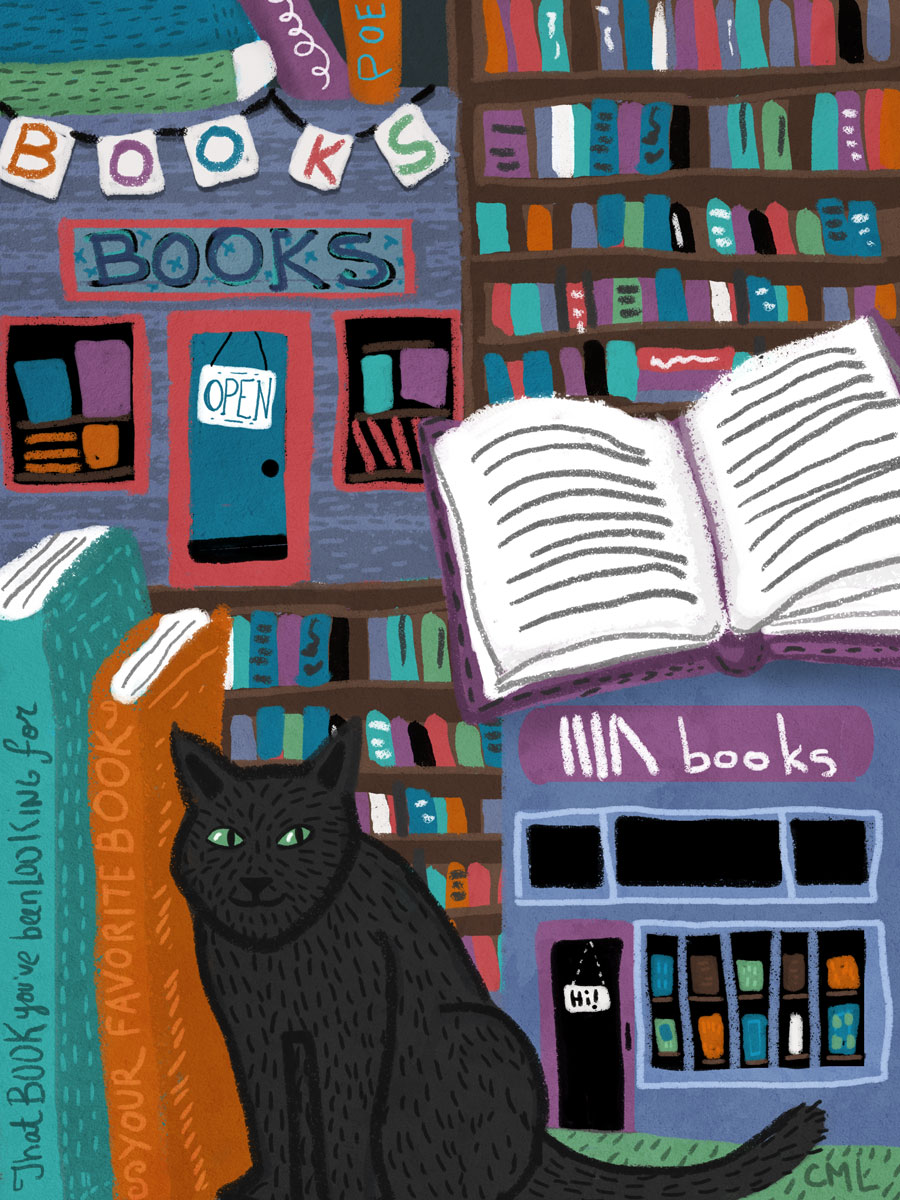
Our bookstores have been with us for years, whenever we need them. Now, they need us — look at our list of ways that you can support local bookstores, and our list of things local comic book stores are doing as well, and find a way to give back and make sure they're around when we're able to visit them again in person.
Book News Roundup: Cancellation culture
- Here's the only good news in this roundup: LANGSTON is preparing to give out the arts relief money raised by Seattle author Ijeoma Oluo:
LANGSTON is proud to partner with Ijeoma Oluo, Ebony Arunga, and Gabriel Teodros in support of the Seattle Artists Relief Fund. We are providing administrative support and are part of the oversight committee for the funds. We are working together to ensure artists will be paid out from the Fund as quickly as possible. If you are a Seattle area artist in need of some help please read through the link and apply via the GoFundMe: https://www.gofundme.com/f/for-artists
Now steel yourself for bad news.
This note from Powell's CEO Emily Powell is heartbreaking:
When we closed our doors, we also closed off the vast majority of our business without any prospect of it returning soon. As a result, we have been forced to make the unthinkable decision to lay off the vast majority of you in the coming few days. Many people have spoken publicly demanding we pay our employees and extend health insurance for the duration. No one can possibly know how much I wish I could make that happen. We are simply not that kind of business – we run on duct tape and twine on a daily basis, every day trading funds from one pocket to patch the hole in another. We have worked hard over the years to pay the best possible wages, health care and benefits, to make contributions to our community, to support other non-profits. Unfortunately, none of those choices leave extra money on hand when the doors close. And when the doors close, every possible cost must stop as well.
- This year's Crosscut Festival has been canceled:
We are disappointed to cancel the events, but we are currently working on ways to surface the important conversations and civic dialogue that take place during the Crosscut Festival. We will be following up with more details in the days ahead. We also plan to be back bigger and better than ever in 2021!
- There will be no Seattle International Film Festival this year.
Road Runner Chapter 2: Reno at night is magic
March 19, 2020, at 11am
"The only reason I caught Peasant the first time was because I was snooping. Sick of the view from my room, I wander into hers late one night to see what alley views the backyard holds. Instead of my sleeping 13-year-old sister tucked in her bed, I spy her out the window. She looks both ways and opens up the rusted chain link gate."
Thursday Comics Hangover: The comic shops need your help
Every Wednesday, customers pour into Seattle's comic shops to buy their favorite titles from the week's shipment of new comics. This week, that ritual became the latest casualty of the coronavirus pandemic. Some of the Seattle area's comics shops are open for business and welcoming customers; we don't encourage that you browse these shops. Quite simply, a new comic is not worth the life of the most compromised person in your life. But almost all of the comics shops in the area are offering shipping, curbside pickup, and other amenities to keep you stocked in new comics for the duration of your self-quarantine. Here's a list:
-
Arcane Comics & More is offering $5 flat fee shipping.
-
Comics Dungeon is also offering mail order.
-
Fantagraphics Books' free shipping sale ended yesterday, but they will did provide a few nifty pandemic reading lists for everyone — from escapist fare to apocalyptic books for those who want to just roll around in the doom of it all.
-
Golden Age Collectables is happy to mail you any comics, games, toys, or movie memorabilia your heart desires.
-
The Grumpy Old Man's Comics, Art, & Collectables is offering shipping and doorstop pickup.
-
Outsider Comics offers curbside pickup.
-
Phoenix Comics & Games is offering mail order, curbside pickup, and courier delivery.
-
Push/Pull gallery in Ballard offers online orders and has a handy guide to helping the store at the bottom of the website – something every comics store should consider right now.
If you can, please patronize a few of those stores. The next few weeks are going to be tough for them, and the comics business is famously unprofitable. Our spending right now is more than just about keeping us entertained; it's about choosing what kind of a city we want to find when we emerge from this quarantined coma. A Seattle without comic book stores wouldn't feel like Seattle at all.
Seattle devotes $1.1 million to arts relief
Brendan Kiley wrote last night for the Seattle Times that the city of Seattle has put over a million dollars toward coronavirus relief funding for artists, in addition to rent relief and other programs. And meanwhile, Ijeoma Oluo's fundraising efforts for Seattle artists is going phenomenally well. This won't come close to solving all the problems Seattle's arts community is facing, but it's a strong start.
Road Runner Chapter 1: You ever been jealous of a rooster? How about a potato plant?
Published March 18, 2020, at 11am
"I remember when roosters used to crow at dawn but now they crow at dusk. You can hear them start up in the late afternoon, like warbly trumpets that clash with the rhythmic buzz of the cicadas. Day or night, their message is the same: Get up! the roosters say. Now is the time when things happen."
Booksellers of the world, unite: A conversation with two members of Elliott Bay Book Company's new Book Workers Union
Last Friday morning, when the Seattle area was just beginning to realize the impact that the coronavirus would have on all our lives, the workers of Elliott Bay Book Company announced that they had formed a union, and that Elliott Bay's store management immediately agreed to recognize the newly formed Book Workers Union. (Full disclosure: I worked at Elliott Bay from 2000 to 2008, both as a bookseller and as a manager.) It was a watershed moment in the history of the bookstore, in the middle of a full-blown economic crisis that is still unfolding now. I talked with Sam Karpp and Jacob Schear, two members of the union, on Monday. Schear and Karpp both helped organize the union, but they note that since the organization is so new, there is no internal structure and so they hold no special titles or unique roles within the union.
So first of all, congratulations! I have to aJS, first, about the day you announced the union. It was the day that the nation was really coming to terms with the idea that coronavirus would be breaking down normal life on almost every level. I can think of one or, at most, two other days in my lifetime, the first being 9/11 and the second being, maaaaaaybe, the first day of the financial collapse in 2008, that would be a worse news day to announce something like this. In terms of earned media, it was pretty much the worst day to get attention. So can I aJS you for a little bit of information about the timeline, and whether you considered world events when you were announcing the union?
SAM KARPP: It was pretty much all we talked about for the weeks leading up to [the announcement] as we were trying to get everything else ready. We had just about every conversation possible, from whether it was the right time to move forward to, like you said, what the press would be like given the situation.
Ultimately, we decided that given the precariousness of the situation, it was actually more important than ever that we move forward despite the decreased press and everyone else's attention being on other things at the moment. Both because the situation has really made visible things that are always present but not always as visible, like the precariousness of small business and the people who work in small business, but also I think we felt like everyone needed something positive to latch onto in this moment and we thought we could maybe be a part of that.
JACOB SCHEAR: We're very happy and confident with our decision to have gone public when we did. We're entering into a moment...I don't know if you have heard this, but the store has just closed [the physical store but stayed open for phone and internet orders] through [March] 31st.
I saw that announcement just before I called you.
JS: We're entering into this moment of precarity, both for ourselves and the store, and we feel that being mobilized and organized as workers we'll be best able to ensure that the bookstore makes it through whatever comes next. We have so many ideas for how to keep the store running through this. Our coworkers have so many great ideas, and we really think that we can put those to work because we have a collective voice at work.
When I worked at Elliot Bay — I don't know if this is still true or not, so you'll have to fact-check me — Peter [Aaron, Elliott Bay's owner] did annual or twice yearly staff meetings where he went through the finances on a pretty granular level. It was certainly more detailed financial information about the running of the company than in literally any other job that I've ever had. He talked about the money that was coming in and the money that was going out and where it was going and all that. Is that something that's still going on or is that something that you were hoping to have more of a hand in?
SK: He does still do, usually twice a year, the financial rundown of the store.
One of the impressions that I always got from those meetings was that there wasn't a whole lot of extra money floating around. There's the old cliche about how nobody got into the book business to get rich. What kind of benefits do you think that the union can give to its booksellers, knowing that the pool of profits is relatively small, if it's there at all?
SK: I think given the extenuating circumstances of our moment, things like wage increases are going to take a little bit more of a back seat, at least immediately. We want to push for things like making sure that employees are taken care of throughout the COVID-19 emergency: Things like having a sick bank, increasing sick hours that are available for employees. We have already seen direct action taken by the store for cleaning protocols, things of that nature. Those are the emergency negotiations with management that we're pushing for immediately.
JS: I'd like to preface this by saying that Jacob and I have both been involved in the organizing pretty centrally up to this point, and we understand our role as having been to basically get us to this point — to win the union. At this point it's going to be time for all of our coworkers to step forward and articulate what it is exactly that they're looking for, which we have some ideas about.
I think one thing I'd suggest is that there are a lot of things that have to do with the conditions of our labor that has to do with the extent to which, or the channels through which, our incredibly talented and passionate coworkers are able to express their voice in the store. And ultimately what that means is that people want the freedom and creativity to do what they love, which is sell books. We do think that there is a possibility for gains in terms of things like wages and benefits. But for a lot of people, the main point was that freedom to determine the conditions of their work and to be able to express themselves at work.
SK: I think of the employees having agency and a voice in the workplace as ultimately truly benefiting Elliott Bay by being able to retain employees who love what they do, love being at the bookstore, and making it into a viable longterm job for people.
You did not know that management would necessarily recognize the union when you were getting ready to announce it, is that right?
SK: No.
Were you surprised they did?
SK: Yeah, we were extremely surprised, but extremely pleasantly surprised. We came forward with very, very strong support both within staff — just percentage-wise — and also with strong community support as soon as we were public on Thursday. So I think that those things contributed. I also think that it's worth applauding management and Peter Aaron, the owner of the store, for not taking the extremely anti-democratic steps that they could have taken to try to prevent us from forming our union — [steps] that they are legally allowed to take, given the state of labor law.
JS: And I think that our message has always been one of positivity — of wanting to ensure the long-term success and longevity of Elliott Bay. And I know that's something that they've made clear that they really appreciate. I think we do have a lot to gain by working together.
SK: Given that we all share common interests, which is maintaining Elliott Bay and continue making it even better, I think it was really wise on their part to be able to see that common interest.
Did you talk with other bookstores with collective arrangements? Like, I know that Powell's has unionized, and Left Bank Books in the Pike Place Market has been worker-owned for decades, since it was first formed. Did you talk to either of those two, or any others?
JS: We didn't really talk with anyone directly. We definitely did research and looked at other places. We have someone who in fact did work at Powell's who was part of our organizing committee who shared her experience working in a unionized bookstore, but we didn't have a whole lot of direct communication with other unionized booksellers.
SK: But we did look to other bookstores that had unionized, and the kinds of things that they were doing.
Early on we spent a lot of time with a wonderful Masters in History down in Portland, who wrote their thesis on the Powell's unionization drive. So we learned a lot from studying that. Totally fascinating read.
Can you talk through just a little bit — somebody else will write the master's thesis I'm sure — but just an overview of what it was like to organize the store?
SK: So it's a long way to think back, but I guess the main answer is that we took a lot of time to make sure that we were thinking about how we're going to reach out to people, spending a lot of time talking to them, hearing their concerns. We already have, and we're blessed to have, really strong social connections. A lot of our coworkers are our friends, which makes it a lot easier to talk about this stuff. Over the course of many, many months, we were able to get to a point where we had a little over 80 percent support.
JS: I would just say, from the get-go, everyone who was involved was just very, very committed, and consistent. So we had a weekly meeting that we just rigidly stuck to, and plans for each week that were stuck to. And I think there was just a lot of follow-through from everyone. Everyone was deeply committed to it from the start.
Do you know what it's going to look like now? Will you be involved in weekly meetings with management? Are you in the war room and doing crisis management as this pandemic goes on?
JS: One of the things that we were able to get as a result of our formation and announcement on Friday was that management agreed to sit down with us immediately to negotiate about what we were going to do with the COVID-19 situation.
I don't want to go too far into the details of the kinds of things we were negotiating about, but basically we were concerned with how people were going to cope in the event of having to close or reduce hours. But also a substantial portion of what we wanted was basically the creation of channels to reach out to staff and let them produce ideas that would help us get through this. We've had a wealth of creative ideas come in from our coworkers that we will be expressing to management as soon as possible — possibly later today.
Long term, we will sit down and negotiate for a contract, which will probably involve more regular meetings and such. But at the moment it's a crisis and all our focus is on this.
Was there anything else that you wanted to say to our readers?
JS: I would say the most important thing that you can do, both for the union and for the bookstore, is to please order a book online during this time. We're trying to find creative ways to reach out to our customers and working on a number of different ways to engage with our community. But we'd appreciate whatever you can do right now, whether that's ordering a book online or doing a pre-order, or re-tweeting us, or buying a gift card. I think people are looking for a community during this time and we're going to do whatever we can to try to make that happen for people.
SK: I think that we're going to show through this process that workers and small businesses can both benefit from workers organizing.
I realize it's a difficult time, but I think that we all want to encourage anyone who's thinking about this kind of stuff to talk to your coworkers — even if it's not forming a union, you have the right to talk about this kind of stuff and work together to make the world a better place.
Introducing Road Runner, a serialized novel by Bianca Brutaldo
These are abnormal times. People are working from home, people are homeschooling their children, people have been laid off from their jobs. People are scared, and uncertain, and it's pretty clear that things are unreliable, and weird, and we're in uncharted waters.
We know a lot of readers of the Seattle Review of Books have a little more time on their hands right now than they maybe would like to have. Recently an author came to us with an interesting proposition to fill your time.
Bianca Brutaldo — not their real name — recently completed work on a YA novel titled Road Runner. It's set in an America not too far in the future — one in which the safety net has failed and national pride has taken a beating. It stars a remarkable young woman who is capable of more than she could ever imagine.
Bianca believed — and we agree — that this is a story Seattle could use right now. So, because these are unusual times, we decided to embark on a little experiment: Starting today at 11am, we're going to publish Road Runner in a serialized format. Each morning, we'll publish a chapter of 1,000 or so words until the end of the story. We'll leave the whole book up for a while, and then we'll take it down. It will just be around for as long as we need it.
Of course, serialized novels are an old tradition in publishing. This seems like a time to reinvestigate some of the old pleasures, to see if there's still joy to be found there. We're proud to present Road Runner, and we hope you'll let us know what you think.
Check back at 11, or follow either @seattlereviewof on Twitter for updates, or the brand-new @roadrunnerbook to see when chapters are published each day.
Don't be like Pam from The Office. Pay for your news.
I find Jenna Fischer to be a charming and charismatic comedic performer. I've never aspired to any kind of an acting career, but I found her craft-based memoir, The Actor's Life: A Survival Guide to be a fun and interesting bit of realism about what it means to be an actor in the world of film and television. (I especially recommend the audiobook, which she reads herself.)
That said, yesterday Fischer screwed up on Twitter. Here's a screenshot:
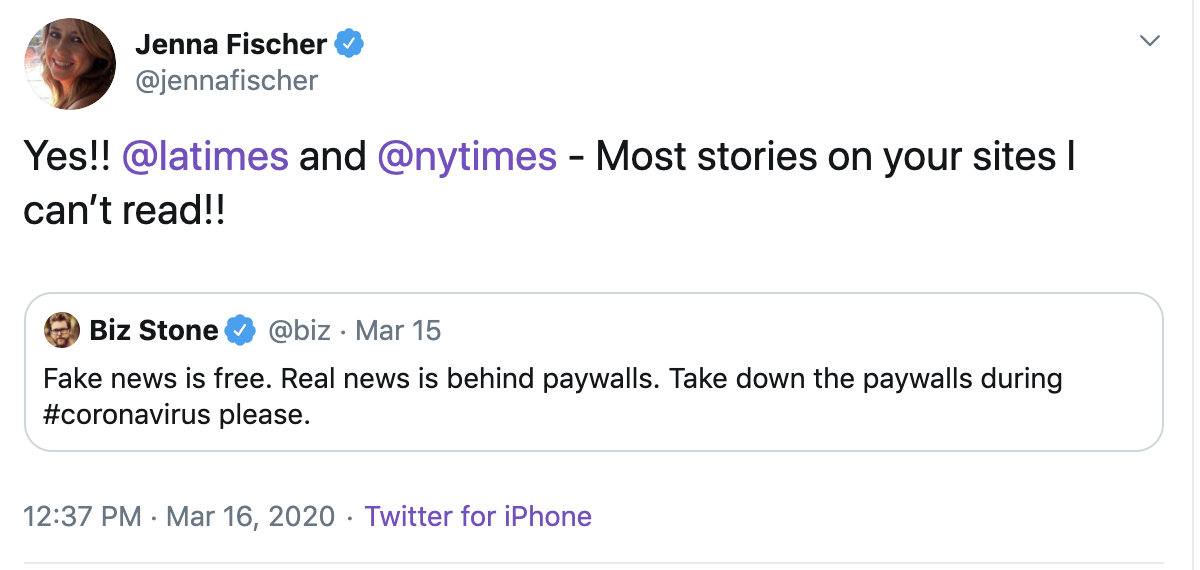
Fischer was retweeting Biz Stone, the co-founder of Twitter, who said "Fake news is free. Real news is behind paywalls. Take down the paywalls during #coronavirus please." Fischer amplified that message by adding "Yes!! @latimes and @nytimes - Most stories on your sites I can’t read!!"
The most refreshing thing about the tweet was the replies, which were largely friendly reminders to Fischer that journalists should be paid for their work, and that a paywall protects the right of journalists to be paid.
Please bear in mind that virtually nobody was yelling at Fischer that she should be cancelled, nor do I believe they should have been more vitriolic. They were just reminding her that her seeming act of populist concern for the dissemination of information carried with it a very real price.
So far as internet dust-ups go, this is all very mild. I credit the calmness of the backlash with Fischer's online presence, which feels very authentic. But it's noteworthy because it reminds us that if you can afford it — if you're an actor who makes royalties from The Office, or if you're a tech bro who created Donald Trump's favorite social media platform — you should definitely pay for your journalism.
It's an easy thing to forget! Paywalls are obnoxious, and we are biologically driven to dislike barriers. But this is a model example of how to gently remind others when we forget about the very real human cost of writing.
Mushrooms, money, and the end of the world
Published March 17, 2020, at 12pm
What can matsutake mushrooms teach us about capitalism and our interconnected society?
apology
you spread grass for
clover slow like parting
a lover your fingers
shorter than I thought
hold flowering tops
point at eagles, cleavers
yellow-striped necks slip
their shells off logs
ripple duckweed, water lilies
my boiled hands point you
to spiderwebs thick with pollen
blown down from cottonwood
the webs move like dress hems
when the lake breathes out
the first thimbleberry
of summer collapses
on your palm and you
speak to me soft as its
stem and downed leaves
across the inlet
can you hear hawks
call from branches
full of crows
Your Week in Readings: How to find the audiobooks, comics, and nonprofits that make Seattle's literary scene great
Monday, March 16: Maid: Hard Work, Low Pay, and a Mother's Will to Survive
If the coronavirus pandemic hadn't happened, author Stephanie Land would be reading her runaway bestseller Maid: Hard Work, Low Pay, and a Mother's Will to Survive at Elliott Bay Book Company tonight. Instead, I encourage you to listen to Land read the book in the audiobook version, which you can buy from Libro.fm and kick some of the sales back to Elliott Bay Book Company. In her own voice, the story feels even more vibrant and emotional and compelling.
Tuesday, March 17: 88 Names
See our Event of the Week column for more details.
Wednesday, March 18: Willa's Grove
In Laura Munson's brand-new novel, "Three women, from coast to coast and in between, open their mailboxes to the same intriguing invitation" from a dying woman. It brings the strangers all together in a way that changes all their lives.
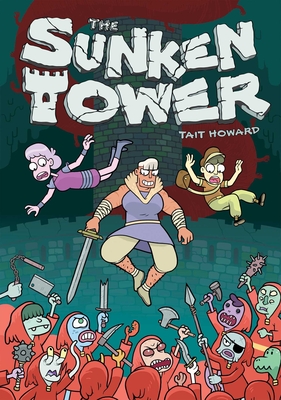
Thursday, March 19: The Sunken Tower
One of the definite negatives of audiobooks is that nobody has figured out how to do a graphic novel version of them. So you should order your copy of Tait Howard's new comic The Sunken Tower from Third Place Books, which was originally going to host this reading and is now offering free shipping on all purchases for the rest of the month.
Friday, March 20: The Course of All Treasons
Neither of the readings that were going to happen tonight have audiobook versions that I can find, so while you're ordering The Sunken Tower from Third Place Books, you should make sure to order a copy of The Course of All Treasons, an Elizabethan mystery with intrigue and adventure, from them too.
Saturday, March 21: World Poetry Day
Did you know that The Poetry Foundation hosts audio files of hundreds of poets reading their own work, for free? This World Poetry Day, I'd encourage you to go find a poet you like and then click around the site until you find a new favorite poet.
Sunday, March 22: Celebrate Hedgebrook
Today would have been a fundraiser for the excellent women's writing organization Hedgebrook, which offers women writers a beautiful place to be alone and write and celebrate each others' work. That fundraiser was canceled for obvious reasons, but if you love the work of Hedgebrook writers like Ruth Ozeki, Karen Joy Fowler, Elizabeth George, and Sarah Waters, you should kick them a few bucks.
Event of the Week: Pick up Matt Ruff's new novel
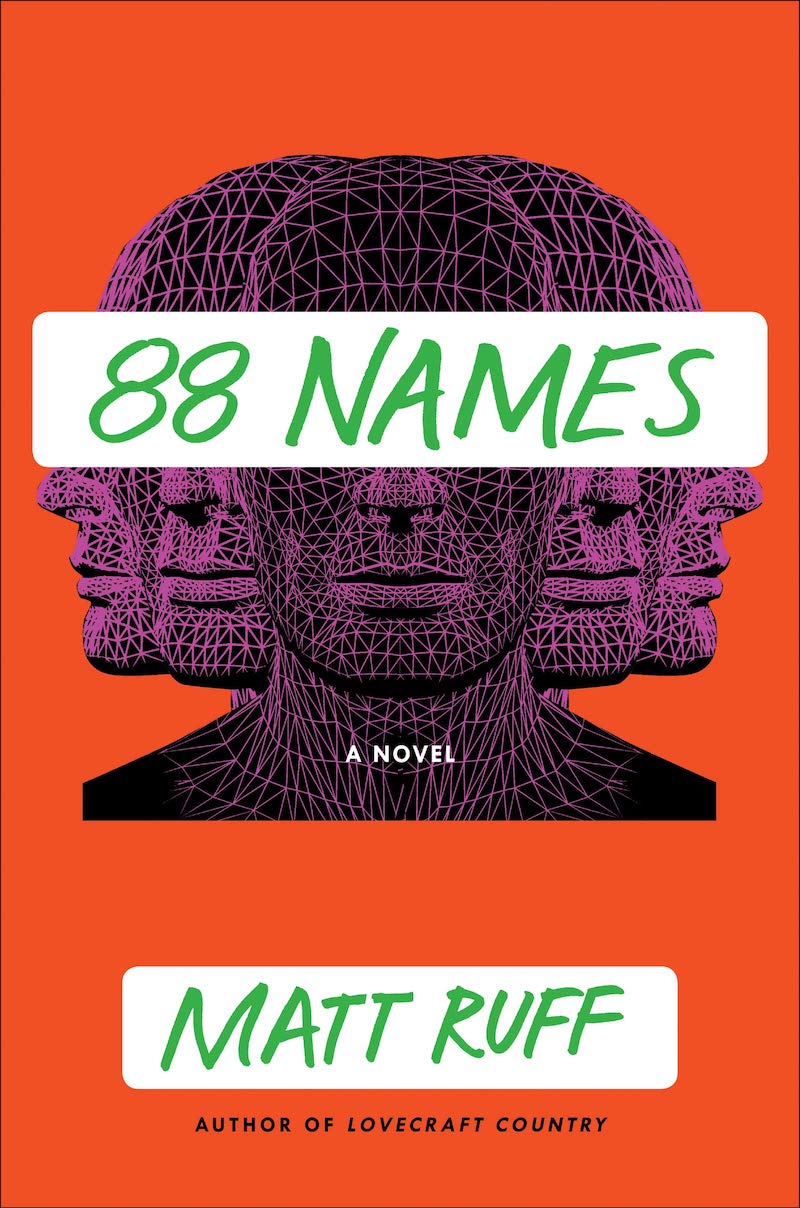
Everything that I said last week about readings in the time of coronavirus is just as true this week: we can't in good conscience recommend that you attend a reading in this environment. Even if you're healthy, you are risking the health of others if you gather in groups right now.
But we need books now more than ever. And authors, publishers, and independent bookstores could use our support right now, too. So I want to direct your attention to a big event on Tuesday: Local author Matt Ruff is publishing his latest novel, 88 Names.
Usually, a rollout from Matt Ruff would be a big damn deal: he's one of Seattle's finest writers, a polymath who never writes the same kind of book twice. Our own Nisi Shawl published an advance review of the video-game-centric thriller just last week, raving that...
...In Matt Ruff’s calm and crafty hands, mystery gets interwoven with the survival imperative, and dedicated play leads to consequential discoveries.
But we can't go out and celebrate Ruff's latest the way he deserves right now. So we have to do the next best thing: Let's all agree, in one of two social-distancing-approved ways, to buy the hell out of this book.
The audio version of 88 Names will be available on Libro.fm on March 17th, and like all Libro.fm purchases, you can devote a part of the proceeds from your sale to your favorite neighborhood indie bookstore.
Or, if you prefer physical books, Ballard bookseller Secret Garden Books is Ruff's home store, and they're selling autographed copies. If you give them a call, they'll ship you a fancy first edition or have a copy waiting for you at the counter to pick up with no physical contact necessary.
One day — hopefully not too far in the future — we'll all be able to get together and throw a big party to celebrate Ruff's latest novel the way it deserves. But for now, it's important to come out and give the book some financial support, to show that Seattle takes care of our own.
Support Our Stores! How you can help local indie bookstores in the time of Covid-19
We must stay home, we must flatten the curve. Vulnerable members of our community need it, your friends and family need it. This is a once-in-a-century moment, and we must rise to the collective occasion and care for our community.
We also want to support our favorite local indie bookstores during this unprecedented moment. The loss of business is huge, and we want to weather this storm with our favorite stores intact.
Here's what local indie stores are doing — support them, and make sure they have income when things are so hard:
- The Elliott Bay Book Company is closed, but they are offering free shipping inside of Washington through March 31st.
- Third Place Books is offering free shipping through March 31st.
- Phinney Books also delivers books by hand to the neighborhood, and books can be bought online.
- The Queen Anne Book Company is offering free delivery to the Queen Anne neighborhood.
- University Bookstore is offering free shipping for all orders over $50.00
- Magnolia's Bookstore is offering free delivery in the Magnolia neighborhood.
- Eagle Harbor Books is offering free shipping in Washington through March 31st.
-
Island Books on Mercer Island does free delivery on the island, curbside pickup, and free delivery. Store owner Laurie Swift Raisys also wrote about her experiences trying to sell in this time on Slate.
- Open Books is offering curbside pickup, and free delivery to certain parts of Seattle
- Book Larder is now a virtual store — you can do shopping trips via Facetime, and will ship free orders over $50.
-
Golden Age Collectables — the world's oldest comic shop! — is closed temporarily. If you have a box with them, they will still get subscriptions, and can mail comics, with free shipping for orders over $50. If you’re a walk-in customer, you can setup a temporary box to make sure you don’t miss out. Best way to contact them is via email
- The used stores are working, too. Mercer Street Books, though currently open, will take orders over the phone for books or gift certificates, deliver books to the Queen Anne area for free the next morning before noon, and will do book-buy pickups and mail checks for books they purchase.
- Libro.fm is currently donating 100% of audiobook gift memberships to your local bookstore. They also pay fees to stores you affiliate your account with, so ordering a bunch of audiobooks helps your local stores.
Know of more stores we should be listing? Send us a tip and we'll look into keeping this list updated.
The Sunday Post for March 15, 2020
Each week, the Sunday Post highlights just a few things we loved reading and want to share with you. Settle in with a cup of coffee, or tea, if that's your pleasure — we saved you a seat! Read an essay or an article online that you loved? Let us know at submissions@seattlereviewofbooks.com. Need more browse? You can also look through the archives.
Garbage Language: Why do Corporations Speak the Way They Do?
Let's step into writer Molly Young's office to sync up for a deep dive into corporatespeak. She finds more than a few pain points in her biting takedown of so-called garbage language and an exploration of its origins and raison d'être. Read this if you'd like to laugh out loud at her one-liner barbs aimed at corporations and feel uncomfortable about what lies at corporatespeak's foundation: anxiety about meaningless work and an attempt to package nothing into something, like turning maple syrup into all-natural, low glycemic-index sports fuel.
Our attraction to certain words surely reflects an inner yearning. Computer metaphors appeal to us because they imply futurism and hyperefficiency, while the language of self-empowerment hides a deeper anxiety about our relationship to work — a sense that what we’re doing may actually be trivial, that the reward of “free” snacks for cultural fealty is not an exchange that benefits us, that none of this was worth going into student debt for, and that we could be fired instantly for complaining on Slack about it. When we adopt words that connect us to a larger project — that simultaneously fold us into an institutional organism and insist on that institution’s worthiness — it is easier to pretend that our jobs are more interesting than they seem. Empowerment language is a self-marketing asset as much as anything else: a way of selling our jobs back to ourselves.
A mysterious gut doctor is begging Americans to throw out “this vegetable” now. But, like, which?
If you've ever read any article online, you've probably seen the low quality pay-per-click ads that appear beneath or adjacent to the content, typically with frightening pictures and copy like "Minnesota women hate this mom" or "Seven weird tricks for losing eighty pounds." And if you've seen those, you've probably seen the one touting a "gut doctor" who is absolutely "begging" you to stop eating a certain vegetable. Vox goes on a hunt to find the doctor and his vegetable. I'm so thankful that someone is finally answering the question of which vegetable we should throw out, so I don't have to click on the ad!
There is a gut doctor, and he begs Americans: “Throw out this vegetable now.” This news is accompanied by a different image nearly every time. This morning, the plea appeared at the bottom of an article on Vox next to a photo of a hand chopping up what appears to be a pile of green apples. At other times, it has been paired with a picture of a petri dish with a worm in it. Other times, gut bacteria giving off electricity. The inside of a lotus root. An illustrated rendering of roundworms.
Dispatch from the Couch: My FOMO-Free Weekend in Seattle
As everyone already knows or is coming to realize, there are very few silver linings during a pandemic, which has already exacted a heavy toll in human lives and economic uncertainty. One small consolation is that some of us (it's me: I'm some of us) might be able to use the socially isolating weeks ahead to free ourselves from the fear of missing out and the worry that someone somewhere is having fun without us.
On Friday, as I finished up my second day of working from home, I realized something strange. Even though a severe virus was spreading throughout the city I live in, I felt a sense of calm about the weekend ahead. Not because of any diminished concerns about COVID-19—I’m closer to a hypochondriac than a finger-licker on the health anxiety spectrum—but because of the virus’s social consequences here in Seattle. Namely, that fewer people would be out and about on Friday and Saturday nights, doing exciting things and meeting exciting people, and thus making me feel less lame.
Whatcha Reading, Reading Through It?
Every week we ask an interesting figure what they're digging into. Have ideas who we should reach out to? Let it fly: info@seattlereviewofbooks.com. Want to read more? Check out the archives.
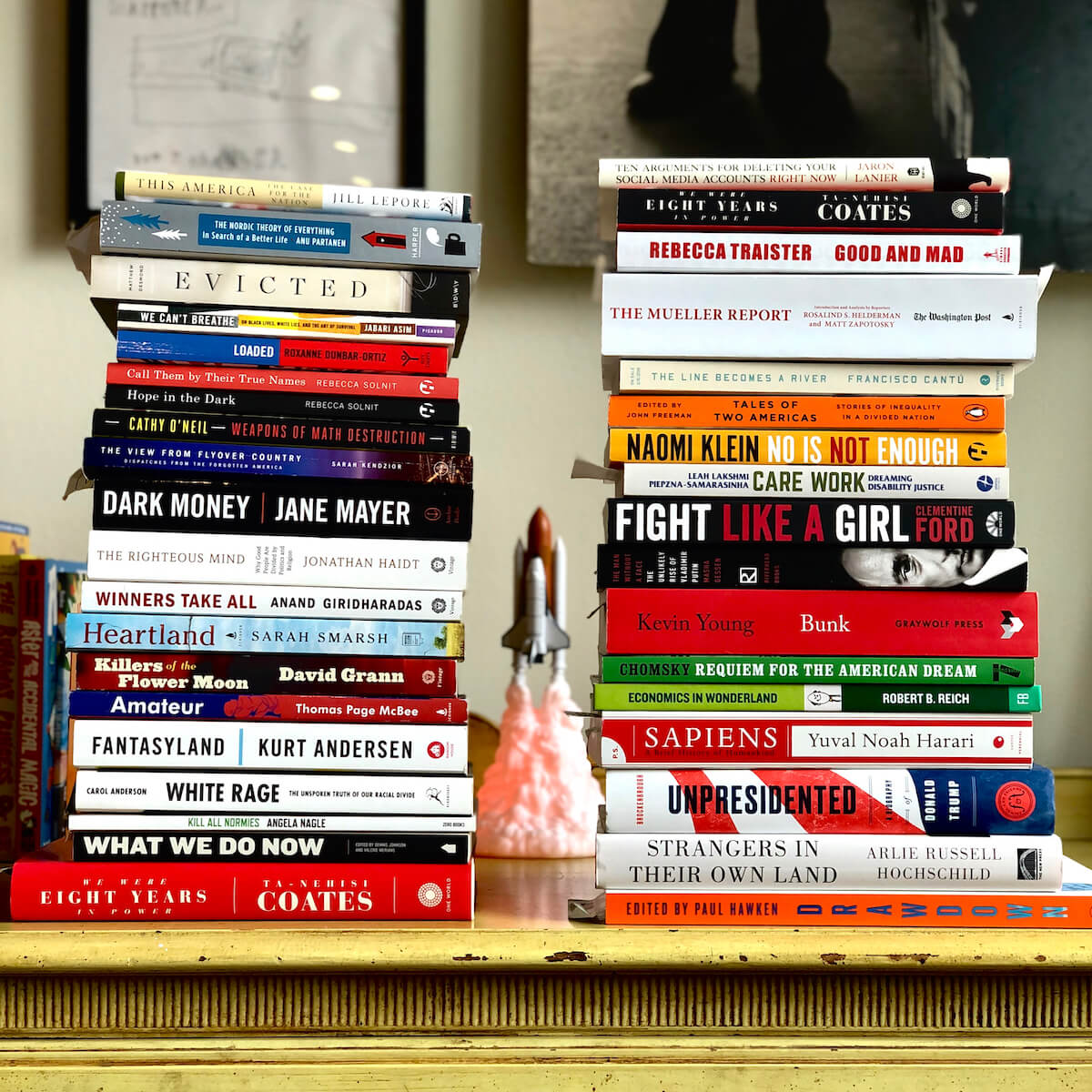
Reading Through It is the book club that the Seattle Review of Books started in 2016 directly after the election of Donald Trump to president of the United States. We started it with Mark Baumgarten, then of the Seattle Weekly, and parterned with Third Place Books in Seward Park. Last week was the final Reading Through It lead by the Seattle Review of Books, but the group will continue under the leadership of the wonderful South Seattle Emerald.
For over three years, over 40 books, we tried to understand the cultural moment that lead us to elect such an incompentent, boorish, narcissistic, racist, unprepared and underserving man to lead our country. We covered racism, class, technology, environmentalism, sexism, hoaxes, economics, trans issues, and sociology. Did we learn? I did. I can't say we ever squared the circle, but we sure did a lot of filing on it. I want to thank everybody who came and talked, and sought answers with us. There were some startling good discussions, laughs, and every month, community. That was one way we found to fight back.
What did you read last?
2016
December: Hillbilly Elegy, by JD Vance.
Here's the wrap-up (look at that photo of everybody who showed up!), and here's our review: Being uncomfortable with the privilege you are draped in on doesn’t make the cloth any less luxurious."
2017
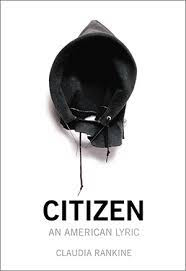
January: Citizen: An American Lyric, by Claudia Rankine.
Her's our preview of the evening. "Claudia Rankine’s book Citizen: An American Lyric first caught America’s attention when a young African-American women named Johari Osayi Idusuyi read it at a Trump rally in late 2015. Idusuyi, who was seated directly behind Trump in a video feed of the rally, pulled out Citizen and started reading it after she realized exactly the kind of event she had attended."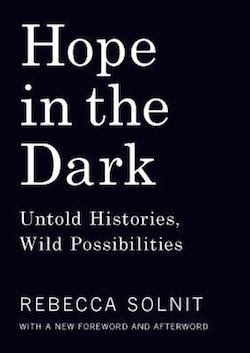
February: Hope in the Dark, by Rebecca Solnit.
Here's a preview of the evening, and here's our review. "But there’s something banal about Bush when compared to Donald Trump. Bush was just the mediocre son of a president who accidentally rose to power. Trump, at this early date in his presidency, is at best a chaos agent and at worst a complete and utter moron. He could likely be a Russian puppet. He is unfit to be president on multiple levels, and he has surrounded himself with white supremacists who seem eager to actively tear down America as an institution. While we’ve had incompetent presidents before, we’ve never seen anything like Trump. At some points, reading Hope in the Dark feels almost like a reminder of a more innocent time."March: Strangers in Their Own Land, by Arlie Russell Hochschild.
Here's our review. "I’ve always wondered why Republicans vote so clearly against their own interests — why people from poor states vote to diminish the safety net until it’s barely a cobweb, why cities that desperately need infrastructure and education reform vote to slash taxes on the wealthy. I could never figure out their motivation, and that always bothered me."The book also made an appearance in a Lunch Date column.
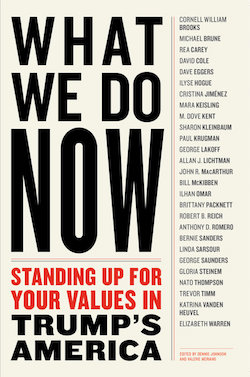
April: What We Do Now: Standing Up for Your Values in Trump’s America, edited by Dennis Johnson and Valerie Merians.
Here's our wrap-up. "This is not to say that the current situation is not grim. As book club attendees pointed out last night, Trump’s policies are causing incredible damage to foreign relations, to the environment, to the very idea of truth. But perhaps the realization that Trump is an inept and hateful president is at least a little more comforting than the pre-inauguration fear that Trump was a brilliant and hateful president. He can still cause a lot of damage — he can still destroy the world, even – but he is not a planner, and he is not a rational thinker. An identifiable challenge is always preferable to an unknown challenge."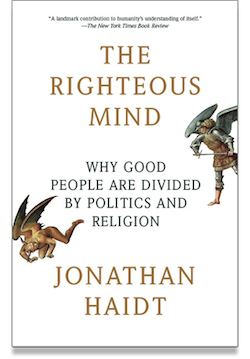
May: The Righteous Mind: Why Good People Are Divided By Politics and Religion, by Jonathan Haidt.
Here's our wrap-up. "But the thing is, The Righteous Mind is an incredibly difficult book to discuss. Haidt digs deep into theories of division and supposition and morality. With remarkable clarity, he explains why we believe what we believe. But when I try to explain what Haidt proves in the book, I’m left repeating bland platitudes: You must find common ground in order to bridge political gaps. Our beliefs aren’t constructed solely on logic. We place ourselves in ideological bubbles, and we use confirmation bias to “prove” our beliefs to ourselves."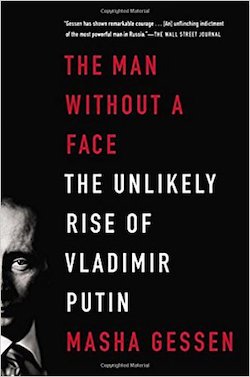
June: The Man Without a Face: The Unlikely Rise of Vladimir Putin, by Masha Gessen.
Here's our wrap-up. "But it’s highly unlikely that Putin expected Trump to win the presidency, and it’s very likely that now Trump is president, Putin is improvising and trying to make as much trouble as possible. In this scenario, Trump is still an unwitting pawn, but Putin is just as flabbergasted and confused as the rest of us as he tries to navigate this new world he unwittingly helped to create."July: Dark Money: The Hidden History of the Billionaires Behind the Rise of the Radical Right, by Jane Mayer.
Here's our review. "For all the hundreds of billions they’ve spent in their efforts to not pay taxes, all the Koches have really won is a slowing of the clock of progress. Their goal is to turn time back to the 1950s, to destroy the progress made by people of color and women and minorities. Really, though, all they can do is stall for a while before they’re outnumbered yet again."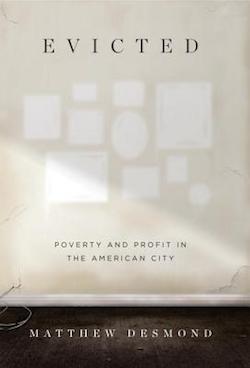
August: Evicted: Poverty and Profit in the American City, by Matthew Desmond.
Here's our wrap-up. "Aside from the refreshing lack of Donald Trump talk, I most enjoyed how the conversation about Evicted was rooted in local current events. We discussed Seattle’s checkered history with low-income housing and the city’s inadequate response to homelessness and rent spikes. Most of us agreed that the answer was not to simply stick ugly low-income housing off in a corner of the city, but to incorporate housing into all parts of Seattle, to create a city where poor and rich live side-by-side, so they can better understand each other."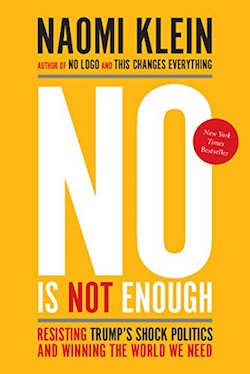
September: No Is Not Enough: Resisting Trump’s Shock Politics and Winning the World We Need, by Naomi Klein.
Here's our wrap-up. "In fact, the book club’s discussion of No Is Not Enough seemed to come from two diametrically opposed poles. Some folks thought that Democrats needed to encourage a slate of big, bold policies like free college and universal health care in order to win votes. Others thought that Democrats would have to be much more pragmatic to win. Some were uneasy with Klein’s full-throated support of Bernie Sanders. Others argued that Sanders was the only template for future Democratic candidates."October: Requiem for the American Dream: The 10 Principles of Concentration of Wealth & Power, by Noam Chomsky.
Here's our review."Just about everyone at last night’s book club had a complaint about Requiem. Many were upset with the way the book continually referred to the 1950s as a golden age for America, when in fact the comfort of the middle class at that time was constructed on the backs of minorities. I hated the fact that Henry Ford was unapologetically cheered in the book as a positive force for the American worker, when in fact Ford was an anti-Semite and a Nazi sympathizer. Some resented the fact that the book criticized contemporary political economy without offering solid solutions."November: White Rage: The Unspoken Truth of Our Racial Divide, by Carol Anderson.
Here's our review. "I tried to explain the ignorance of my white upbringing with a story: I had friends who, three years ago, earnestly asked “why are police officers shooting so many black people all of a sudden?” It never occurred to them that they were just now hearing of an ongoing epidemic because social media made those voices impossible to ignore; as far as they knew, this rash of shootings had never existed before they heard of it. They never could’ve guessed it from the media and the culture that they had consumed their entire lives. "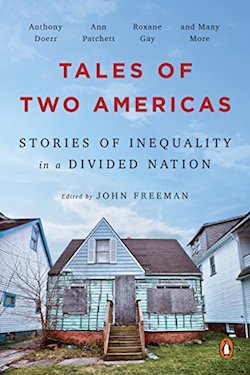
December: Tales of Two America, edited by John Freeman.
Here's our wrap-up. "People talked a lot about feeling hopeless. And that’s to be expected — this first year of Trump’s presidency, with Congress and the Supreme Court tilted in his favor, was bound to make us feel powerless. But at the end of this year, as we tilt into 2018 and its midterm elections, we have to shake off that feeling of powerlessness and embrace our own capacity for change."
2018

January: Weapons of Math Destruction, by Cathy O’Neil.
Here's our wrap-up. "So for the record, an algorithm is just a process — often a tedious repetition of a formula — that plays out in a fraction of a second. It’s often used as a filter, or an interpreter, or a solution to a problem. But like any tool, algorithms can be used for good and bad purposes. And algorithms are always the creation of humans, and they always contain some very human flaws."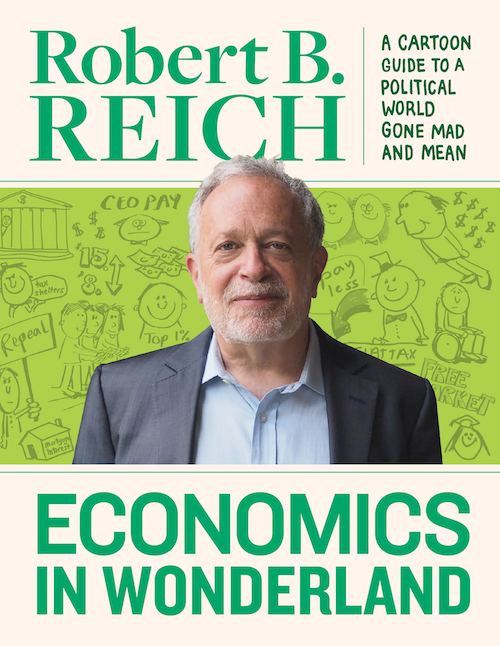
February: Economics in Wonderland, by Robert B Reich.
Here's our wrap-up. "Speaking as someone who has interviewed Reich and reviewed many of his books, I think some of those complaints miss the mark. Reich is interested in building an economic vocabulary for progressives, to give them an array of cohesive ideas through which they can understand and explain the world. He’s an educator first — his preferred title is “Professor Reich,” not “Secretary Reich” — and not a journalist. He is a gifted lecturer and a top-tier economic thinker, and he’s devoting his talents to explaining middle-out economics to a broad audience."March: Janesville: an American Story, by Amy Goldstein.
Here's our wrap-up, and here's our review. "Janesville stars men and women from every one of Janesville’s myriad economic layers. Some of the laid-off factory workers have the resources to find new work. Others grab onto any job they can, because their lives literally depend on it. Teenagers plan for a future that is more tenuous than expected. Paul Ryan is a character in this book — his time as Mitt Romney’s running mate in the 2012 election earns special attention — and his concern for the citizens of Janesville feels earnest and real. Not all of these people will survive until the end of the book. All of them will be profoundly changed. "April: Kill All Normies: Online Culture Wars from 4Chan and Tumblr to Trump and the Alt-Right, by Angela Nagle.
Here's our wrap-up. "But are the men who call themselves men’s rights activists and gamergaters and white separatists online really “transgressive?” If you take them at their word, in fact, they’re regressive: they want to return to what they imagine to be the glory days in America, when white men were at the top of the pyramid and everybody else was considered to be a second- or third-class citizen. "May: The Line Becomes a River.
Here's our wrap-up, and here's our review. "He’s trying to get good at his job, he tells his mother. He’ll figure out what it means later, he insists. But his dreams are trying to tell him what it means now. A wolf haunts his sleep with the threat of impending violence. He is grinding his teeth to bits. He is anxious from lack of sleep. After one particularly violent dream, he realizes he must make peace with the wolf, and he addresses him as “brother.” "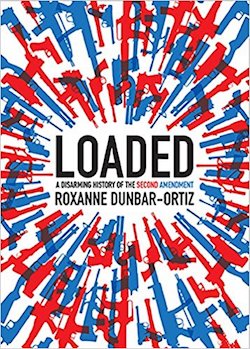
June: Loaded: A Disarming History of the Second Amendment, by Roxanne Dunbar-Ortiz.
Here's our wrap-up. "But even those who disagreed with Dunbar-Ortiz’s methodology agreed with many of her conclusions. Gun culture in the US simply is different than everywhere else, and it’s really remarkable how many of the institutions we simply assumed always existed are fairly new inventions. (The concept of a police force, for instance, is much newer than most people think.)"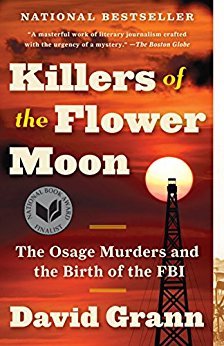
July: Killers of the Flower Moon, by David Grann.
Here's our wrap-up. "Members of the Reading Through It Book Club had a lot of great insights about how Killers relates to our modern era — particularly in the methods that white looters used to attack the Osage. The grifters and murderers understood instinctually that the way to attack and to dehumanize a people is by breaking their families to pieces. These are the same methods that the Trump administration is using on the border today: they’re targeting an entire culture by dividing families and othering them while they are weakened and mourning. "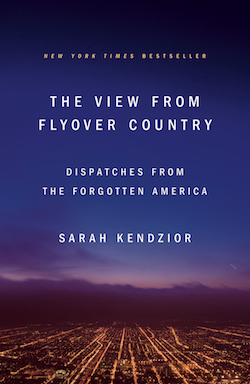
August: The View From Flyover Country, by Sarah Kendzior.
Here's our wrap-up. "As we talked through this member’s concerns, some of the shine came off the book. We agreed that Kendzior tackled serious, important issues lyrically and with great verve and passion, but if she had offered greater historical context around some of her topics, or perhaps had framed this collection more as essays than journalism, it could have preempted some of the holes in her arguments. "
September: Fantasyland: How America Went Haywire, by Kurt Andersen.
Here's our review. "I would have appreciated if Fantasyland touched more on the systemic causes of these mass delusions. Economics and demographics have no place in this book. Andersen’s tirades about the increase of LARPing and video games among adults, for instance, ignore the increase in disposable income among American adults, or the decrease in birth rates, or the increase in four-year college attendance, or any of the thousand other factors that led to the proliferation of renaissance faires in America. Instead, he cites the increased neediness of American adults as just another piece of flotsam in the river of American delusion, no different than the rise of anti-vaccination protesters. "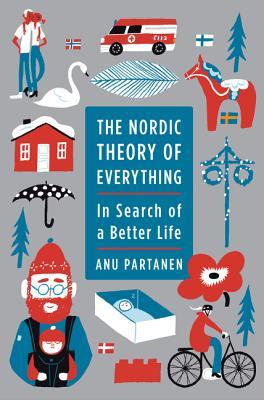
October: The Nordic Theory of Everything, by Anu Partanen.
Here's our wrap-up. "Our conversation at the book club last night veered toward the cynical. We had a big discussion over whether one person’s actions — particularly in an overwhelmingly liberal city like Seattle — can make a difference in the country. Every time we talked about the possibility of choosing a better system, an ugly truth would rear its head. "
November: Sapiens: A Brief History of Humankind., by Yuval Noah Harari.
Here's our wrap-up. "Along those lines, one big takeaway from the book was the way Harari tries to demythologize the human race. We are not the end result of millions of years of evolution, nor are we the pinnacle of life on earth. But the very thing that makes us special — our ability to cooperate through shared communication and stories — also convinces us of our own supremacy as a species. We are gods in our own minds, Harari argues, and he implies that it might be best if we let go of that arrogant assumption. "
December: Call Them by Their True Names, by Rebecca Solnit.
Here's our wrap-up. "'Patriarchy unbuttoned' is a pretty great turn of phrase for the current moment, with Kavanaugh bellowing and Lindsay Graham shrieking and basement warriors everywhere whining about men’s rights. It’s two words that distill everything, a pure display of Solnit’s power. "
2019
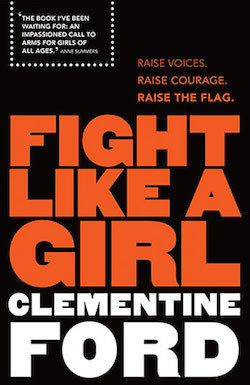
January: Fight Like a Girl, by Clementine Ford.
There was no wrap-up for this book.
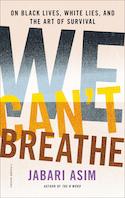
February: We Can’t Breathe: On Black Lives, White Lies, and the Art of Survival, by Jabari Asim.
Here's our wrap-up. "There was much to discuss in Asim’s book. The essays are not just gorgeously written; Asim placed them perfectly in relation to each other. The first essay is about the importance of truth and the lies people tell; it immediately framed Asim as someone who cares deeply about honesty. The second essay is about the pleasures of strutting, of feeling comfortable and happy in your own body, and the joy that Asim takes in lyrically describing his own tendency to strut is infectious. "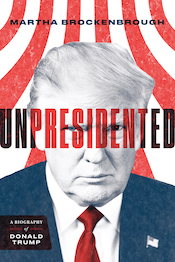
March: Unpresidented, by Martha Brockenbrough. Martha was kind enough to join us for this discussion.
Here's our interview with her from before the group met. "But if you look at it another way, not a lot of stuff has changed with Trump — not since he was a little boy writing poems about winning at baseball and loving the cheers of crowds. I wanted to set up patterns: his father’s business practices, his business practices, his grandfather. I wanted to identify the patterns and see what those told me about Trump and the things that drive him. Once you do that and identify the fact that here’s a guy who’s long been entangled with Russia, here’s a guy who’s long broken the law and cut corners with business — once you establish those patterns, then all the breaking news headlines are frankly more of the same. "
April: Care Work: Dreaming Disability Justice, by Leah Lakshmi Piepzna-Samarasinha.
Here's our wrap-up. "Many members of our book club felt overwhelmed by Care Work. That’s understandable — the book is a collection of essays intended for a few different audiences — in one piece, Piepzna-Samarasinha is talking directly to other disabled activists, in another she’s aimed at a more general audience. Someone at the book club said that Care Work was the equivalent of taking a 301-level course without taking the 101-level first. "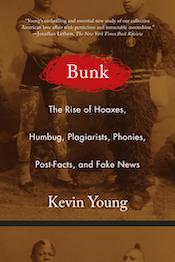
May: Bunk: The Rise of Hoaxes, Humbug, Plagiarists, Phonies, Post-Facts, and Fake News, by Kevin Young.
Here's our wrap-up. "One of the best observations at last night’s book club was the recognition that a simple lie isn’t enough to make something a hoax. It’s not enough to spread falsehoods to make a true hoax: you have to generate a mistrust in the truth, too. By creating an atmosphere in which everything could be false, the most confident liar gets to dictate the reality. It worked for Barnum, and it has worked thus far for Donald Trump. "
June: The Mueller Report.
Here's our wrap-up. "As the world saw in his quietly outraged public appearance last month, Mueller has a profound sense of right and wrong, but even his G-Man morality is nothing compared to his devotion to the law. Mueller announced that he could not indict a sitting president, and that he would have cleared the president of indictable offenses if he could. The inference, of course, is that President Trump committed indictable offenses, but Mueller is bound by duty to not say that out loud. "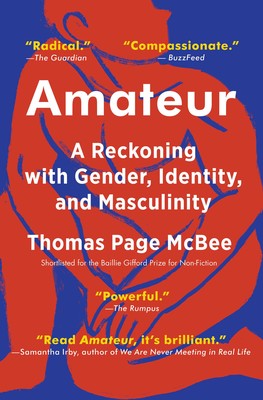
July: Amateur: A Reckoning with Gender, Identity, and Masculinity, by Thomas Page McBee.
There was no wrap-up for this book.
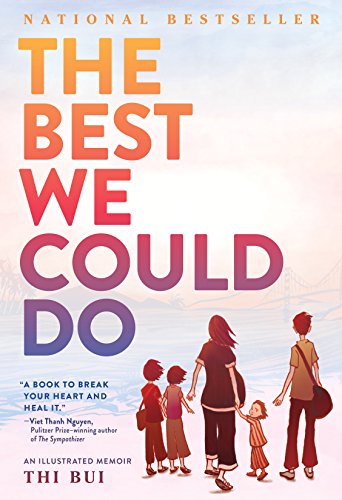
August: The Best We Could Do, by Thi Bui.
Here's our wrap-up, and here's our review "Best is a refugee story, a story of war and suffering and hope. Bui narrates as her family flees Vietnam and makes their way to America. Her parents aren’t heroes — her father is a downright cruel parent, subjecting his kids to fear and confusion. But Bui’s compassion for him allows her to find a path toward, if not acceptance, then at least understanding. "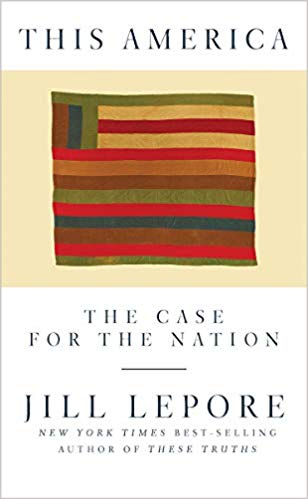
September: This America: The Case for the Nation, by Jill Lapore.
Here's our wrap-up. "But patriotism used as a weapon isn’t true patriotism. Unlike the hatred of nationalism, patriotism is a positive force — a common understanding of who we are and where we’re going. Is it even possible to bring together Americans under the guise of patriotism anymore? Would a reinstatement of a robust civics curriculum help, or perhaps two years of mandatory community service for all young Americans? Is there any way to restore something we can all experience in these hyper-personalized times? "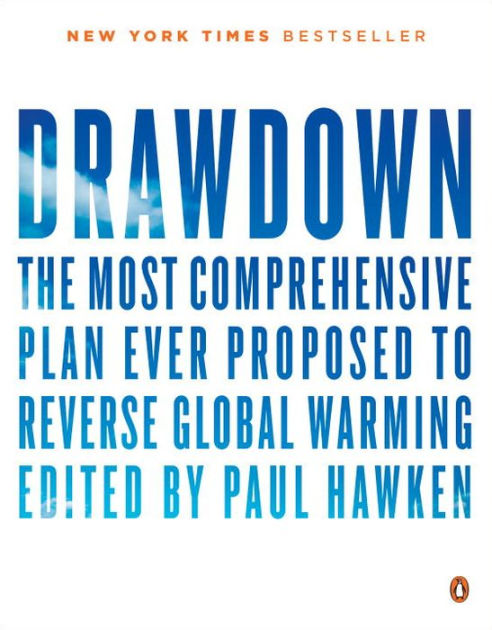
October: Drawdown: The most Comprehensive Plan Ever Proposed To Reverse Global Warming, edited by Paul Hawken.
Here's our wrap-up. "One of the most interesting avenues of discussion had to do with the way that the book centered white men — it’s edited by a man, and it features essays largely by men, and the chapter on how policies benefitting women could help the environment mostly consisted of reproductive rights, as though bearing children is the only value women possess. Thunberg has helped decentralize the conversation from a masculine frame, and so Drawdown already feels regressive, though it was only published last year. "
November: Heartland: A Memoir of Working Hard and Being Broke in the Richest Country on Earth, by Sarah Smarsh.
Here's our wrap-up, and here's our review. "This is the book you wished Hillbilly Elegy could have been. Smarsh remembers her poor upbringing with a delicious, wistful ache. The book is not dipped in nostalgia, and it’s not playing up the poorest Americans as pure-blooded saints, either. It’s a canny observation of the way that macro-level systems can affect the tiniest portions of our lives — often without our even noticing. "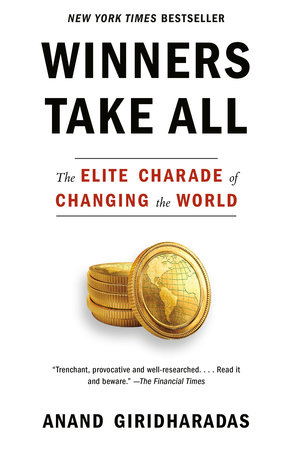
December: Winners Take All: The Elite Charade of Changing the World, by Anand Giridharadas.
Here's our wrap-up, and here's our review. "As robust as Winners Take All may be, it seems only the tip of the iceberg. By book’s end, it was clear that Winners Take All offered just a glimpse into the influence of market-driven approaches to solving societal problems. Giridharadas claims to be something of a reformed MarketWorld participant, a born-again public servant perhaps. But I wonder which topics he excluded from the book, intentionally or not, courtesy of his own proximity to the subject. "
2020
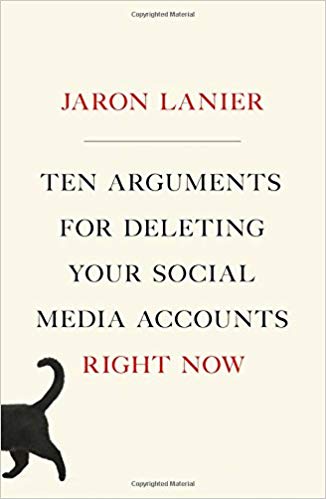
January: Ten Arguments for Deleting Your Social Media Accounts Right Now, by Jaron Lanier.
Here's our wrap-up. "You’ve likely heard many of the arguments against social media, and you likely still use social media. Maybe you feel guilty about it. Perhaps you recall a time when you were off social media and you felt more relaxed and engaged and generally happier, but you still find yourself numbly refreshing your feeds, desperately looking for something new. The mechanics of this are simple meat and chemistry: the dopamine hits, the fear of missing out, the boredom of waiting in line at the grocery store. "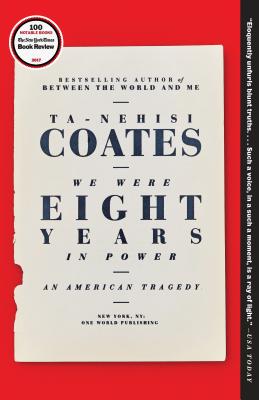
February: We Were Eight Years in Power, by Ta-Nehisi Coates.
Here's our wrap-up, and here's our review. "The absence of the grand imitation-Baldwin gesture in Coates’s personal reflections make him an organic, fluid character in Eight Years in Power, one with the right voice to tell the complex story of Barack Obama’s presidency and Coates’s (and so many people in Black America’s) failed waltz with the idea that America might be better than its grievous sins. For Coates, a hardscrabble wit from the streets of Baltimore, the reverie is short lived. Yet throughout the book, he doesn’t discount it, or Obama’s power or meaning to black people and the price they and he paid for Believing in White America far, far more than white America wanted to believe in them. "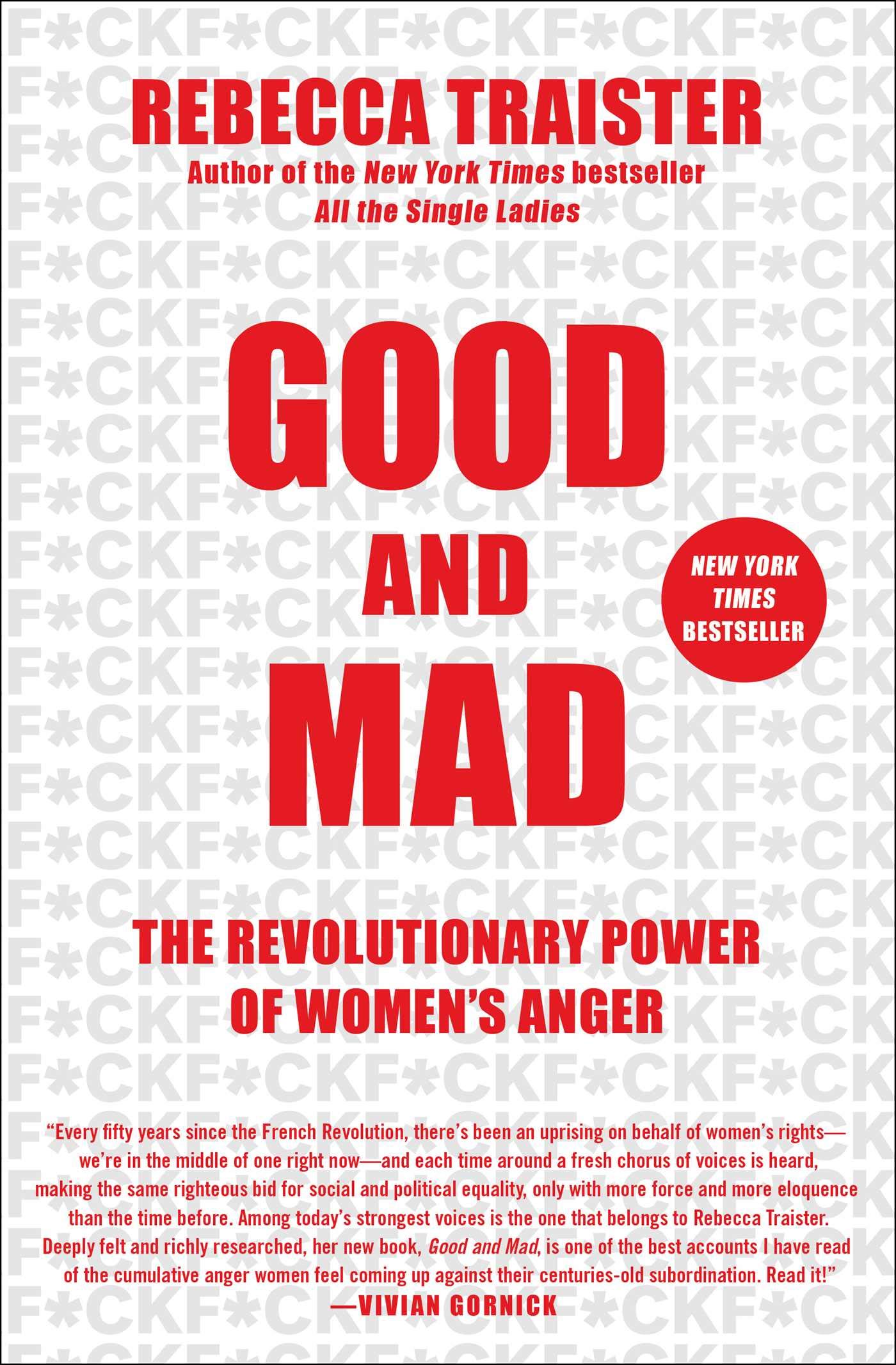
March: Good and Mad: the Revolutionary Power of Women's Anger, by Rebecca Traister.
Here's our wrap-up. "We talked with admiration for Traister’s remarkable book — Good and Mad rushed out of her in a handful of months, accompanied by a wave of catharsis that easily spreads to readers — and its many epiphanies. We discussed how the book ably identified the schism between white women and those who don’t enjoy the same privilege as white women — women of color, LGBTQ women, disabled women. We talked about what it means to relax into your anger, and how that’s freeing; that women who learn how to be okay with their anger do not broaden into a lifetime of anger. Instead, when you learn how to be angry in a healthy way, it removes anger from your life. "
What are you reading next?
Next month, the South Seattle Emerald takes over hosting duties; their first Reading Through It title is Ibram X. Kendi’s How to Be an Antiracist, although please check in with Third Place Books to see if the group will go on, given the current social distancing due to coronavirus.
The Help Desk: Opening your mind (and your whatever) to erotic literature
Every Friday, Cienna Madrid offers solutions to life’s most vexing literary problems. Do you need a book recommendation to send your worst cousin on her birthday? Is it okay to read erotica on public transit? Cienna can help. Send your questions to advice@seattlereviewofbooks.com.
Dear Cienna,
My friend says there's no such thing as a good dirty book. She hates all sex writing, and thinks the curtain should fall to "protect the privacy of the characters."
I'm a total narrative voyeur, though, and I want to know everything about them. That kind of intimacy is largely why I read fiction!
She says I'm creepy. I think she's prudish. What do you think?
Sexit, Phinney Ridge
Dear Sexit,
It’s really all in how you are able to read and comprehend a book. For instance, Hemingway believed in the Iceberg Theory of writing – that the deeper meaning of a story shouldn’t be evident, it should be implicitly revealed through the writer’s careful crafting. His story "Hills like White Elephants" about a young woman struggling with her boyfriend’s pressure to abort their baby is a classic example of this, as is "Fuck Me Faster," wherein another young woman struggles with her best friend’s father’s thrusting speed – a metaphor for aging and, ultimately, his mortality. When he comes, they both cry, as will you.
Perhaps your friend just has intimacy issues. It's perfectly ok; most people do. But the way to address them isn't avoidance; it is acceptance.
As a good friend, I encourage you to track down the classic A Time to Bone by Lug Gruntwood, and gift it to your friend. It is both a celebrated history book and an erotic classic. You'll know it by it's detailed cover art – a somewhat shy-looking penis pointing at the mysterious opening of a shaved anus.
The protagonist, an archaeologist, takes readers deeper into that proverbial cave, one filled with meaning and a certain sweet sadness, when he hires a new assistant, a young man of questionable scientific background who fails to follow protocol in handling both artifacts and anuses. Your friend will laugh, she will cry. She will learn something about archeology and just how wide an anus can be stretched when handled with delicacy and care.
Kisses,
Cienna
Starting tonight at 6 pm, all Seattle Public Library branches to close for at least four weeks
Last night, Mayor Jenny Durkan's office announced that all Seattle Public Library locations will close at 6 pm today and not reopen until at least April 13th.
This is the right thing to do for the city, and for our library employees. High-traffic public locations like this can't be properly maintained to the hygiene standards necessary to combat coronavirus. The return date on all physical loans out at this time will be extended through April 13th, and the digital collection will still be available to patrons.
As I said, this is a perfectly reasonable decision. The city simply can't ensure the safety of patrons and staff, and so the libraries must be closed.
What is unacceptable, though, is what this means for the city's unhoused population. Here's the paragraph of the release pertaining to our unsheltered neighbors:
Many vulnerable populations, including people living unsheltered, rely on community centers and libraries to provide critical hygiene services. That’s why Seattle Parks and Recreation (SPR) will continue the shower program for those in need at Delridge, Green Lake, Meadowbrook, Miller and Rainier community centers, and all [Seattle Parks and Recreations] bathrooms and handwashing stations will remain open.
This city simply doesn't have enough safe and clean places for homeless individuals to go. I can attest from personal experience that it's possible to walk for literal miles between public bathrooms in Seattle, and the huge distance between available showers is laughable.
Of course our librarians shouldn't be on the front lines of this city's housing crisis. But we've allowed the situation to atrophy to the point that my first thought when I read that the libraries were closing was that homeless people will die because of this decision.
Through years of neglect and austerity, Seattle has finally hit bottom: there's almost nowhere for our unhoused neighbors to go. Coronavirus has revealed who this city cares for, and who it doesn't.
The Portrait Gallery: Audiobooks
Each week, Christine Larsen creates a new portrait of an author for us. Have any favorites you’d love to see immortalized? Let us know, or see if you can find them in the archives.

As we explained in our Your week in reading column, we're not supposed to gather. As part of social distancing, it seemed irresponsible for us to recommend readings for people to attend. Instead, we're offering different audiobooks every day, many tied to readings that would have happened. Stay home, stay safe, and let's slow the spread of this pandemic so that our health system can take care of the people who need it the most.
The Future Alternative Past: Sick minds
Every month, Nisi Shawl presents us with news and updates from her perch overlooking the world of science-fiction, fantasy, and horror. You can also look through the archives of the column.
My first viral Tweet was an admonition to all and sundry to wash their hands. I included my rationale for getting taken seriously: “This is a science fiction author talking to you.” Why? Because SFFH trains us to think about this stuff before it happens.
Global pandemics are standard genre scenarios. Horror overflows with zombie-inducing microbes such as those featured in Mira Grant’s delicious Feed and Amelia Beamer’s adorable The Loving Dead. Science fictional apocalypses have switched in living memory (mine) from nuclear war aftermaths to eco- and medical catastrophes. One of my favorite combinations of these last two currently fashionable tropes is James Tiptree, Jr.’s very brief yet typically mordant short story “The Last Flight of Dr. Ain.”
It’s been said that Horror is not so much a premise as a point of view. Stephen King’s fourth book, The Stand, is a science fictional premise fleshed out by a horror author: weaponized influenza kills 99.4% of Earth’s human population. The flu plays a more positive role in my 2016 novel Everfair: exposure to a milder variant of the virus inoculates people of color in that country and along air canoe trade routes between Africa and East Asia. This makes them less prone to catching the deadly 1918 mutation — and thus puts them in a better position to prevail against colonialist manipulations.
That historic 1918 flu pandemic has served as a model for many a nasty imaginary one. For example, the fever in the Philip K. Dick Award-winning novel Life by Gwyneth Jones causes civilization to stutter nearly to a stop. Diseases in Frank Herbert’s The White Plague and Joanna Russ’s The Female Man selectively infect genders, a reflection of how the 1918 flu’s fatalities skewed toward the young.
The lessons SFFH authors have learned from history are many. Reading Zone One or Clay’s Ark or The Year of the Flood or any of the dozens of their stories about infectious diseases of the future will give you easy access to these lessons. What can be learned from them about how to proceed here and now?
For starters, support transparency. Lies, even those told for citizens’ own good, inevitably backfire in these dystopian and apocalyptic imaginaries. Hiding an infectious disease’s origins, vectors, fatalities, symptoms, spread, or other facts simply makes a bad situation intolerable; likewise lying about them.
Next, we’re taught the virtue of anticipation. No use sitting stuck in motionless traffic after the shoulder lane of the highway out of an infected area has filled up. No use providing the anecdote proving that containment measures need ramping up. Extrapolating to the next data point on an infection’s incidence graph depends on knowing where the previous ones fell, so transparency comes first. But then we have to act on the knowledge that our world is changing, has already changed.
Washing hands is avant garde, not old fashioned. Fist bumps are no longer ghetto chic; they’re mainstream. Adapting to the new normal is one of all SFFH’s most basic lessons. Genre immersion helps us understand that there’s no use pining for the way things used to be. Youth is no prerequisite for this understanding; a more important qualification is love of what scholar Darko Suvin calls “cognitive estrangement,” known to fen as “sensawunda.” Can you accept a rapidly developing reality, or is your mind stuck inside the parameters of the former status quo? How much uncertainty do you dig in your literature? Would you like to acquire a taste for more?
Recent books recently read

Finna (Tor.com), the neat new novella by Nino Cipri, starts and ends in uncertainty, and spends the majority of its 136 pages in worlds where anything could happen. Low-seniority retail associates Ava and Jules are sent through their IKEA-like store’s endemic wormholes to rescue a customer. As they execute their minimum-wage mission they encounter and overcome large-mammal devouring easy chairs, blood-slurping cash registers, and city-sized socialist submarines. Cipri’s briskly funny treatment of the heartache these two also endure (they’ve recently broken up as a couple) combines with his edifyingly clear insights on how to escape hive minds and other dangers, to produce an adventure both lighthearted and substantial--a thought-provoking romp.

Otherwise Award (formerly James Tiptree, Jr. Award) winner Matt Ruff’s latest, 88 Names, depicts another facet of the new normal: virtuality. Ruff’s protagonist, John Chu, is a "sherpa," a paid guide to game worlds. Chu heads a crew of five with various talents: tanking, or absorbing in game violence dealt by the customer’s opposition; healing; and dps-ing, or handing out “damage-per-second” blows to player and non-player characters. A glossary at the book’s end helps non-gamers sort out the terminology, and along with each chapter’s epigrams paints an easily comprehensible background for the novel’s action.
That’s crucial, because most of the action takes place in the World-of-Warcraft-like MMORPG (Massive Multiplayer Online Role Playing Game) Call to Wizardry, with side excursions to the CIA Factbook’s simulation of South Korea, an outer space shoot-em-up game named Alpha Sector, and an ancient text-based tour of a fantastical circus’s midway. Chu pursues clues to the identity of his mysterious new client Mr. Jones through a couple of real life locations too, but his main theater of operations is online.
Currently there’s very little policing of the internet, and thus no sure way to know the age, gender, or race of those you interact with there exclusively. The same applies to the internet of 88 Names. As you’d expect from the author of Lovecraft Country and Set This House in Order, that’s less a bug than a feature. In Matt Ruff’s calm and crafty hands, mystery gets interwoven with the survival imperative, and dedicated play leads to consequential discoveries.
Couple of ways to do cons in the all-too-foreseeable future
Supposedly I was going to be one of Fogcon’s two Guests of Honor last weekend. A few days before I was scheduled to fly there, I canceled in tears. I’m 64, and with my many health issues I find myself in a high-risk group when it comes to COVID-19 exposure.
Gathering together with others is probably not a good idea right now for anyone. I participated in Fogcon virtually, courtesy of Zoom, an online conferencing software product. It’s not the only one: there’s the ubiquitous Skype, for instance, and the allegedly revamped Go to Meeting. Warning: Listening to non-virtual participants while Zooming my panels was suboptimal; they sounded as if they were talking through the anuses of dead frogs. A better microphone may be in order, or a phone passed round with accompanying squirts of hand sanitizer. Or a Second Life-like venue created by congoers and those who love them.
Thursday Comics Hangover: The world's first extremely online comicon
If the coronavirus pandemic had not happened, tens of thousands of people would have been cramming into Washington State Convention Center for Emerald City Comic Con today. Cancelling the event was the right thing to do; it's our duty to avoid large groups to protect the elderly and other vulnerable populations. But ECCC is a huge financial component of many peoples' lives — artists, comics shops, publishers, writers — and the loss of that income could be catastrophic for them.
This weekend, a few enterprising folks are doing their best to bring the ECCC experience to you, giving a chance to directly support the artists who've been hit hardest by this cancellation.
The Very Very Shopping Network debuts at 2 pm on Twitch this afternoon. It's an ECCC-flavored riff on the QVC Shopping network, allowing people to buy comics and merchandise from the comfort of their own couches, hosted by Seattle cartoonist Jen Vaughn and Jazzlyn Stone (who also designed the graphics) and produced with Aaron Oak, Julie Wagness and the staff of Very Very Spaceship.
For three straight days, the VVSN will present eight hours of programming with authors and cartoonists who were slated to appear at ECCC, including Cat Rambo, Kate Leth, and Kel MacDonald, and comics publishers who had planned to present new books at the show, including Dark Horse Comics, Oni Press, and TKO Presents. There will be flash sales, giveaways, and other unique opportunities to connect with comics creators. Here's a calendar of VVSN events:
At roughly the same time, indie comics publisher Iron Circus will be presenting Pajamacon on their own Twitch Channel, with guests including Steve Lieber and Chris Robeson.
Other ECCC-related sales happening online that you should know about:
-
Oni Press is selling a bunch of its ECCC merchandise for 10% off, including a totally sweet Achewood tote bag.
-
You can find a virtual Artist's Alley online at Tumblr, full of prints, pins, and other merchandise for you to buy.
-
Other artists and publishers will be getting in on the act, too, using the #ECCCOnline Twitter hashtag.
Obviously, nothing can replace the meatspace-y thrill of making a real human connection with a beloved creator. But these virtual comic conventions do provide the other big benefit of physical comic conventions: the opportunity to discover exciting new creators and publishers. If you were to just devote half of the money you were going to put toward ECCC into the artists who are taking part in the virtual convention going on this weekend, you'd be changing lives for the better.
Ijeoma Oluo has launched coronavirus relief fund for Seattle artists
In America, the sad fact is that artists are among the most economically vulnerable citizens. Those artists who are brave enough to make a living of their work are often one big event away from financial destitution.
From the cancellation of Emerald City Comic Con to the endless slate of canceled readings around town, the coronavirus has hit Seattle's arts community very hard. Dozens of writers and singers and artists have lost out on events that could have supported them financially for months, and there's no safety net for artists — no sick days, no family leave.
Thankfully, Seattle artists are looking out for their own. Local bestselling author Ijeoma Oluo has launched a GoFundMe to raise $100,000 to support artists affected by coronavirus. She writes:
I know that so far every speaking engagement I had for the next month has been cancelled or postponed, and I’m in the very rare and privileged position to be able to weather this financially. Many are not. We’re seeing canceled events through the end of this month and it's probably going to continue to grow. A large percentage of artists supplement their incomes with part time jobs often in the service industry which is another industry that is being hit hard. ...This fund is aimed at helping those in the greater Seattle arts community who have been financially impacted by cancellations due to COVID-19, with priority given to to BIPOC artists, transgender & nonbinary artists, and disabled artists - but we will try to help as many artists with need in Seattle as we can.
I know that everyone is asking for money these days — perils of living in a hugely unequal country where the majority of people are one paycheck away from disaster — but this is a very worthy cause, and if you have anything to give, you should give it. Oluo has done artist fundraisers like this in the past, and she's about as trustworthy a cultural figure as we have in this town. Your money will absolutely be put to good use.
Likewise, if you, or an artist you know, has been hurt by coronavirus cancellations, please apply for some of these relief funds here. Don't be afraid to ask for support; if you're a writer or cartoonist who contributes to the cultural life of this city, Seattle owes you a debt. It's okay to reach out to your community when you need help.
Exit Interview: Kelton Sears, the future of arts journalism in Seattle, has moved to New Orleans
If you're in the music scene, you likely know Kelton Sears from his influential band, Kithkin. If you're an artist in Seattle, you remember Kelton Sears from his short but mighty stint as the young and vivacious arts editor at the Seattle Weekly in the months just before the paper's collapse. If you're in the Seattle comics scene, you know Kelton Sears by his boundless love for the Short Run Festival and his incredible animated comic Trash Mountain.
The point is, if you participated in virtually any Seattle arts scene over the last decade, you know Kelton Sears. His passion for the city and his energy for the arts scene seemed unstoppable, which is why I was shocked to hear that late last month, Sears had left Seattle and moved to New Orleans.
Sears arrived in New Orleans late last week. I spoke with him yesterday on the phone as he was watering tomato plants in his new New Orleans home. What follows is an edited and condensed transcription of our conversation.
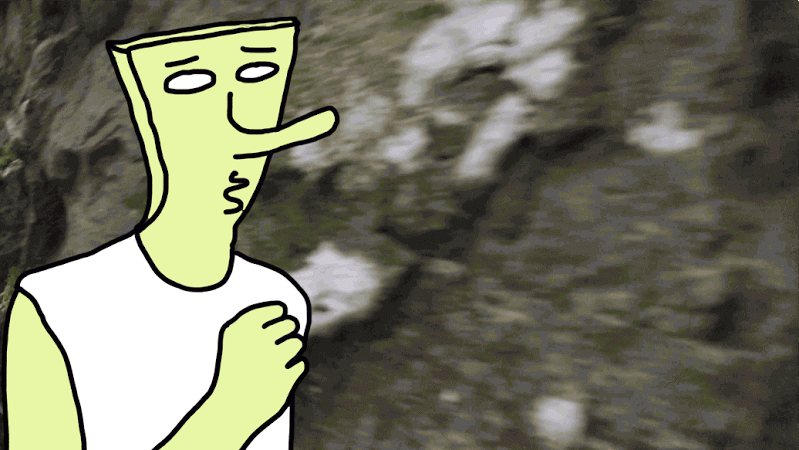
May I ask why you decided to leave Seattle?
My girlfriend [photographer Allyce Andrew] and I have been together for seven years. She is super-Cajun — like, her grandma's first language is Cajun French. She grew up in Lafayette and Louisiana — the heart of Cajun country.
She moved up to Seattle right after she graduated college in Louisiana, because she really liked Sasquatch and she liked the music scene. But after seven years she just really missed the culture and her family. And I think she was also starting to experience the same old story you hear about Seattle a bunch now: she went there looking for a really fun, vibrant arts community, which is still there and was there. But a few years after she got there, people started leaving for LA and New York and the neighborhoods started changing.
And as a photographer, probably around 2017 or 2018, she was just like, "man, there's not really much I want to photograph anymore." Because her whole thing was photographing shows and artists that she liked. And for me, the Weekly had fallen through by that point. I had loved being a big cheerleader for the Seattle art scene — I really appreciated and relished that role over at the Weekly. It was really fun to seek out local music and try to show it to as many people as possible.
I think after the Weekly fell through and my girlfriend started talking about wanting to go back to Louisiana, I just realized I'd been in Seattle my whole life — my family moved to Washington from Texas when I was four — so I've never really lived anywhere else.
And the few times I've been in New Orleans, I loved it. It's really messy, but in a great way. The thing that sold me was one time we were walking down the street and there was just a four foot hole in the sidewalk, but they just put stakes around it and a bunch of beads. It was like a big celebration: "Look out for this hole!"
Yay, hole!
Exactly. Yeah.
So we just started talking about [moving to New Orleans] more and more. It was sad for me, because I love the Northwest. I have a Cascadia tree tattooed on me and in Kithkin, a lot of that music was about being in the Northwest and what that meant. And I loved covering Northwest artists and being really rooted in a place. At first it was kind of scary to me, but now, being here, I really love it and I think we made the right decision.
Is there anything that you think Seattle could specifically be doing better to support its artists?
Besides the friends that I had made in college and I had already made through Kithkin, I started to feel a lot more isolated there. I think part of it is just because there aren't as many sort of gathering spaces now. [Pauses.] Maybe that's not true — I think they're just further on the edges of the city. There's cool things happening in Beacon Hill and in South Seattle and I think there's still fun, cool DIY stuff happening way up north. The structure of the city just started to feel atomized, I guess.
What changed?
[After the Weekly,] I started working at DigiPen, which I loved. So I'm not going to sit here and trash-talk tech, because I think tech is really cool. There's a lot of kids doing really awesome freaky stuff at DigiPen, and I love that. But it is true that I'd walk around Capitol Hill and look around and be like, "this didn't use to be here. And I don't know any of these people."
Again, it's that same old story. As far as what Seattle could do differently, I don't know. I was talking to my dad about it the other day and he was reminding me that Seattle's always been a boom-and-bust city, and it's in a boom right now and that makes it harder for freaks, but it's great for other people.
But who knows? Maybe once we finally start taxing Bezos and the rest of them, maybe it'll bust and then the freaks will come back. I am really reluctant to trash-talk tech, but I'll trash-talk Bezos all day.
One thing that really attracted me to New Orleans was this artist called Geography of Robots. He incorporates these South Louisiana landscapes into this alternative-future video game set here called Norco. And seeing that people here are interested in making freaky digital art really attracted me to this place. Because it does have that messy, wild vibe to it.
Coming here from Seattle, I'm really interested in how the internet can be messy and wild again, too. I feel like there's only, like, three websites that any of us go to anymore. I'm really interested in doing some web stuff inspired by this place.
I think that tech-versus-art conflict is kind of a false binary. It's more of a class issue.
Absolutely. Yeah, that's absolutely true.
But Americans will look anywhere other than at class, right? It's the one thing that we don't talk about.
Yeah. Obviously New Orleans isn't immune to that. I'm not going to also pretend that this is some amazing paradise, because I know they've got a whole big problem with Airbnb pushing everyone out of these neighborhoods, and gentrification and stuff.
But already being here a few days, just as soon as we moved in all of our neighbors came out and were shaking our hands and saying hi and, "Hey, come to our fish fry." That wouldn't happen in Seattle.
I remember way back when I was still at The Stranger and you started writing for the Weekly, I told my bosses at the time that I thought you were the future of arts journalism in the city. I loved what you were doing with gif recaps of events and your coverage of teeny-tiny indie acts, and I was encouraging them to find room to hire you. And of course, they went a different way, eventually getting rid of most of their arts staff.
Right.
And then you took over the arts coverage at the Weekly, and then that fell apart, and City Arts closed. And I don't know if there is a future of arts journalism left in Seattle. Do you have any thoughts on media and arts coverage based on your experience?
It's such a bummer. I grew up in Seattle reading The Stranger. I grew up reading you. And one of the reasons I was really passionate about comics and newspapers — a big part of that was Short Run, but another part of that was just like reading Tony Millionaire in The Stranger. I was 12 going, "This is nasty! What is this?"
It's kind of funny, now, that all the Weekly boxes are full of Pet Connection Magazine. I like pets, they're great. But it is also really sad, just because there's a lot of people who are still doing great stuff in Seattle, and they just don't get covered. No matter how much sort of scrappy, independent spirit you have, at some point you want some sort of recognition from people outside of your basement.
Sure.
That's just a human thing. And I feel like the state of art coverage in Seattle right now is still so focused on the obvious major players. There's this upper tier of artists in Seattle who have broken through, one way or another, and they're known entities. And a lot of papers just only cover them.
There's just so much amazing music being made in — not even just Seattle but Tacoma, Bellingham, Olympia, too — that doesn't get covered, but which I think is so crucial to the real identity of the region. That was something that I really wanted to make a point of at the Weekly: we're only going to cover local stuff, and of that local stuff I'm going to really try to focus on the things no one's talking about.
With City Arts gone and the way The Stranger is — I mean The Stranger still covers freaky art stuff, but you know everything that's going on with The Stranger: it's definitely very, very different. — I think for people trying to be freaky [in Seattle], you can't afford to be there and no one wants to cover you. It's a bummer.
Coming to New Orleans, there's a great alternative paper called Antigravity. It's full of comics. It's got horoscopes. They're always covering weird bands here. They always put little bands playing in a basement on the cover. It's all black and white. It is very scrappily put together, but it's great. I picked it up the other day in a coffee shop and saw a bunch of shows I want to go to. On Thursday, we're going to go to a show that was in Antigravity.
That's how it should be. Newspapers should be this thing you can pick up and immediately hook into your community, instead of just reading about what Allen Stone is doing this week.
So say somebody is talking to you and they're making the opposite trip. Say her girlfriend's moving to Seattle to take a job, and she's going along for the ride. She's a poet and musician. What advice do you give her, if she doesn't know the scene, but she wants to make the most of it?
I think the key in any place, but especially Seattle, is just to try your best to find the community. If you're a poet, go to the Hugo House. If you're a musician, find those DIY spaces quick. I think my fondest memories of Seattle were when I was really, really plugged into the community there. And I think that's still possible. There absolutely is still an arts community there that is thriving, even if they're not getting media coverage.
I think in Seattle, that's especially important because it is so easy to kind of get in that rhythm: you go to work, you come home, it's dark and rainy outside, so you're like, "well I'll just watch Netflix and stay in."
After we finish setting up all our furniture, we're trying to go out and meet people. I think it's maybe a little harder in Seattle — if you aren't already a part of that established community, it can be a little scary just because I think people are a little less warm in general.
So just find your people and really rely on them and try to support them. As an artist in Seattle, I feel like when you are in a community, people are so quick to celebrate you and hook you up, and I just think that's so important. The community that I had there was amazing and I think if someone was going there, I'd say just try to put yourself in the places where that would be.
What are you going to work on now? Are you doing any new art now that you're out there?
I'm working on my next big GIF comic. It's actually set in the west coast still, so I haven't left Seattle completely. It's about two trees. You're going to start at the bottom of the website and scroll up instead of the other way around. It's all one single panel stacked on top of another — just one giant column and the panels are really tall, following these two trees talking to each other, and you're scrolling up their trunks as they chat, and time is passing behind them.
Wow, that sounds amazing and I can't wait to see it. Did you have any messages you wanted to send Seattle?
Cherish the trees. The trees there are so cool. We have pictures of Northwest forests up in our apartment. I love the trees here — they're great. But it's just different out there.
I'm sure there'll be plenty of people here who would be willing to send you photos of trees if you get homesick.
I hope so.
Local Bookstores Going Postal
The biggest selling point of a neighborhood bookstore will always be that it is in your neighborhood. We don't expect the bookstore down the street to carry every single book in stock — we expect it to stock interesting books, to host interesting events, and to have a personal relationship with us — to be our bookstore.
But right now, with Seattle in the thrall of a coronavirus outbreak, we can't expect everyone to visit their bookstores. If you're feeling ill, you shouldn't leave the house. If you have at-risk people in your lives, you shouldn't go to crowded public places unless you can help it.
For whatever reason you can't leave the house, Third Place Books has got you covered. For the next four days, TPB is offering free shipping on any online orders. If your self-quarantine is leaving you alarmingly low on new books, this is a welcome development and you should take TPB up on their offer immediately.
Meanwhile, Elliott Bay Book Company is doing something a little more intentional and long-term to deliver books to your home. This week, the Capitol Hill bookstore announced (sub)TEXT, a bimonthly poetry subscription box. For $125 per year, Elliott Bay will send you a care package every other month containing:
- a book of poetry chosen by a bookseller who loves it
- a handwritten letter about what makes each title notable
- a custom bookmark
There may be other items, like prints or other exclusive items, included with certain boxes. This isn't exactly a new endeavor for Elliott Bay; the bookstore has for nearly two decades offered the Maiden Voyage subscription program, which sends first-edition debut novels to members six months a year. But it's interesting that they're throwing their weight behind another program now — another sign that the next frontier for neighborhood bookstores just might be your home.
Always some great disaster
Published March 10, 2020, at 12:00pm
Could Jenny Offill's new book, Weather, offer some solace in our constant turbulence?
studies in negative space
you cut paper to stars shape
my fingers to tent poles and place
them under the night to hold up
those carved constellationsall of this like my palms don’t try
to sweat you out like my eyes will
forget your mouth laughing had you
meant to rest your arm on mine
so I felt your heat when you left
Fran Lebowitz in Seattle!? Yes!
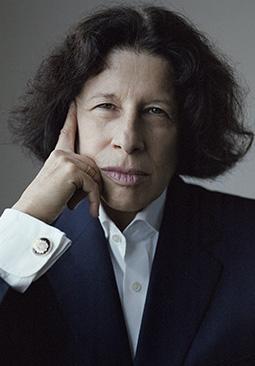
Returning sponsor Northwest Associated Arts is bringing Fran Lebowitz back to Seattle! Writer, iconic New Yorker, fashion icon, and brilliant mind, Lebowitz keeps audiences on their toes with her quick wit and delightful contrariness.
The evening will be hosted by Seattle’s own writer and wit, David Schmader. Information on how to grab tickets for the April 19th appearance is on our sponsor’s page.
It is sponsors like Northwest Associated Arts that keep The Seattle Review of Books running and paying writers. Why not take a look and see if a sponsorship is right for you, too?
Your Week in Audiobooks: One great listening experience for every day this week
MONDAY, MARCH 9TH
Gretchen Sorin, author of Driving While Black, is scheduled to read from her new book at Town Hall tonight. It tells the true-life story of the Green Book, a travel guide for Black Americans who needed to know safe paths through America at a time when they would be lynched for being in the wrong place at the wrong time of night. The book connects the burgeoning world of automobile travel in mid-20th century America to the rise of the civil rights movement.
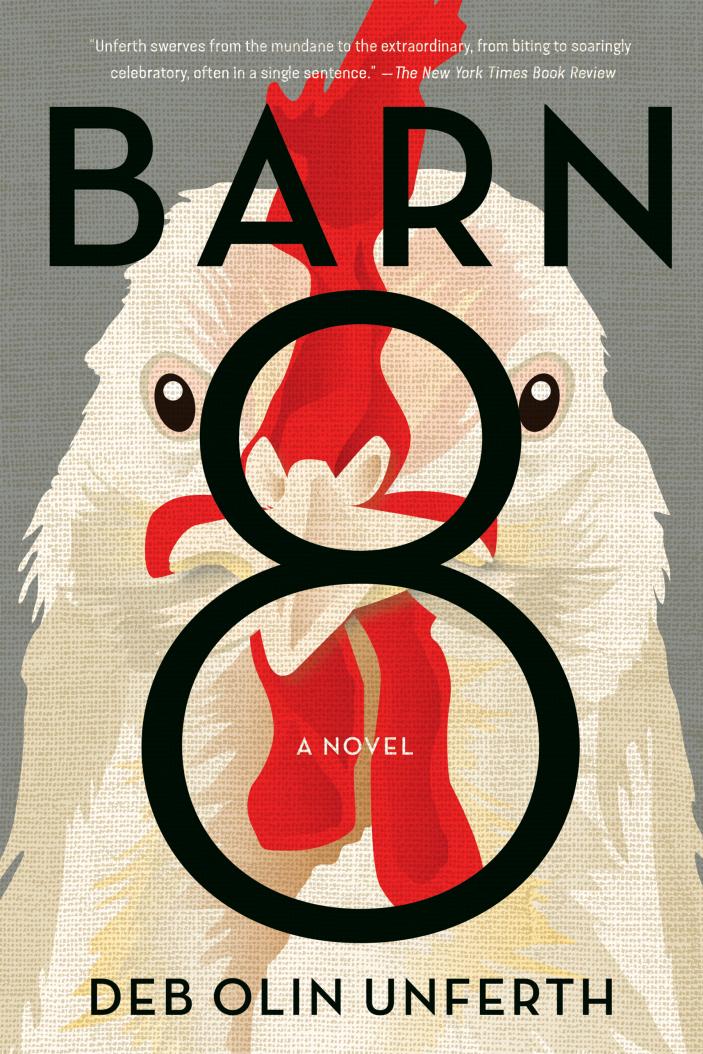
TUESDAY, MARCH 10th
None of the readings I could find tonight had a related audiobook, so instead I thought I'd recommend the audiobook I'm most excited to listen to this month: Barn 8 by Deb Olin Unferth. It's the story of two rogue egg inspectors who decide to steal a million chicken eggs, and the post-apocalyptic chicken-based future that their actions may or may not cause.
WEDNESDAY, MARCH 11th
In a coronavirus-free world, we would urge you to go listen to E. Latimer read from Witches of Ash & Ruin at Third Place Books Seward Park tonight. Instead, we're asking you to consider buying the audiobook instead. It's a coming-of-age story of a young bisexual woman who is coming into her own as a witch, in a world of serial killers and gods and inter-coven drama.
THURSDAY, MARCH 12th
Black Brother, Black Brother is Jewell Parker Rhodes's latest novel. It's about two brothers — one who passes for white, and one who passes for black. Their disparate stories provide a bracing example of how different the experiences of Black and white Americans are.
FRIDAY, MARCH 13th
Poet Cathy Park Hong's new book of memoir and cultural criticism, Minor Feelings: An Asian American Reckoning, is about "her relationship to the English language, to shame and depression, to poetry and female friendship." The minor feelings of the title relate to the inherent contradiction of what it means to be an American when you're subliminally told all the time that Americans are white.
SATURDAY, MARCH 14th
You likely know Laurie Halse Anderson for her deeply personal book Speak. Now, she's back with a bookend to Speak, titled SHOUT. Written in free verse, SHOUT touches on the recurring themes of Anderson's work — surviving sexual assault, fighting against patriarchal power structures, building a new path forward — with a new energy and rage inspired by the #MeToo movement.
SUNDAY, MARCH 15th
One of the things I loved most about Greta Gerwig's film adaptation of Louisa May Alcott's Little Women is that it cut up and rearranged the classic novel, recontextualizing it for a new generation and finding new ways to add drama to a well-known narrative. If you watched the movie and haven't yet read Alcott's original novel, Libro.fm has an unabridged version for sale for $4.99. Now that you're in self-isolation, you have time to devote to Little Women, to find out why it's a cornerstone of American literature and why it was a sensation for young women at the time — maybe the first time that many American women recognized themselves in a character.
Your week in readings: Special coronavirus edition
Every Monday here on the Seattle Review of Books, we recommend one literary event — usually a reading, but sometimes a sale or another kind of function — for every night of the week. But advising people to gather in public places is a tricky proposition, given that Seattleites are being urged by King County to not gather in groups of 10 or larger due to the coronavirus outbreak.
Public health workers are some of our favorite people, and we respect their guidance. The whole point of being a good neighbor and a good citizen is caring about everyone's health. Even though many of you reading this are healthy, able-bodied people who would no doubt shrug off coronavirus, there are also thousands of members of your community — the elderly, the immunocompromised — who are at risk. So we can't in good faith encourage you to leave the house and gather somewhere that puts people at risk.
Then, too, there's the problem that events all over Seattle are being canceled at a rapid clip as travel becomes more and more constricted. We can't necessarily promise that a Thursday event we're telling you about today will still actually happen on Thursday.
But at the same time, we want to support local bookstores, and those bookstores are having a really tough time of it right now. Sales are slumping precipitously due to coronavirus, and they're not likely to climb back to normal levels for at least a couple of weeks.
So instead, we're going to try something different: we're going to recommend an audiobook by an author for every day of the week. Generally, but not always, the author will be one who was scheduled to appear in Seattle this week. And then, we'll link to the audiobook on Libro.fm, which allows you to direct a portion of your sale to the independent bookstore of your choice. That way you get a great new reading experience, you get to support a local indie bookstore, and you don't have to leave the house.
Nothing will ever replicate the joy of attending a great reading with a room full of like-minded book lovers, but for an outbreak-inspired compromise, we think this is about as good as it gets. Check back here at noon to find seven recommendations for your week in readings.
The Sunday Post for March 8, 2020
Each week, the Sunday Post highlights just a few things we loved reading and want to share with you. Settle in with a cup of coffee, or tea, if that's your pleasure — we saved you a seat! Read an essay or an article online that you loved? Let us know at submissions@seattlereviewofbooks.com. Need more browse? You can also look through the archives.
This Sunday, three fascinating examples of storytelling with data and charts, from literary geographies of well-known authors to mapping time in Antebellum American history books:
Do authors write where their know?
My dream is to be multi-talented enough to work for Pudding.cool, but alas, I am just a devoted reader for now. This data story uses geographical information from the author’s life and the settings of their books to find out which authors really “write what they know,” down to the mile. It also does deep dives on prominent authors like Kazuo Ishiguro, a product of early emigration to Britain, writing about the preserved Japan of his childhood, and Toni Morrison, who uses her hometown of Ohio to represent an escape from the ghetto. I would say read on, but really you’ll want to click around:
Ishiguro’s family immigrated to Britain from Japan when he was only five years old. In his wonderful 2017 Nobel lecture, he outlines his experiences grappling with his identity in relation to his geocultural roots, both as a child and an adult. He cites as a pivotal moment in his literary career the night he found himself “writing, with a new and urgent intensity, about Japan” after a few weeks of attempting to set a story in Britain. That night sparked a journey that would turn into his first novel A Pale View of Hills. The book, he says, was his way of preserving a Japan that was borne of and existed only in his mind, “to which (he) in some way belonged, and from which (his) drew a certain sense of (his) identity.”
Tracing the world’s four oldest fairy tales
Fairy tales were just bright, musical Disney films until I received a hardback version of Grimm’s when I was eight. They were...grim — I didn’t like them. In college, I read Robert Darnton’s The Great Cat Massacre, and learned that the reason these stories felt so dark was because they were first and foremost morality tales designed to scare young children into submission. Apparently an early version of “The Little Red Riding Hood” ended with the Wolf persuading the child to get in naked in bed with him — yikes! Lapham’s Quarterly traces all fairy tales back to just four archetypes:
Emma Willard's Maps of Time
Emma Willard, a feminist educator, pioneered the visual display of history, and her beautiful, though teleological, timelines turned history into cartographies. Here’s a great essay from one of my favorite online magazines that considers at the ways in which her sense of history — a march of progress, showed up in those thoughtful, curious timelines that influenced a generation of American history books:
All of North America’s colonial history merely formed the backstory to the preordained rise of the United States. The [Tree of Time] also strengthened a sense of coherence, organizing the chaotic past into a series of branches that spelled out the national meaning of the past. Above all, the Tree of Time conveyed to students a sense that history moved in a meaningful direction. Imperialism, dispossession, and violence was translated, in Willard’s representation, into a peaceful and unified picture of American progress.

